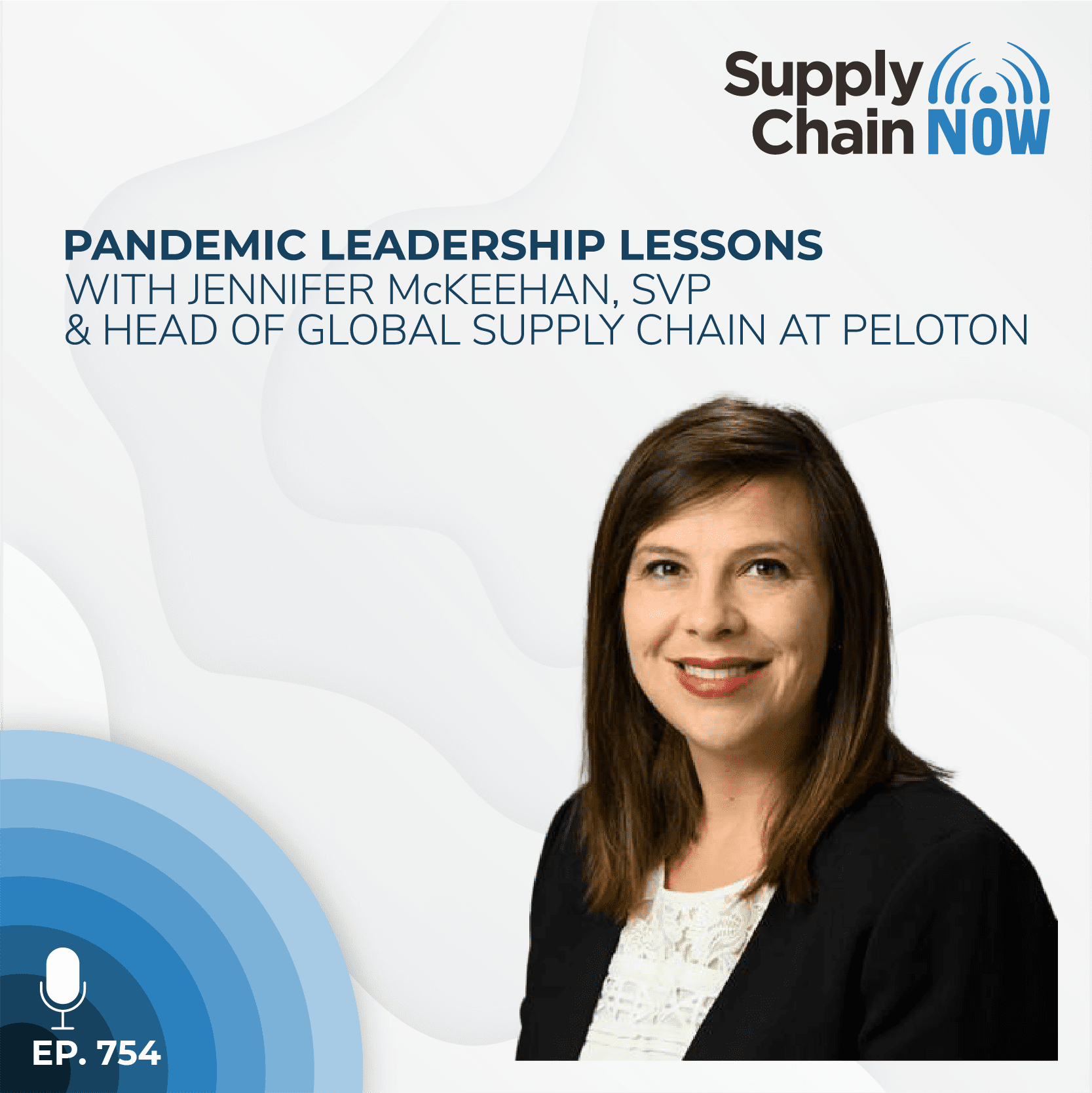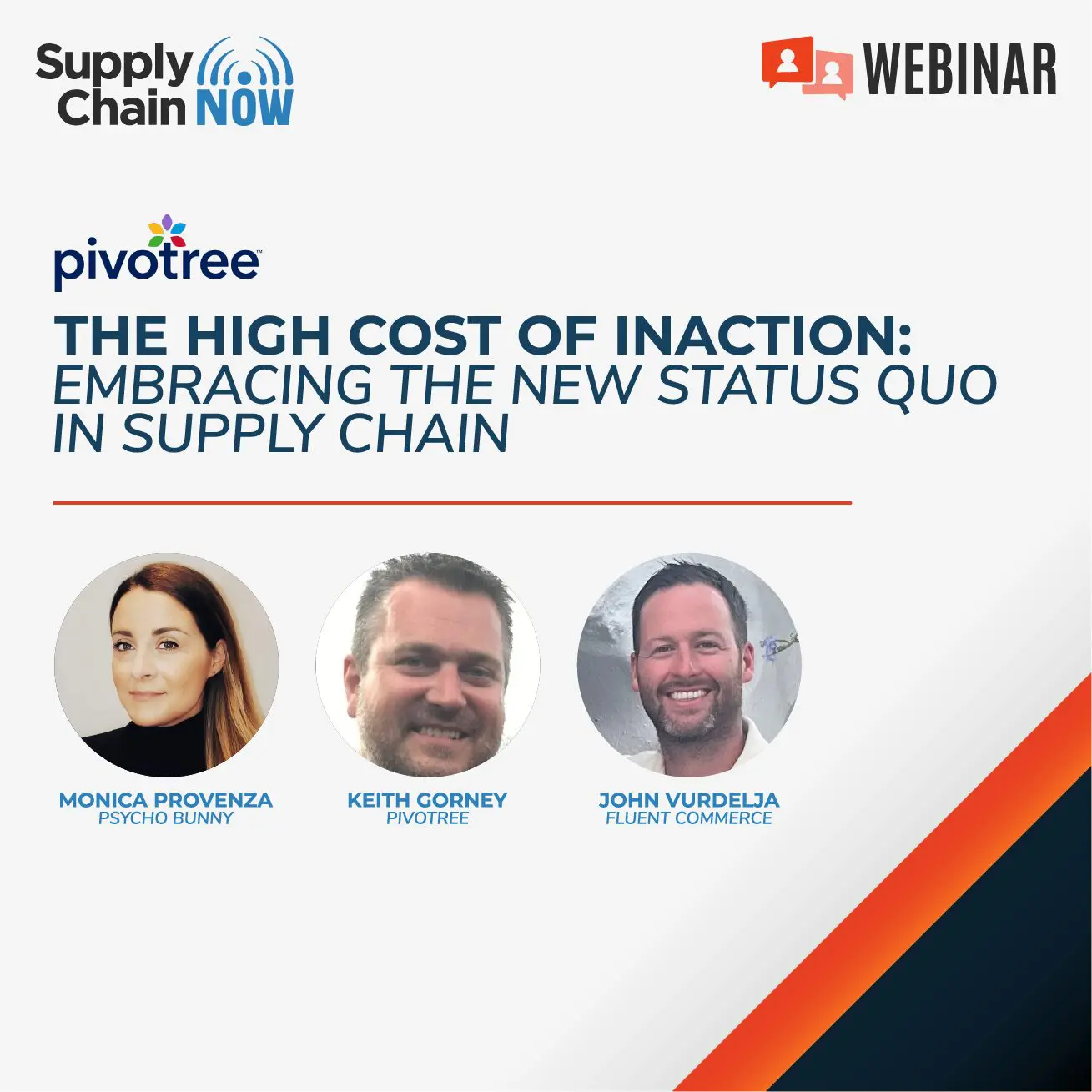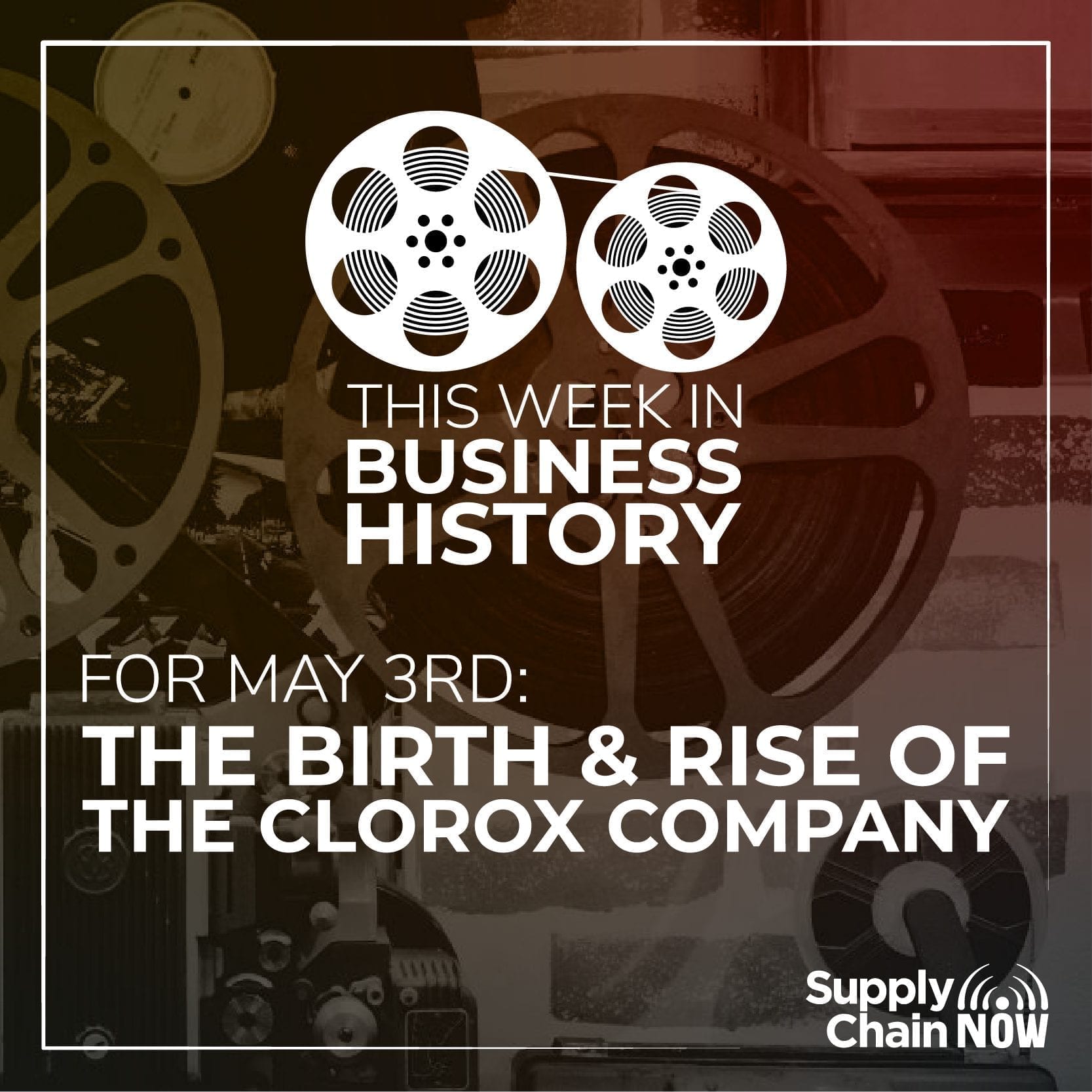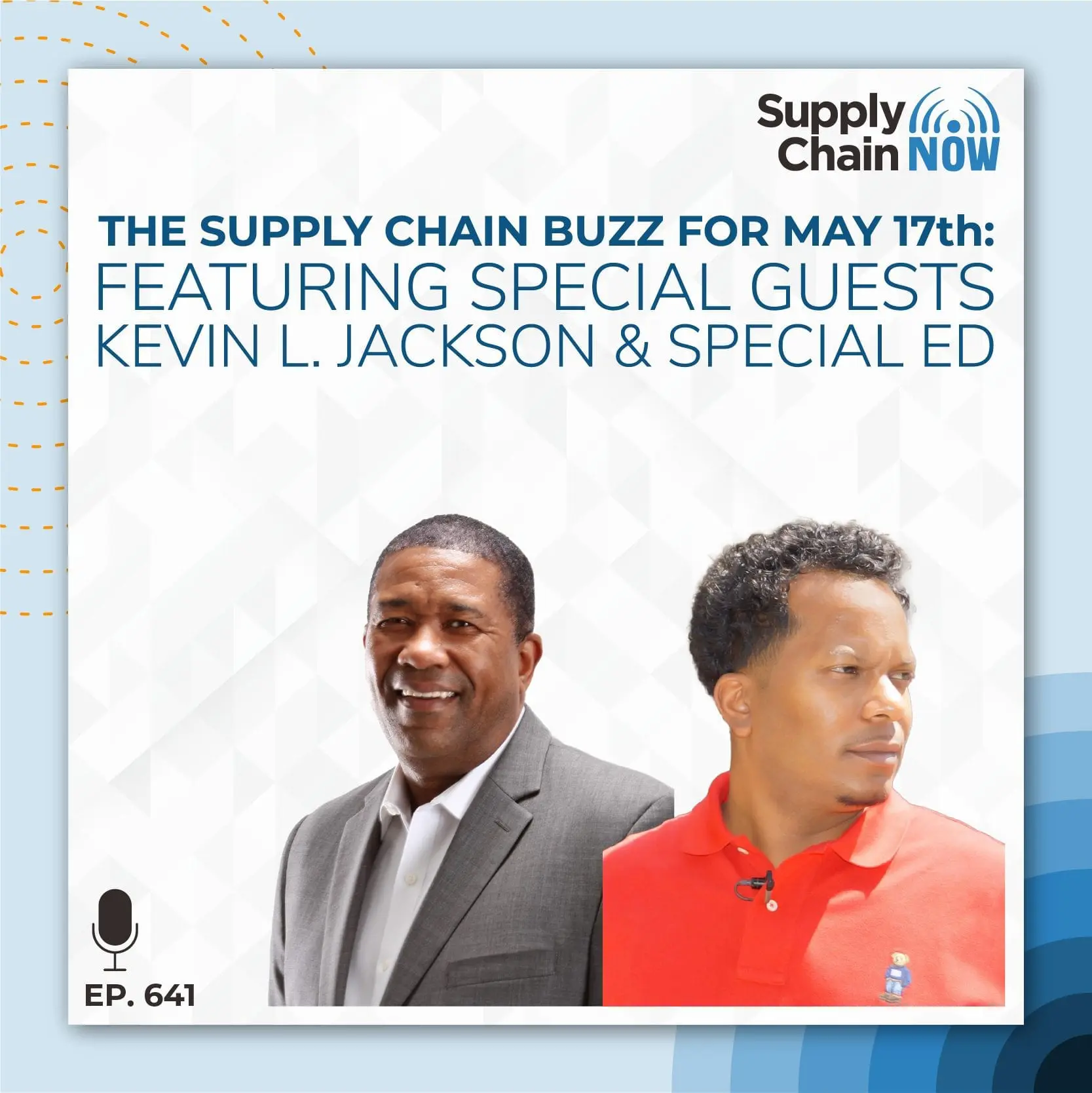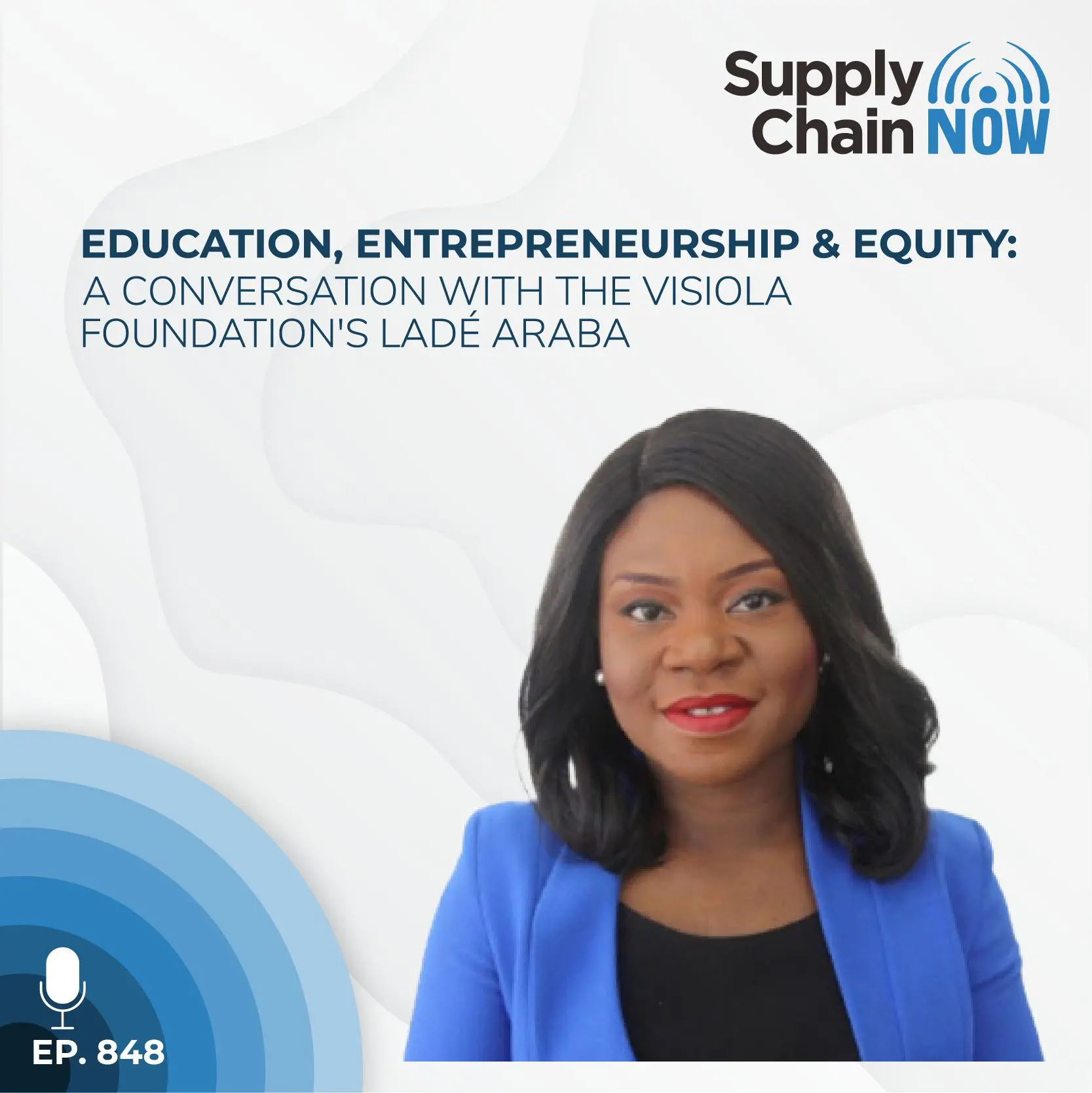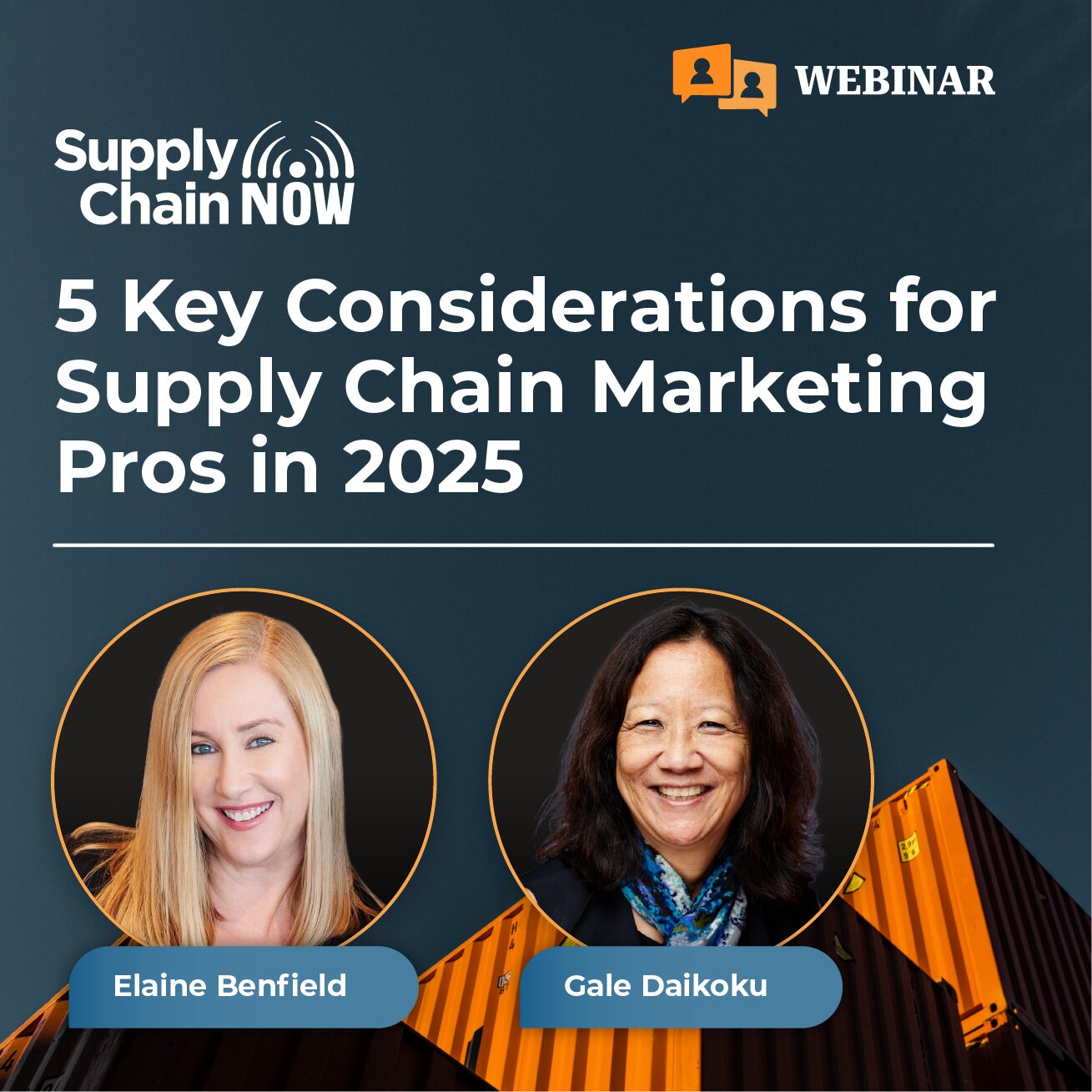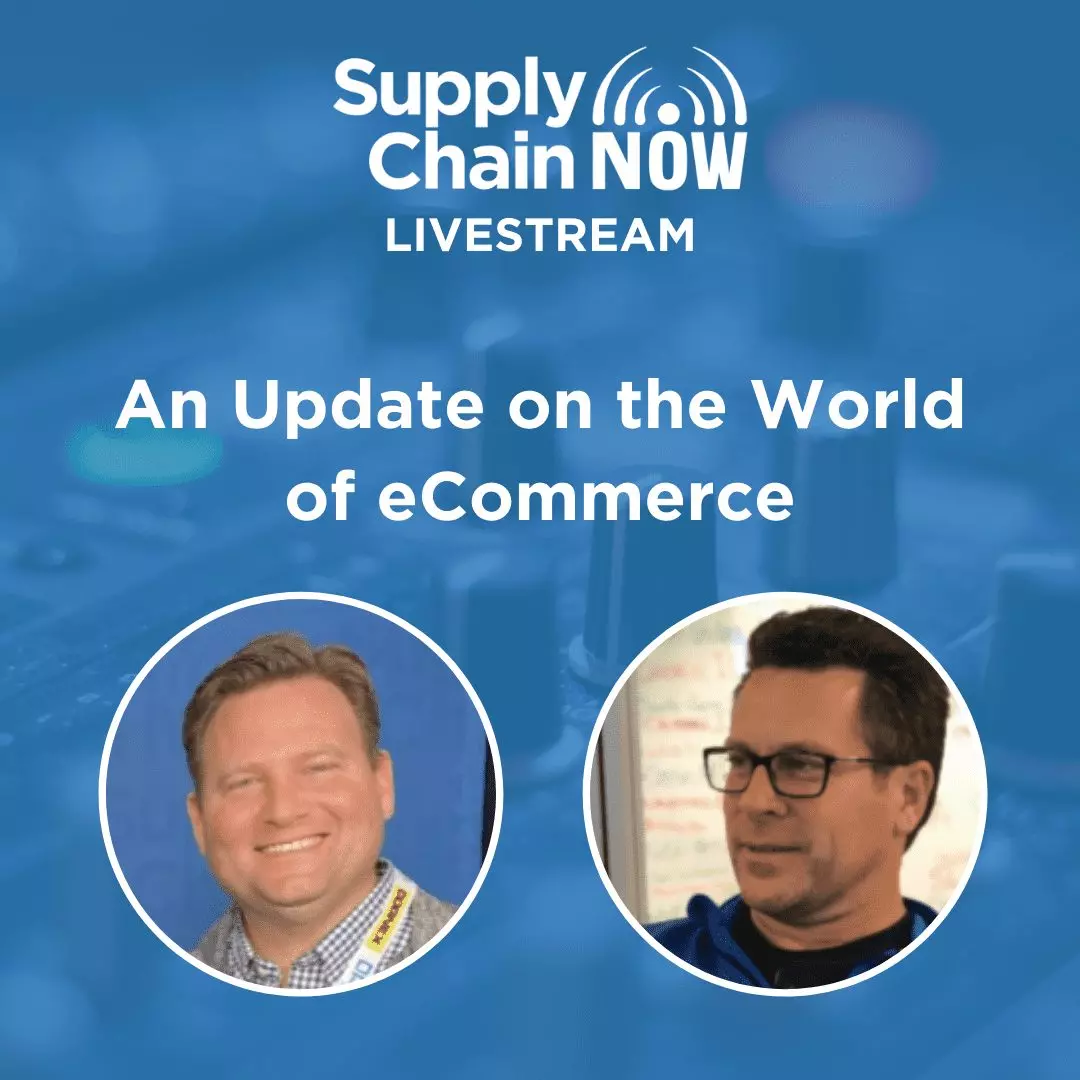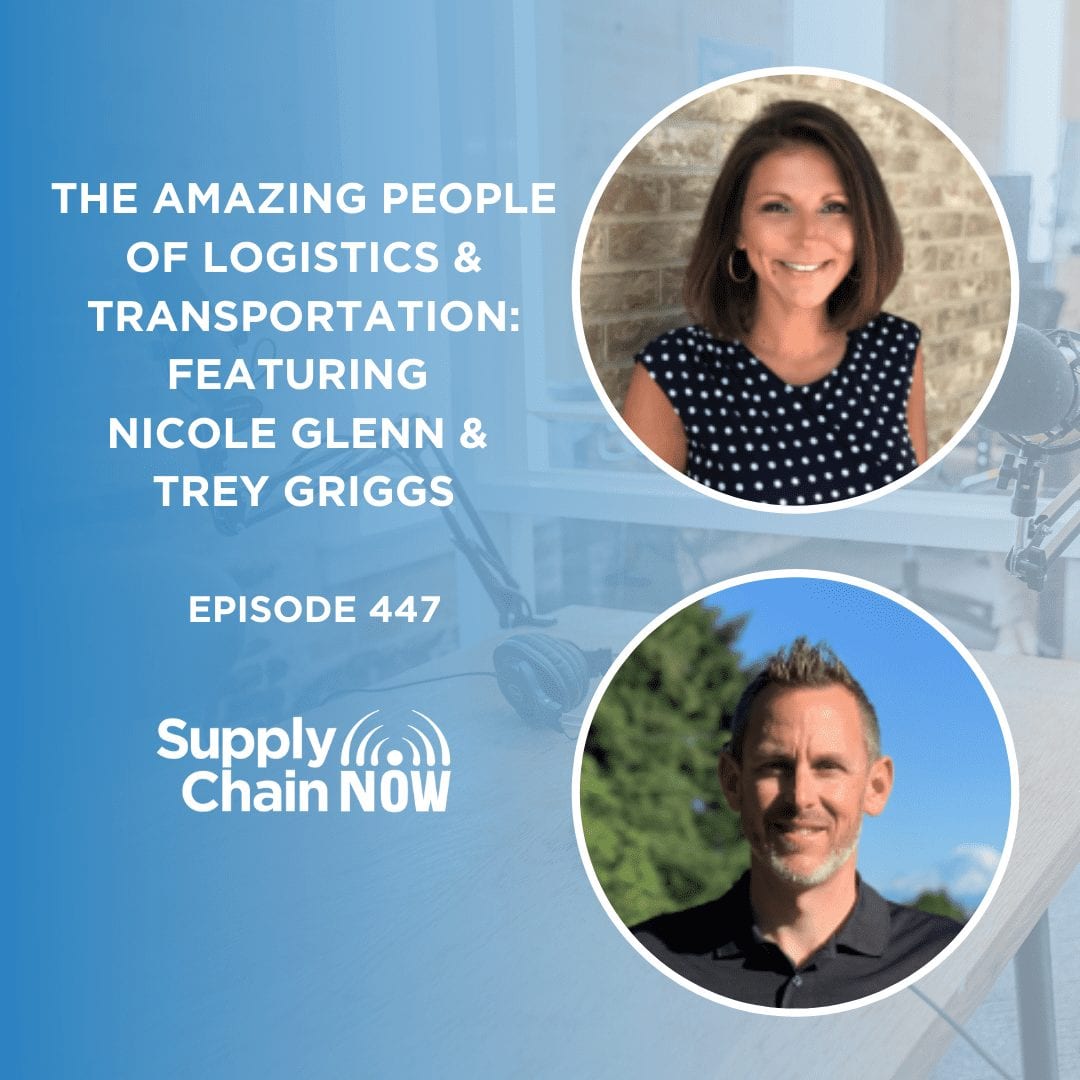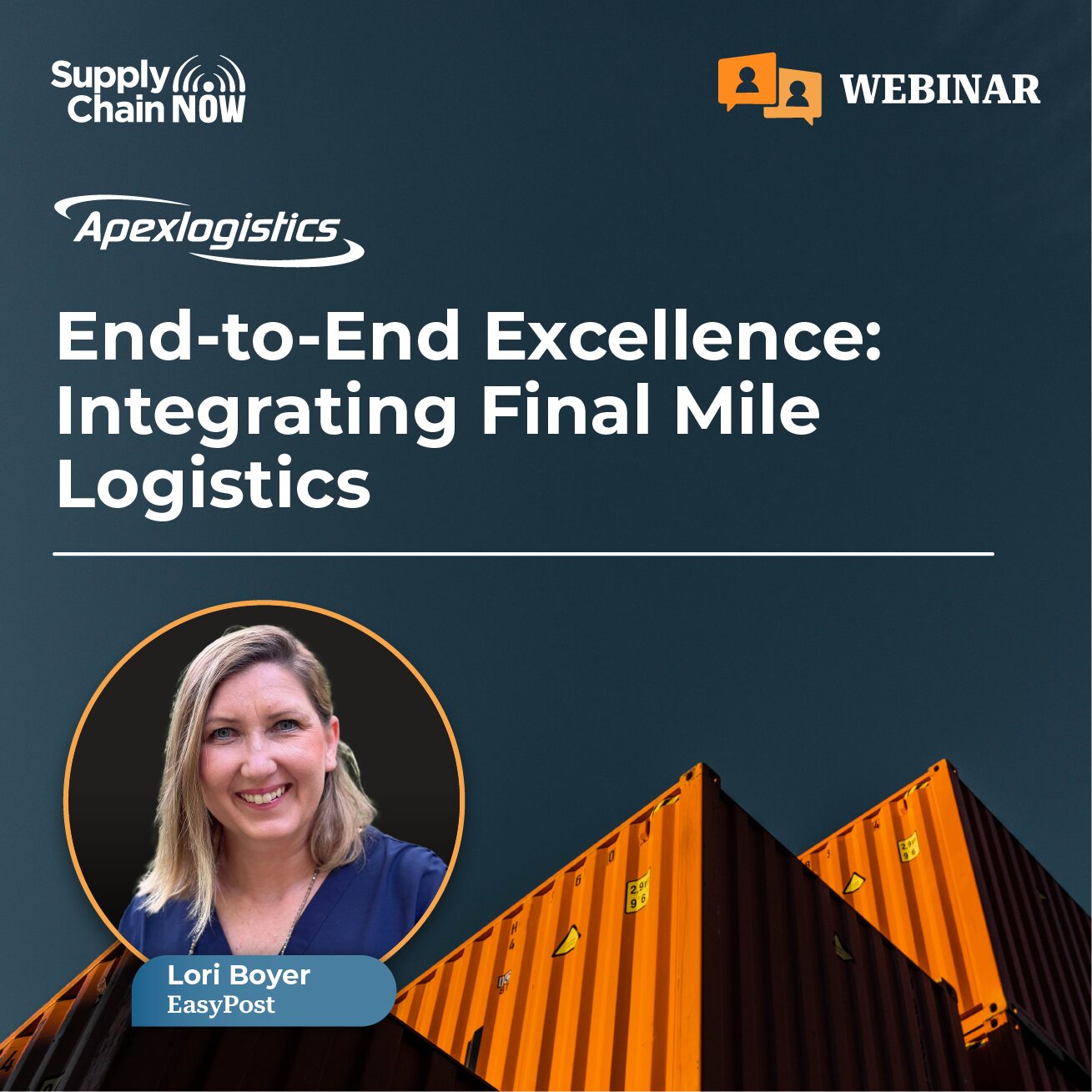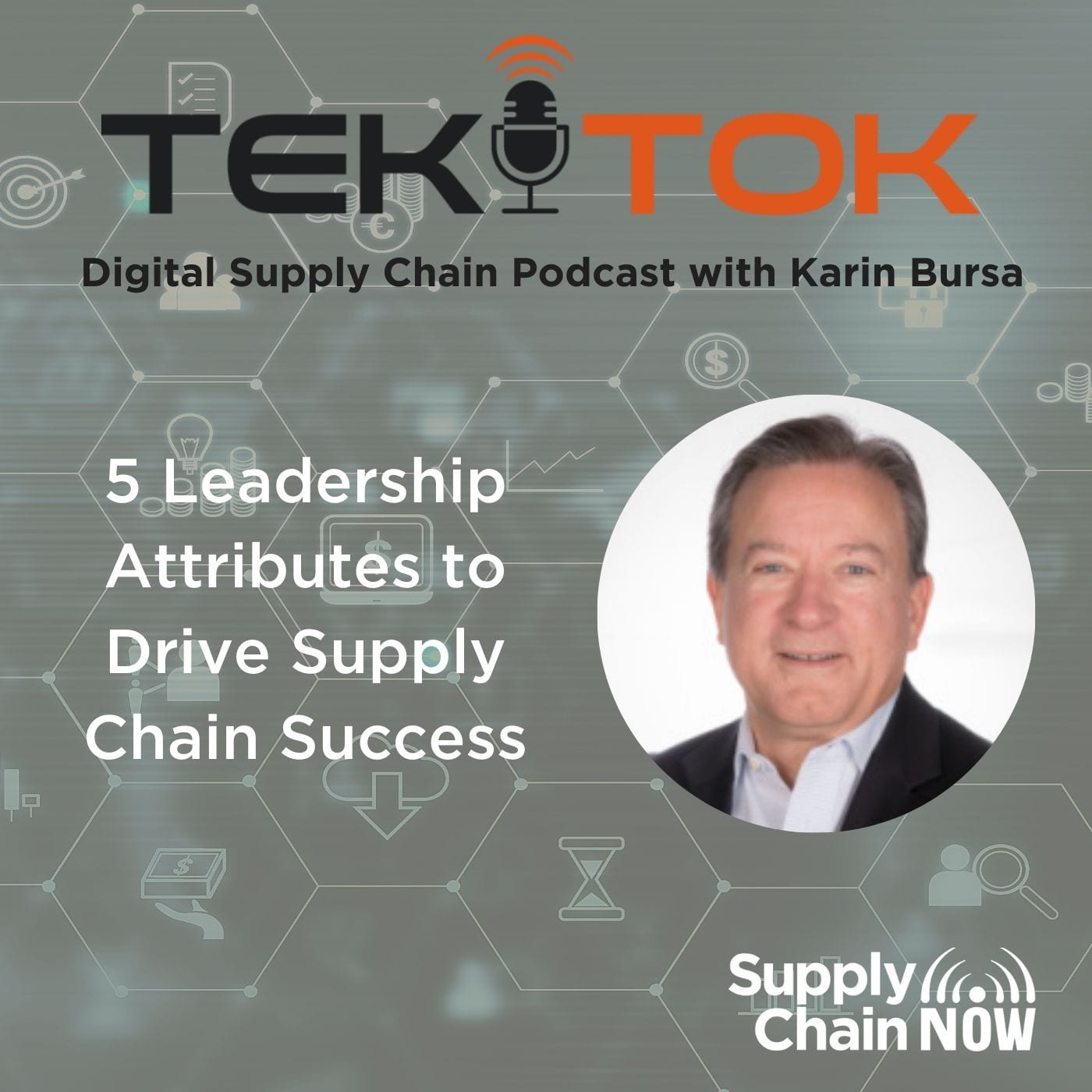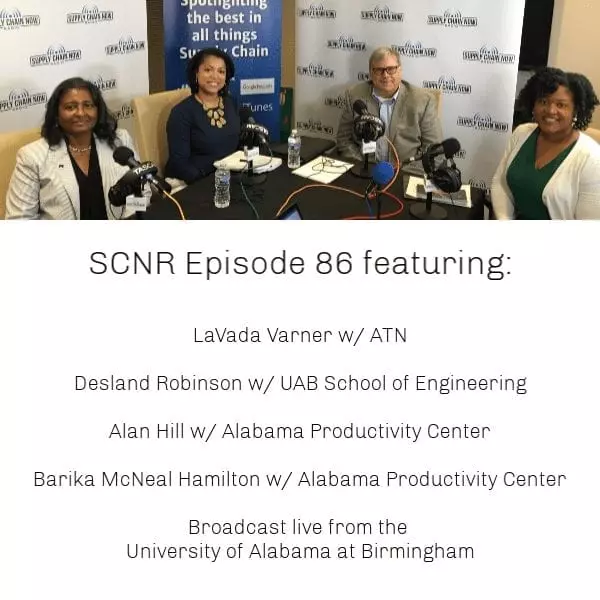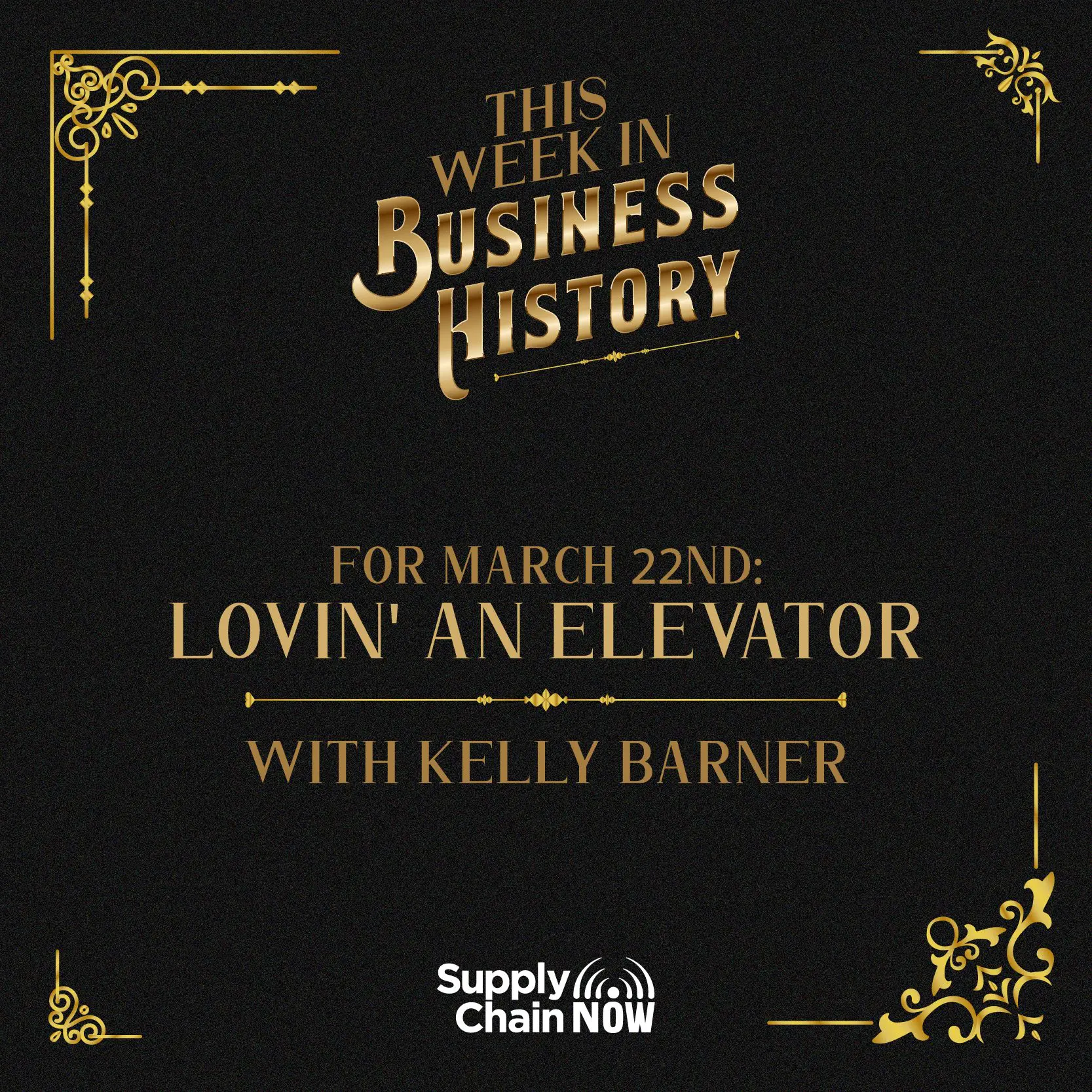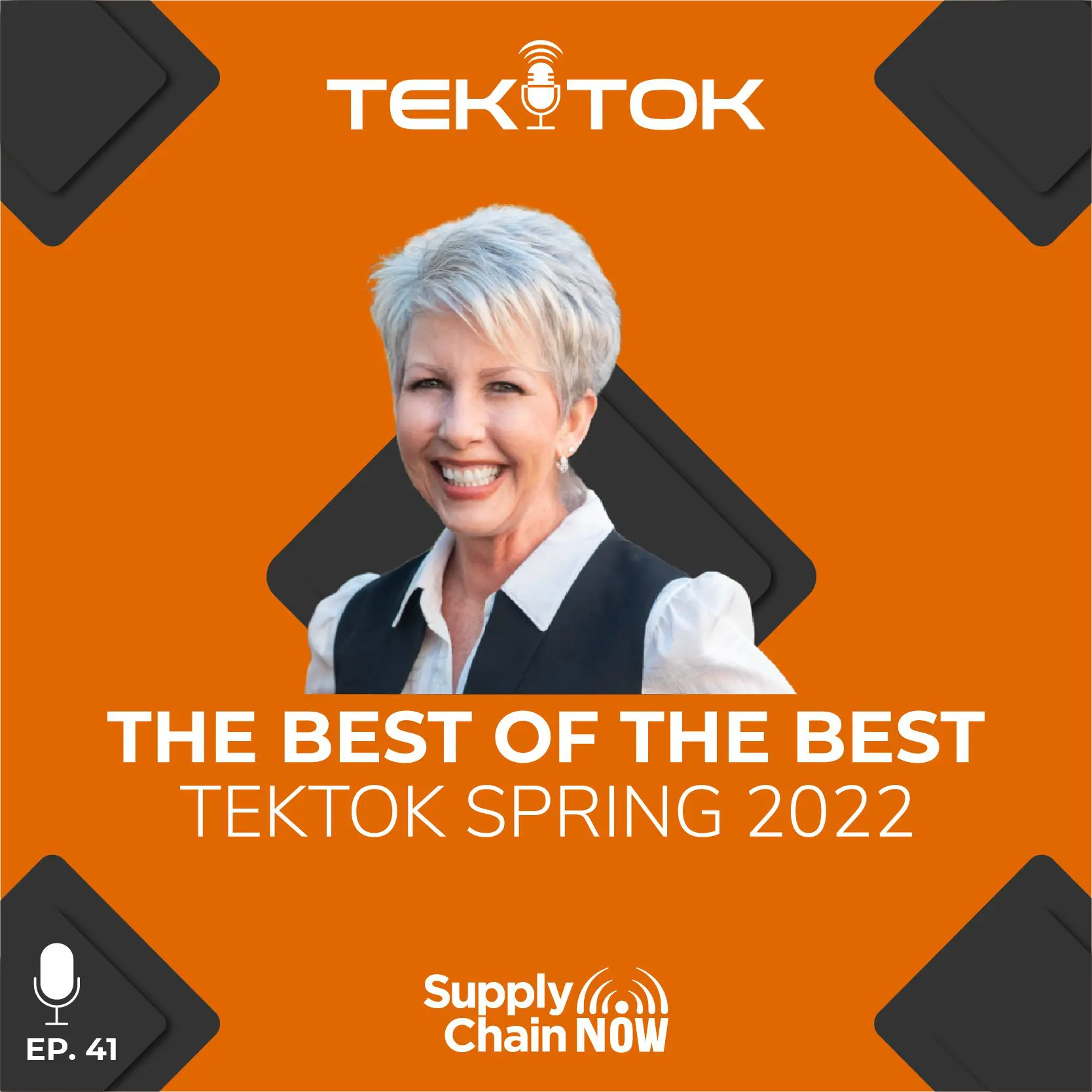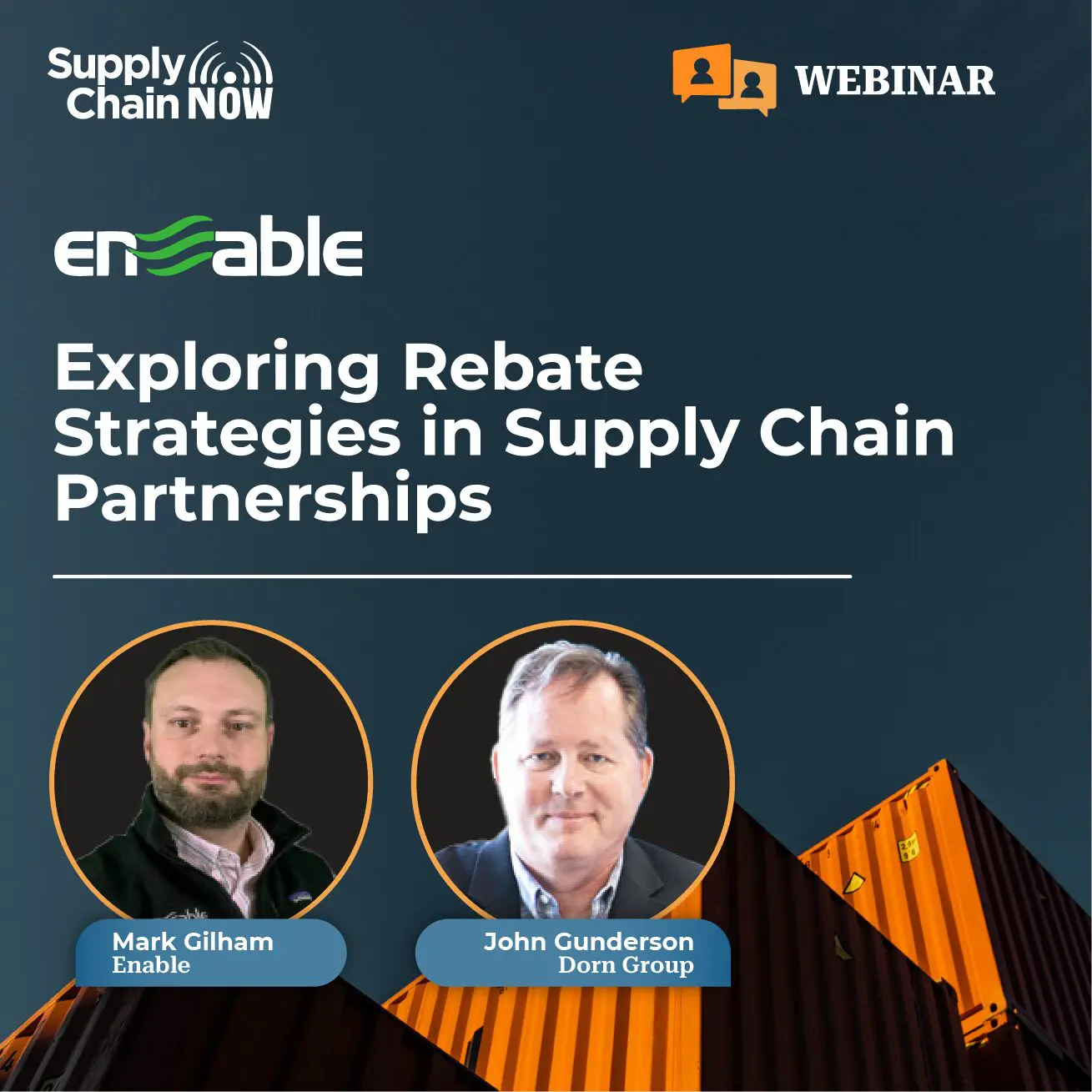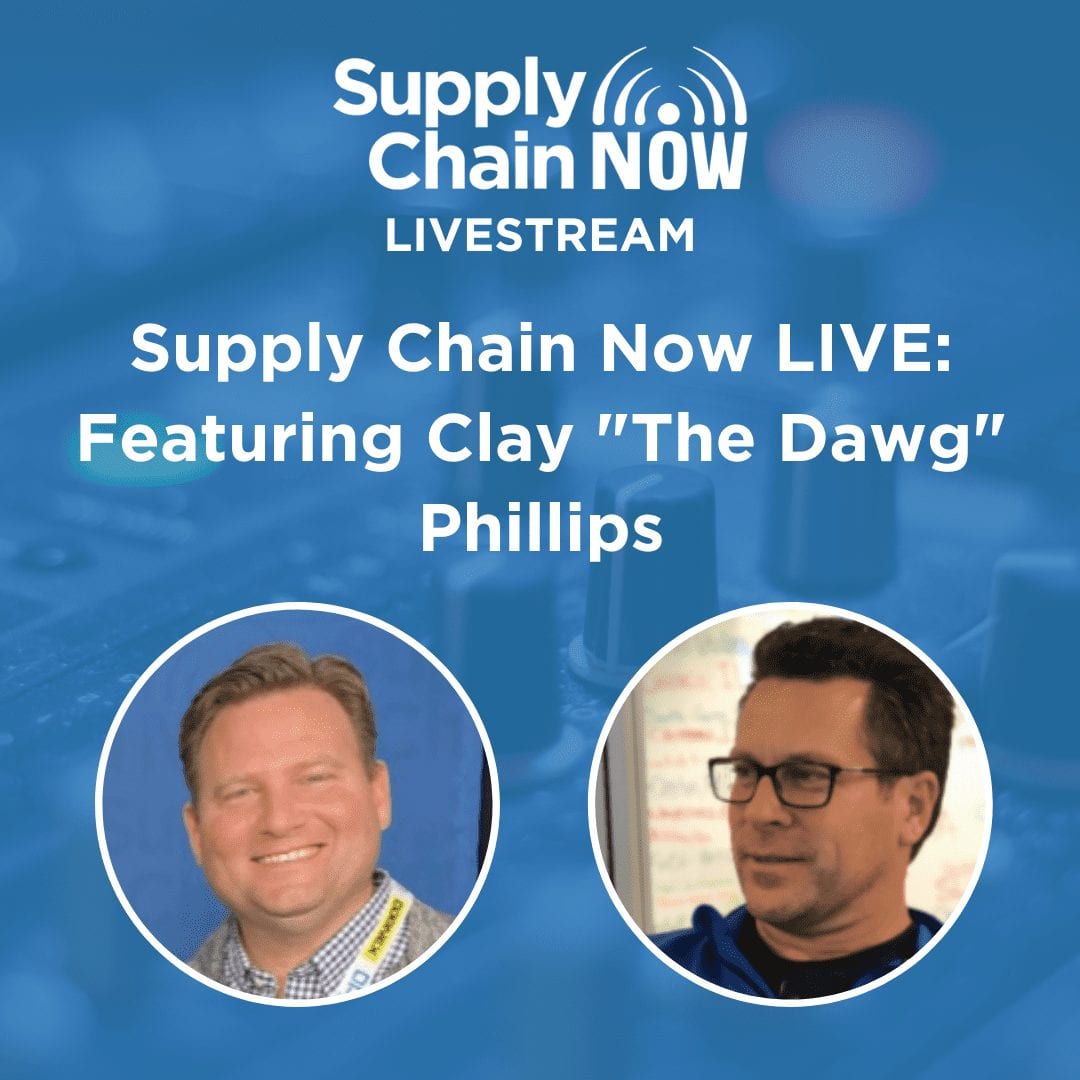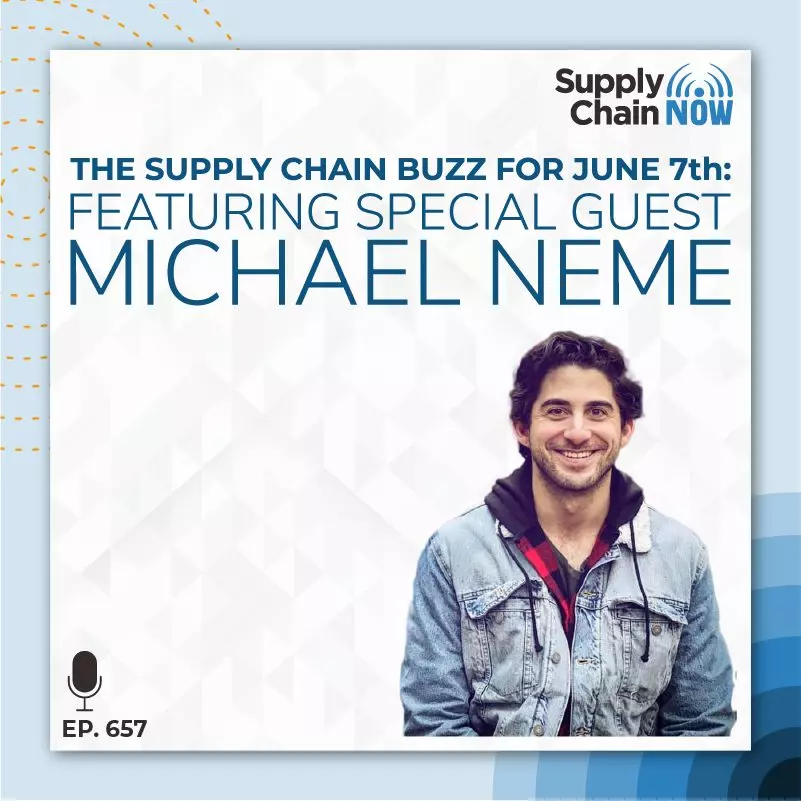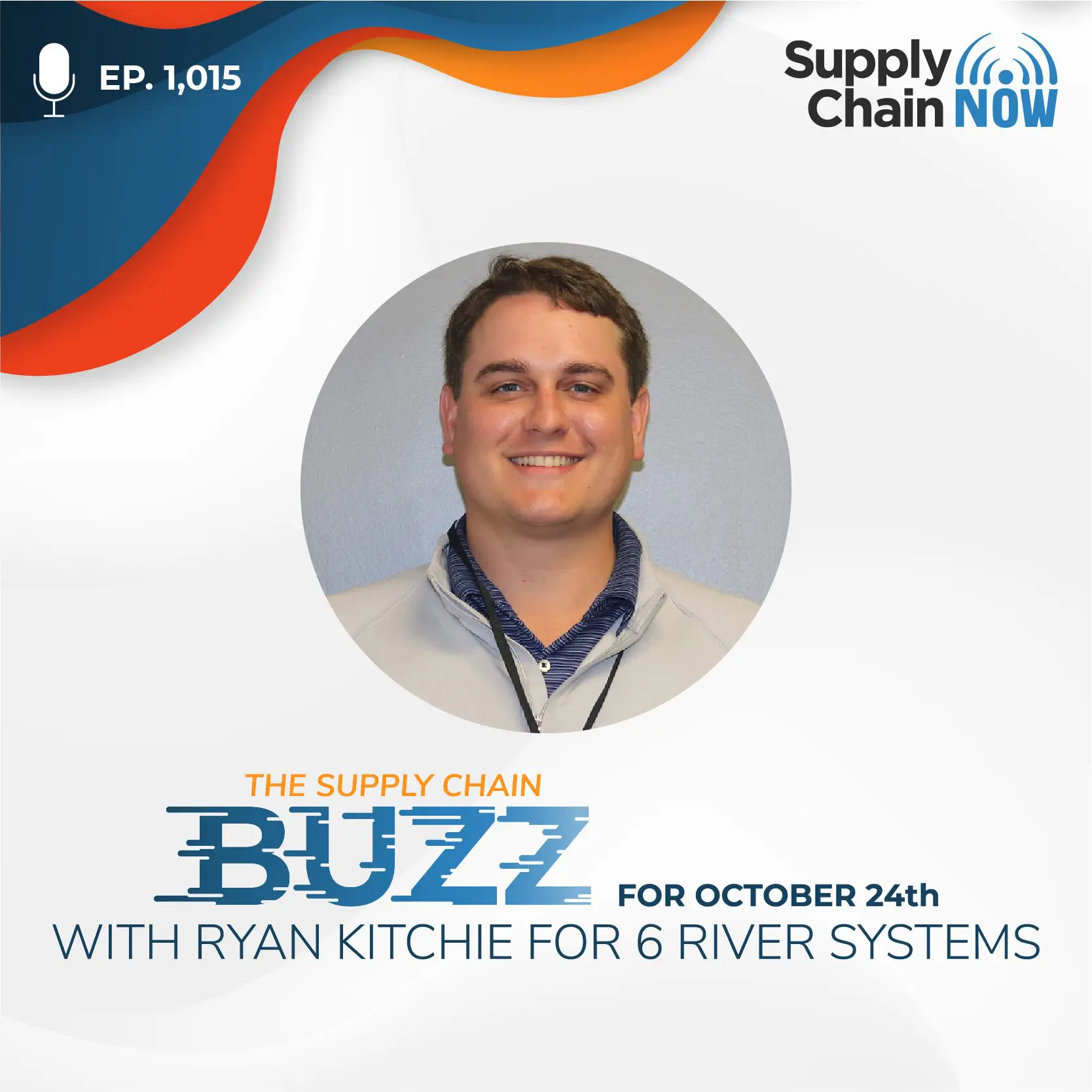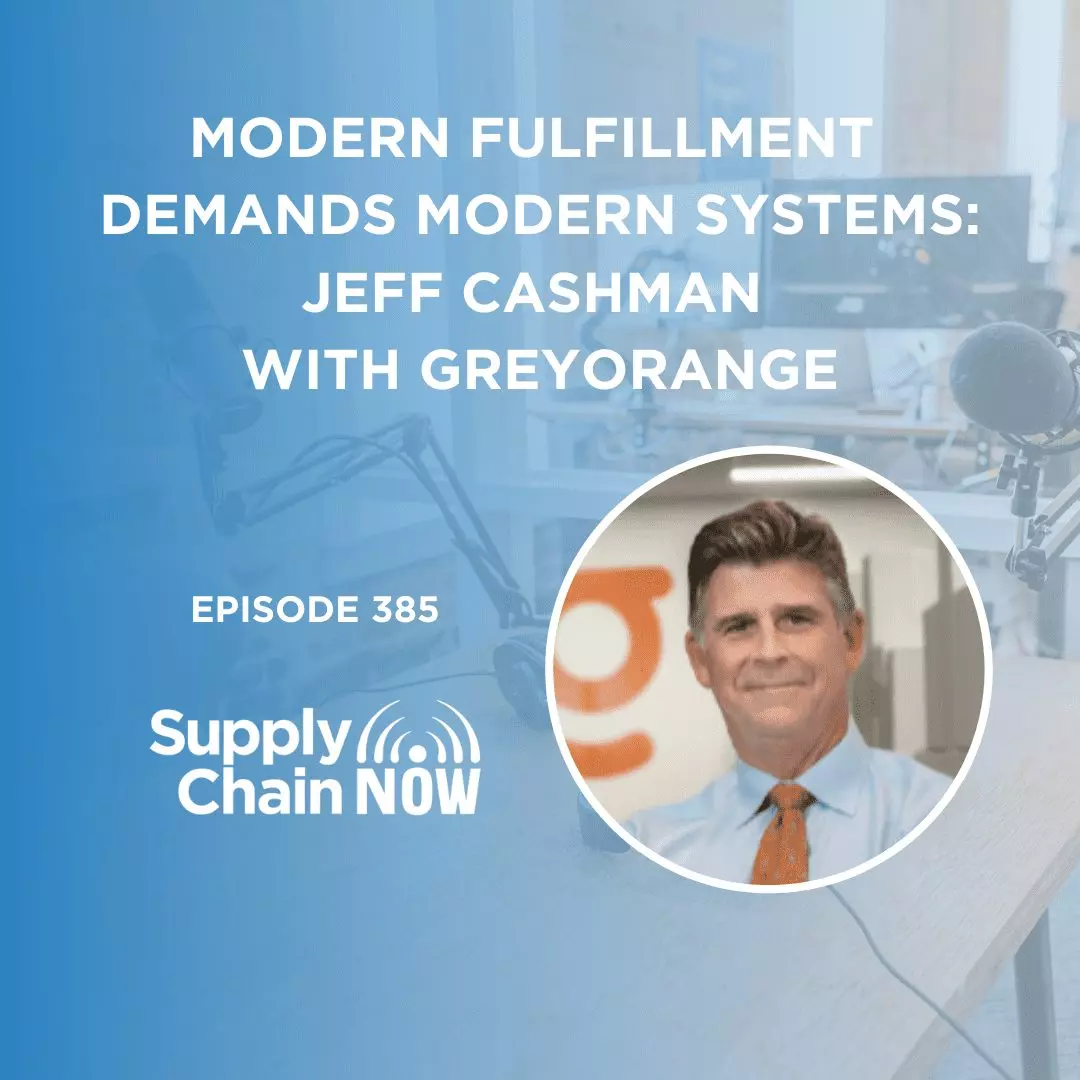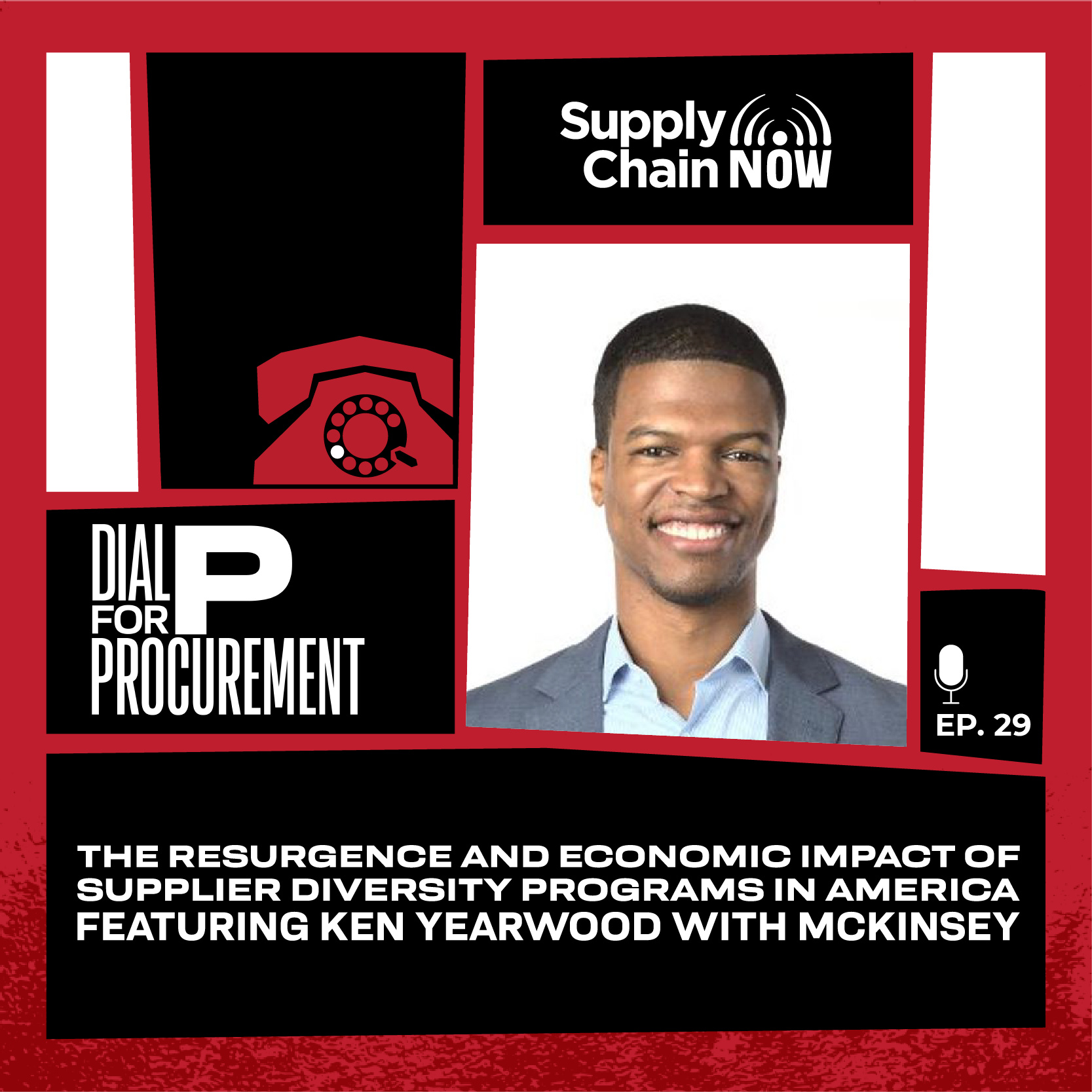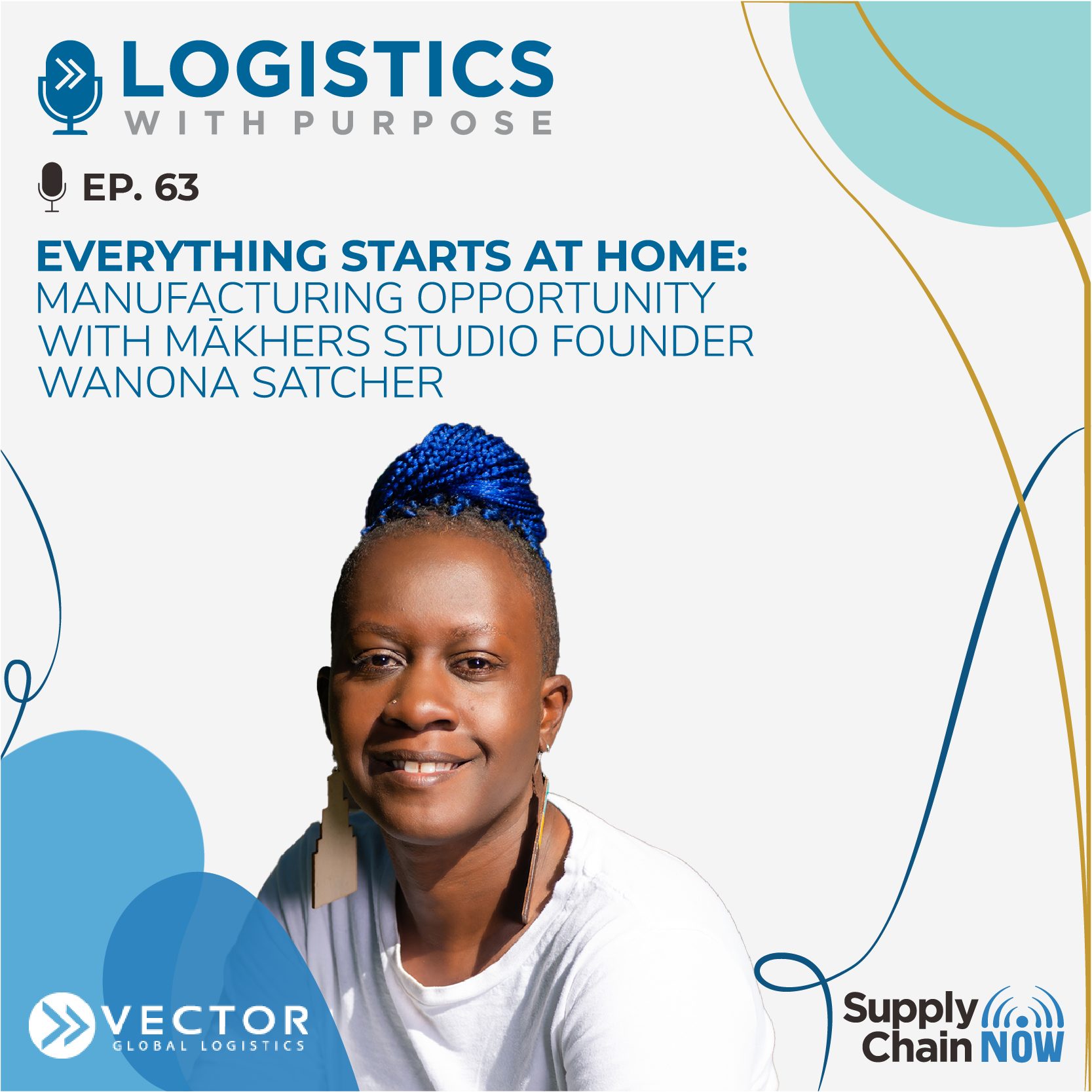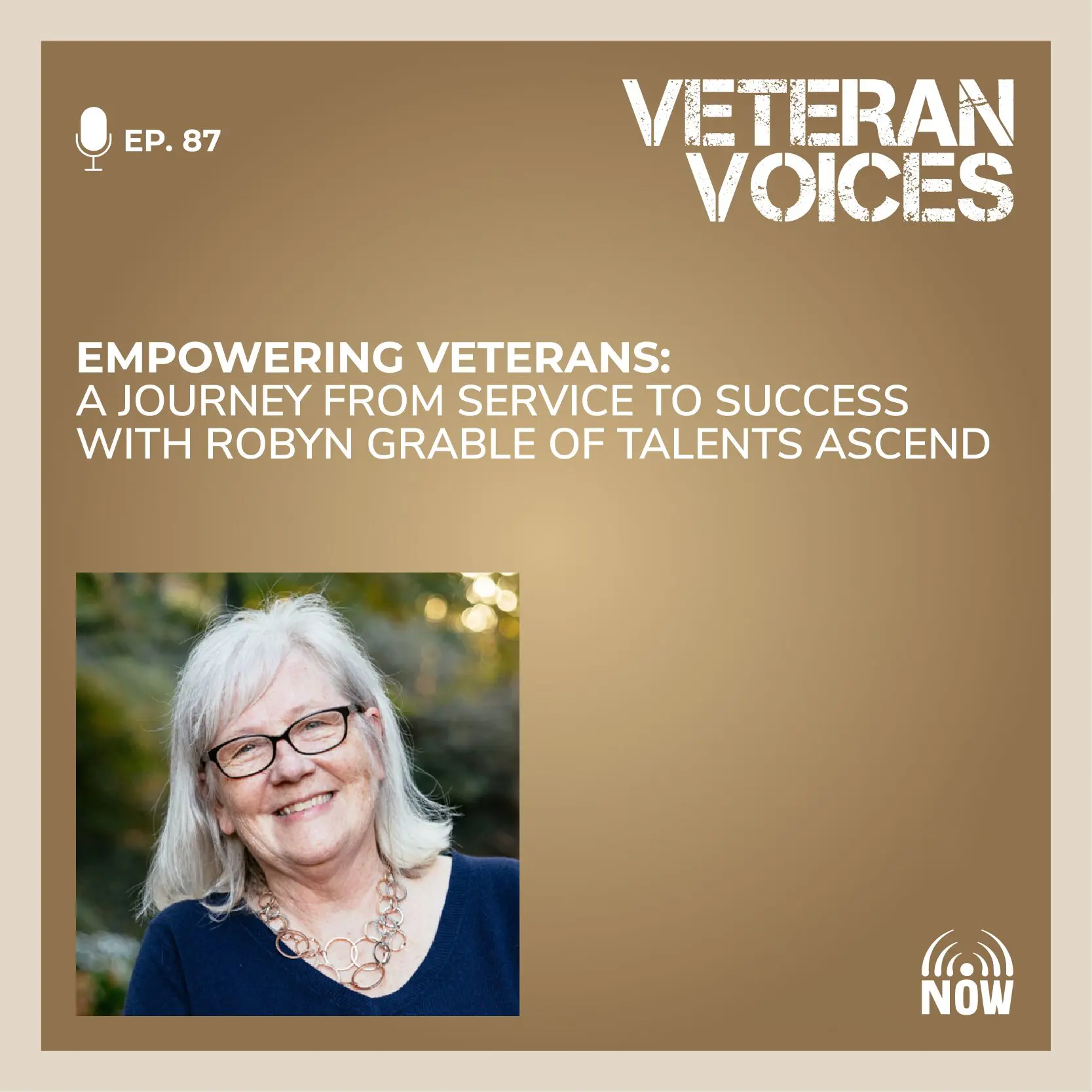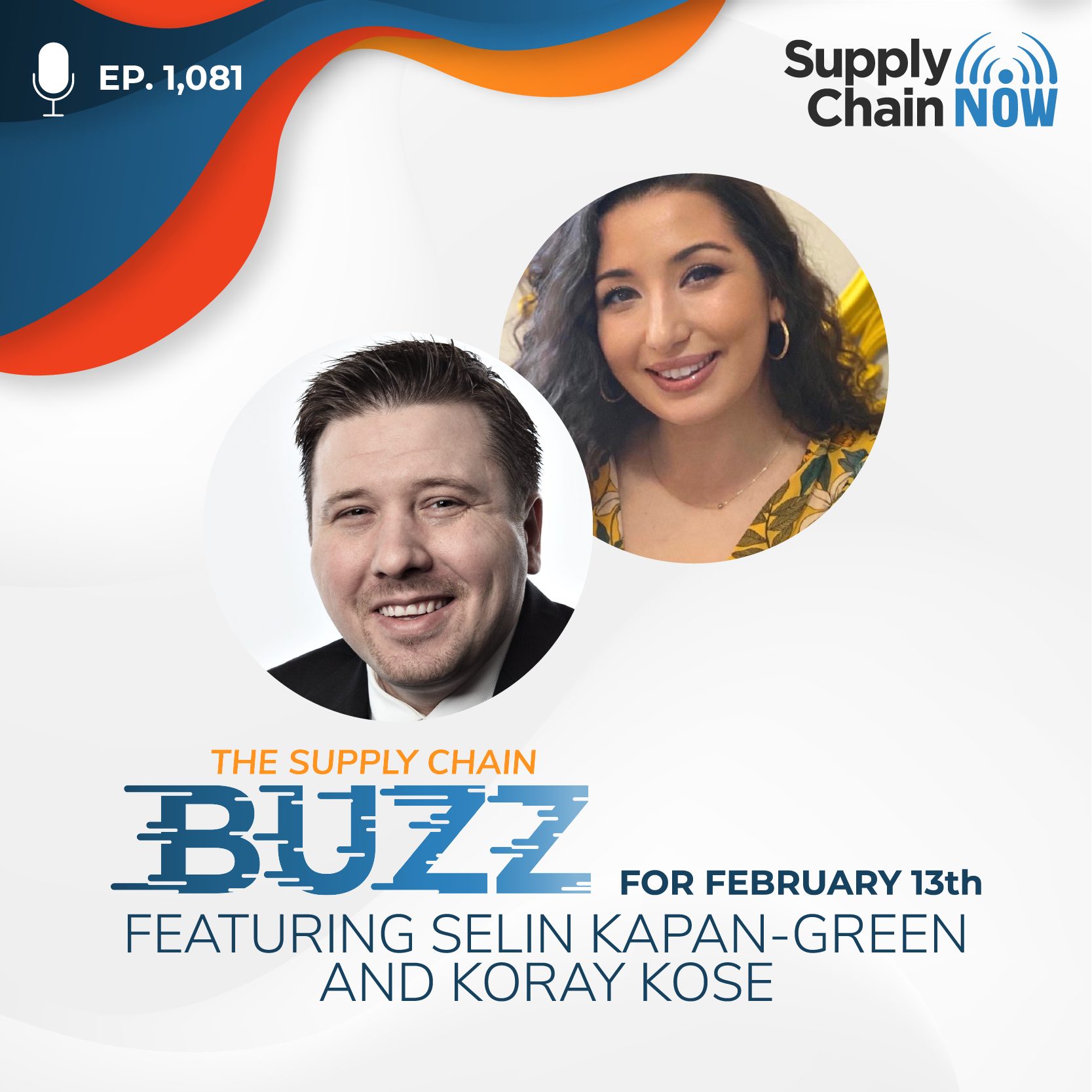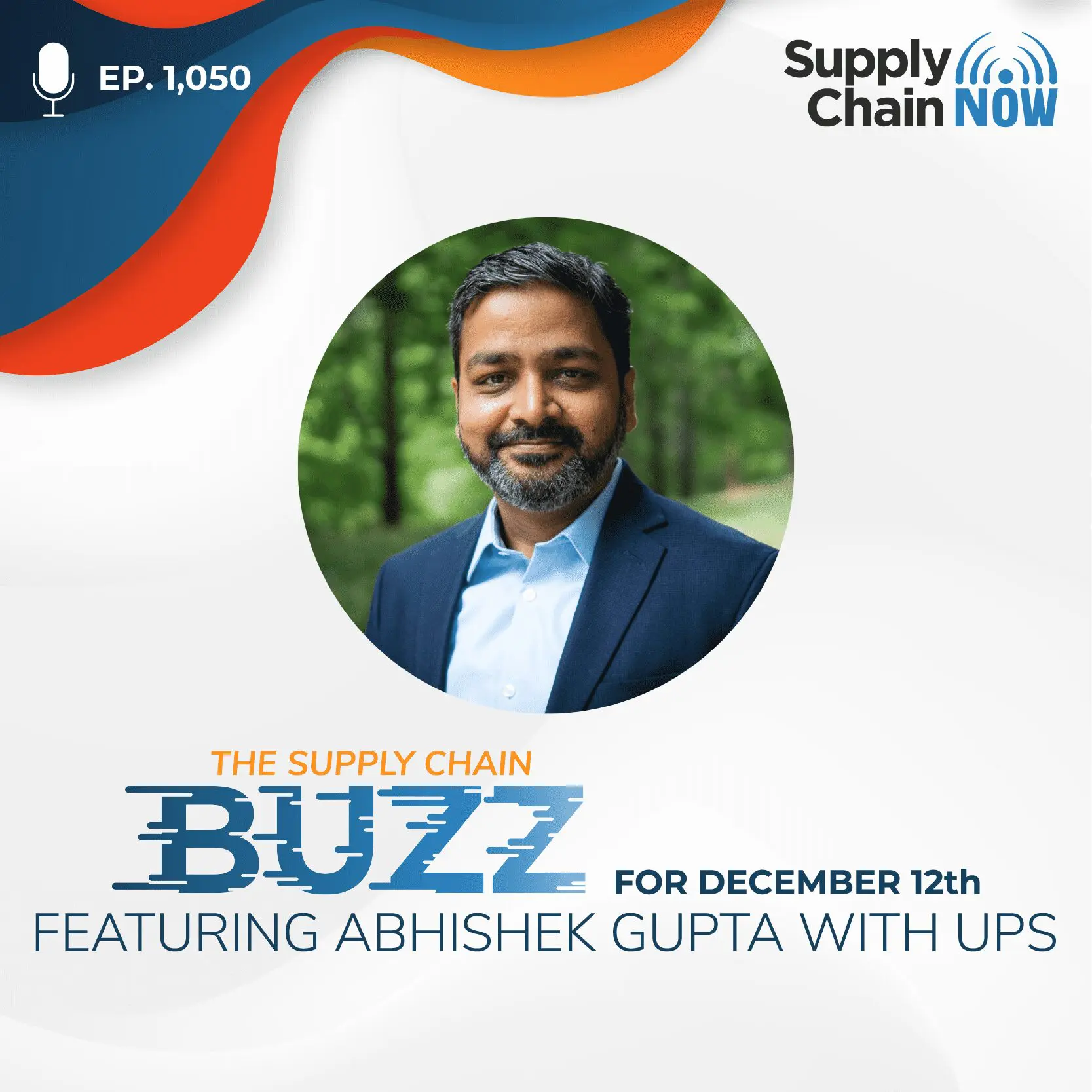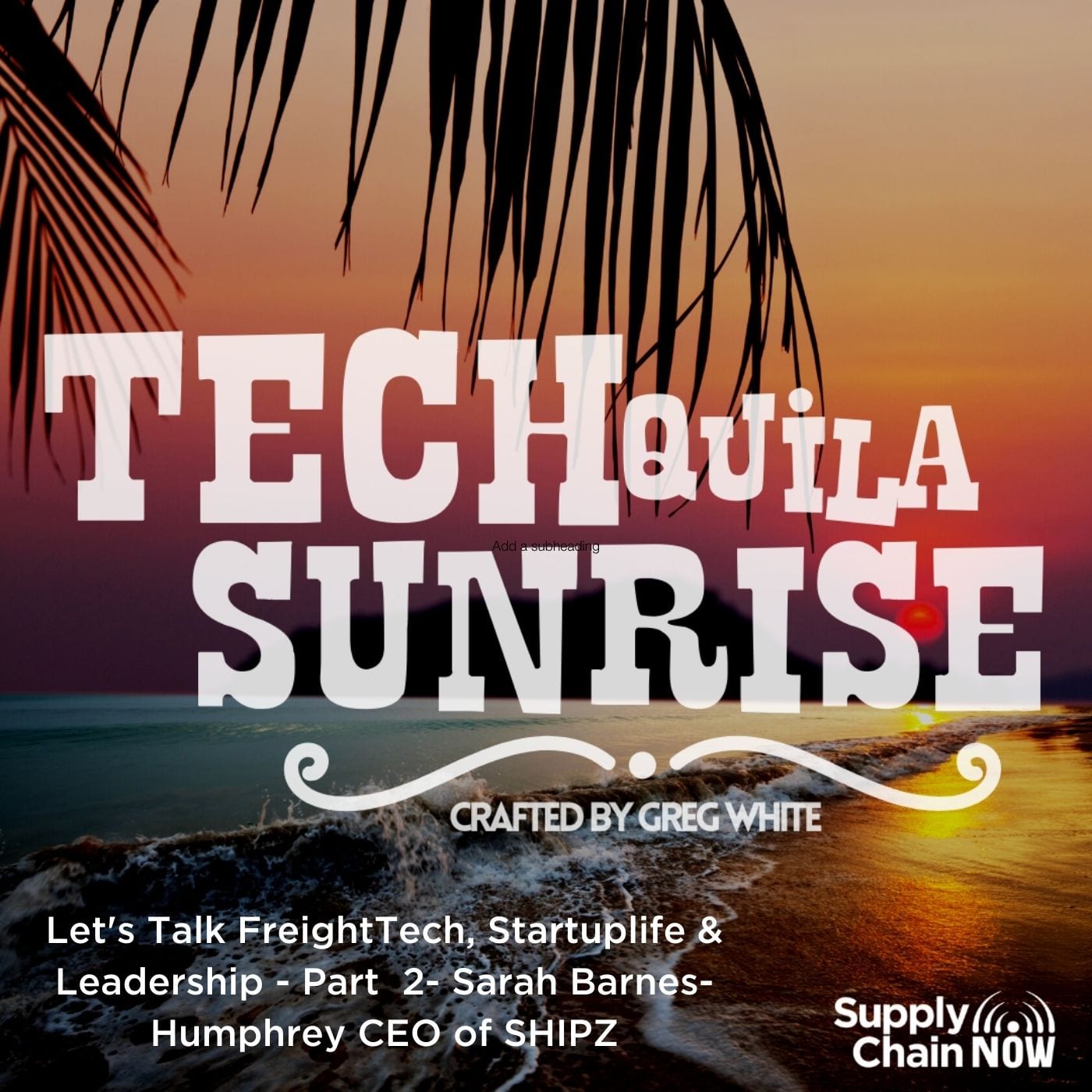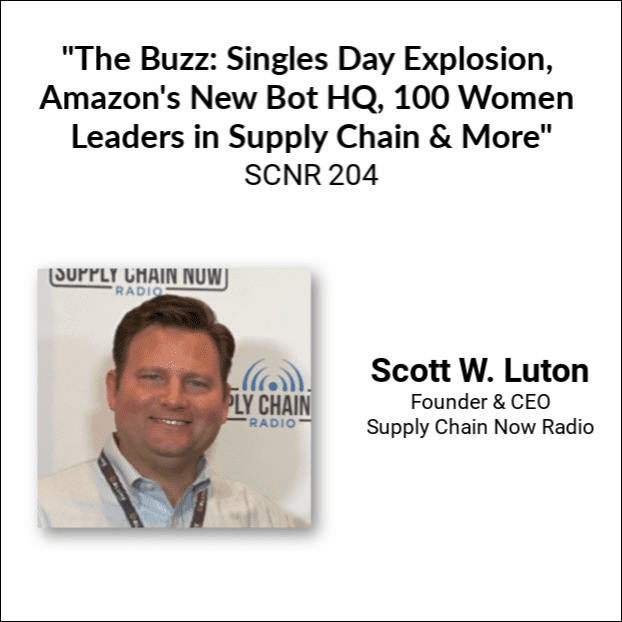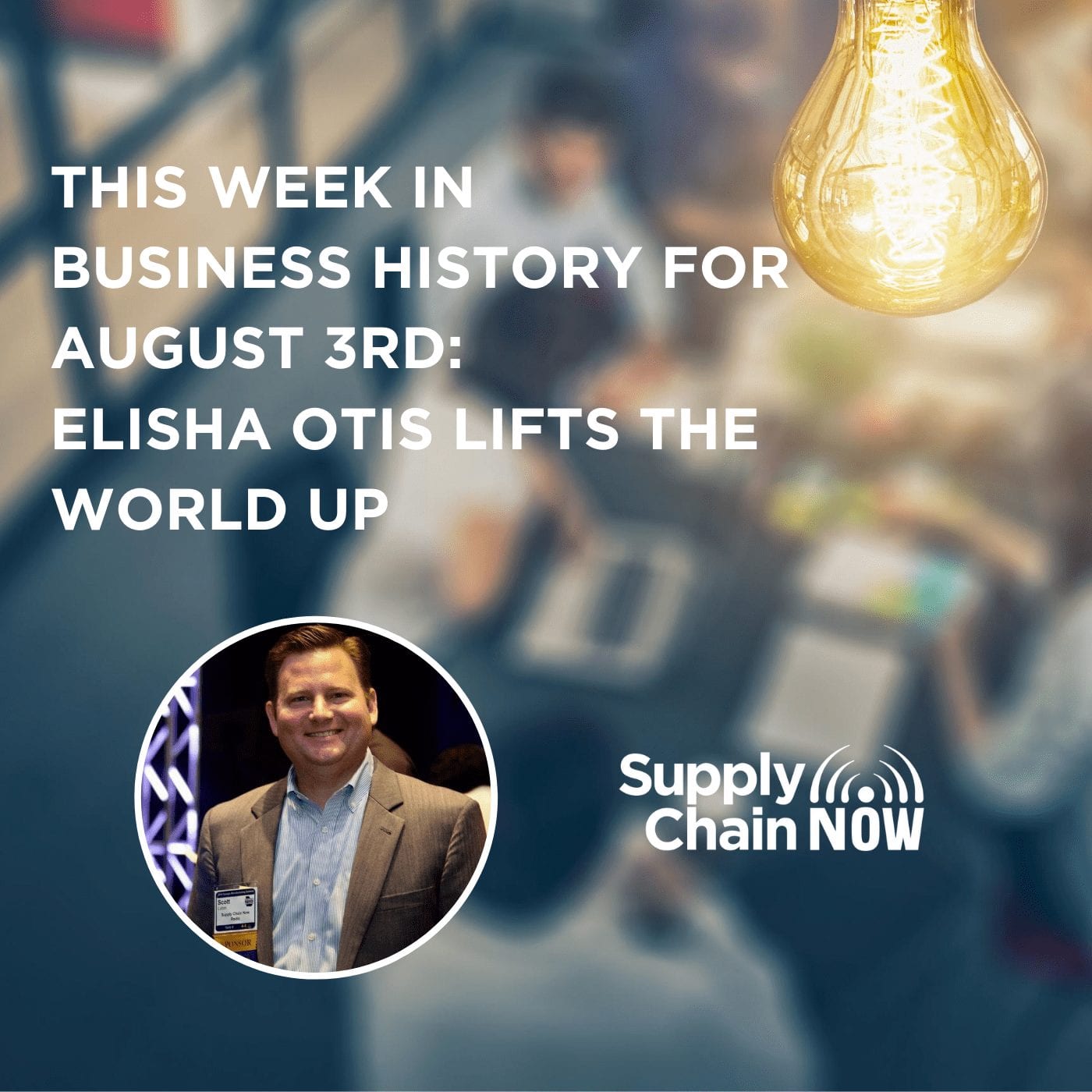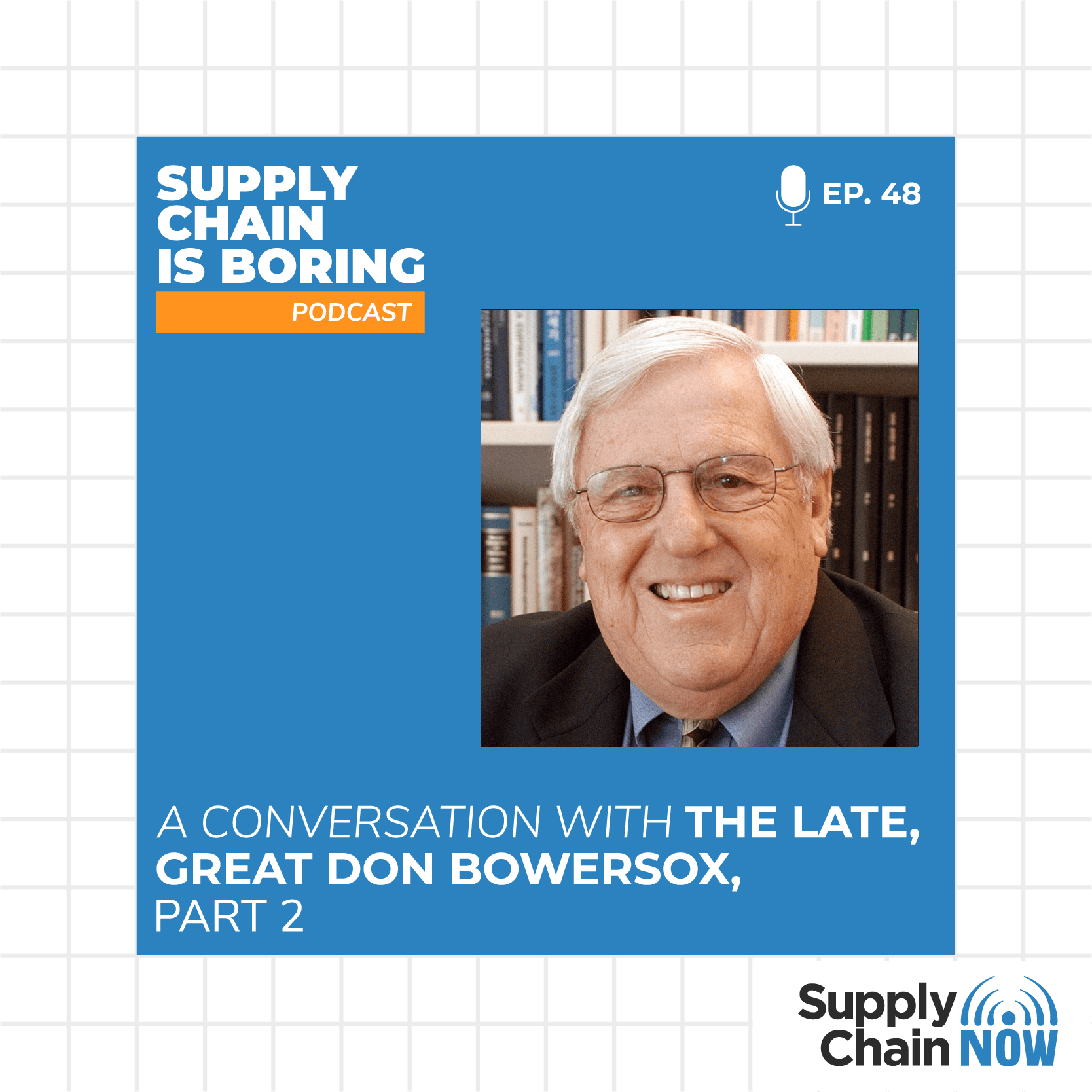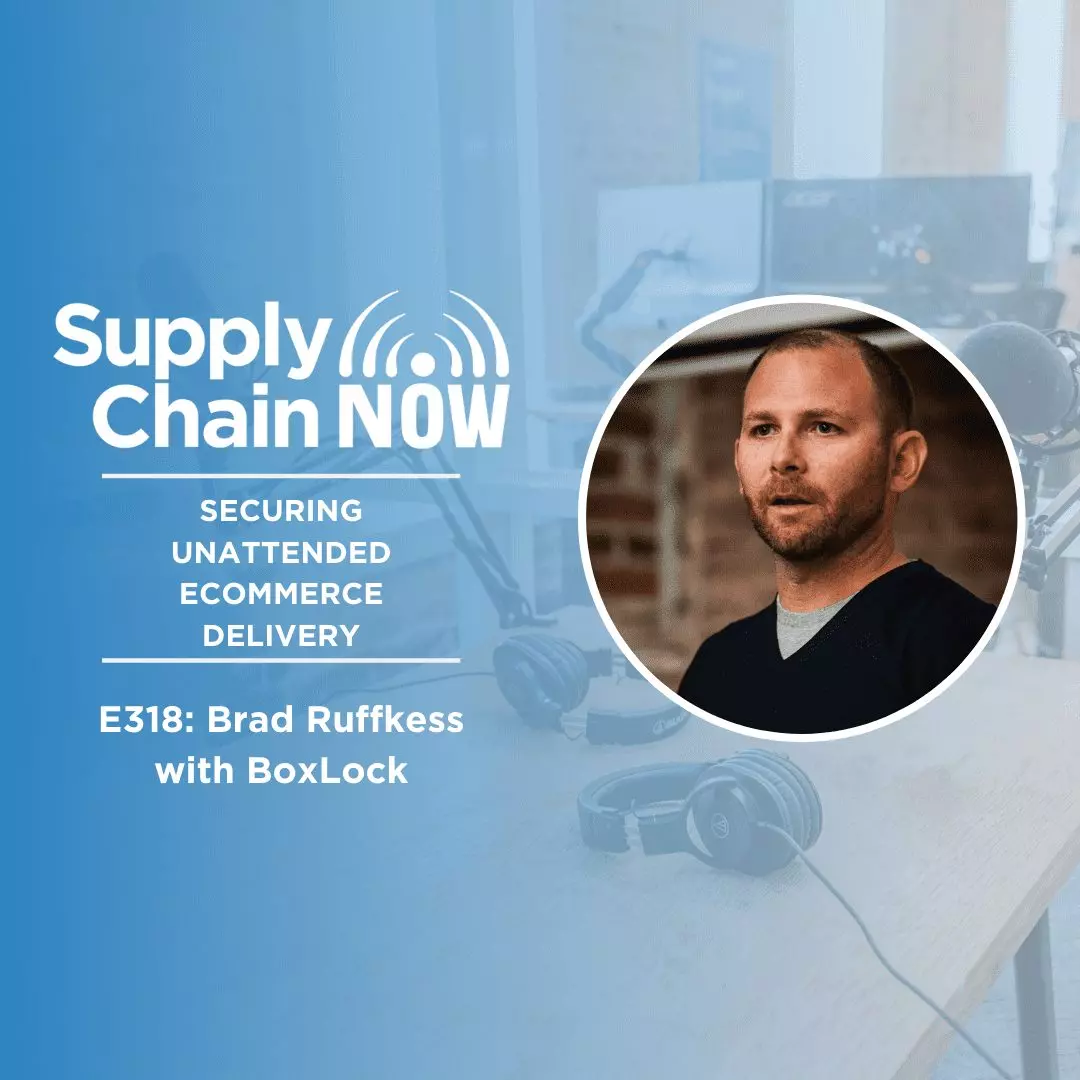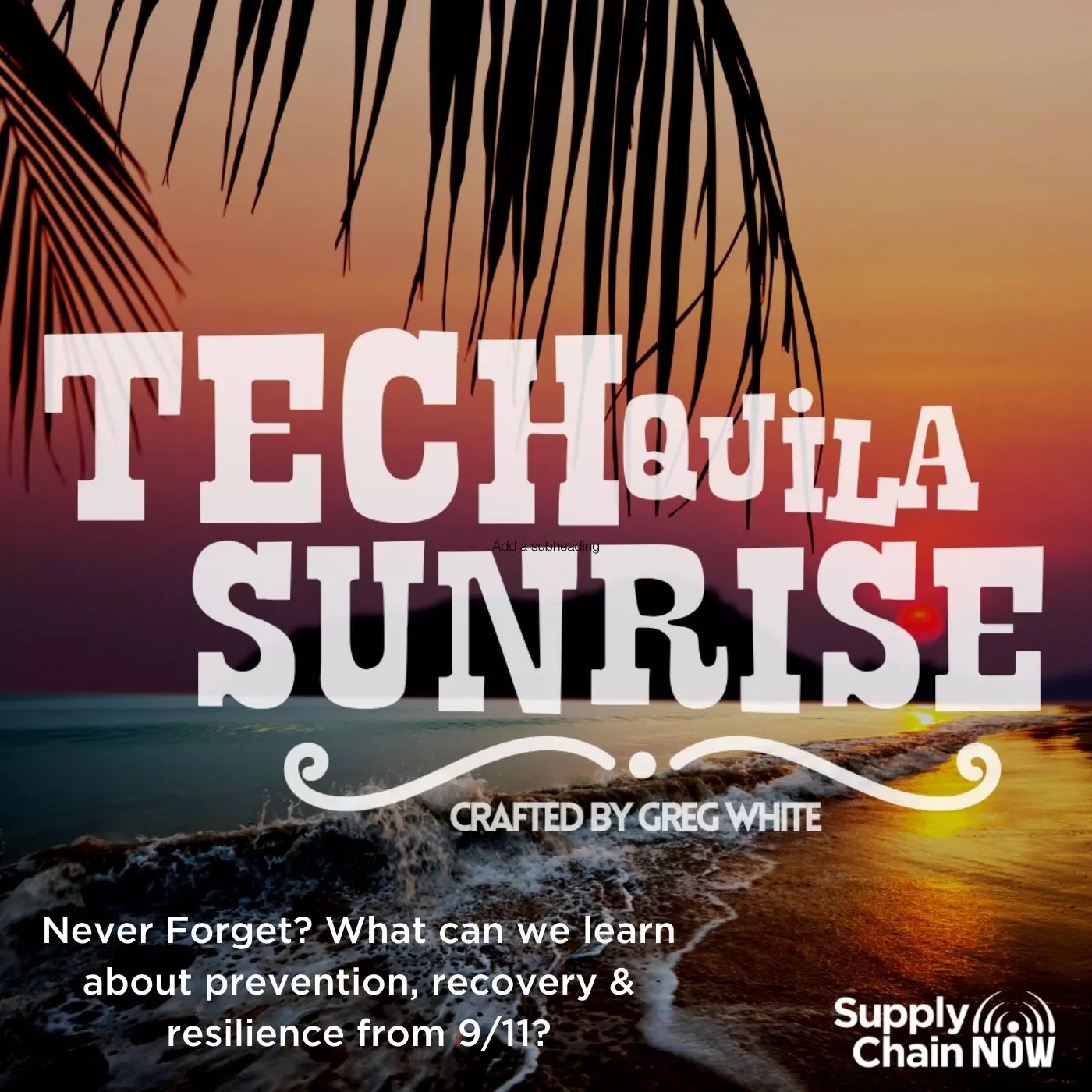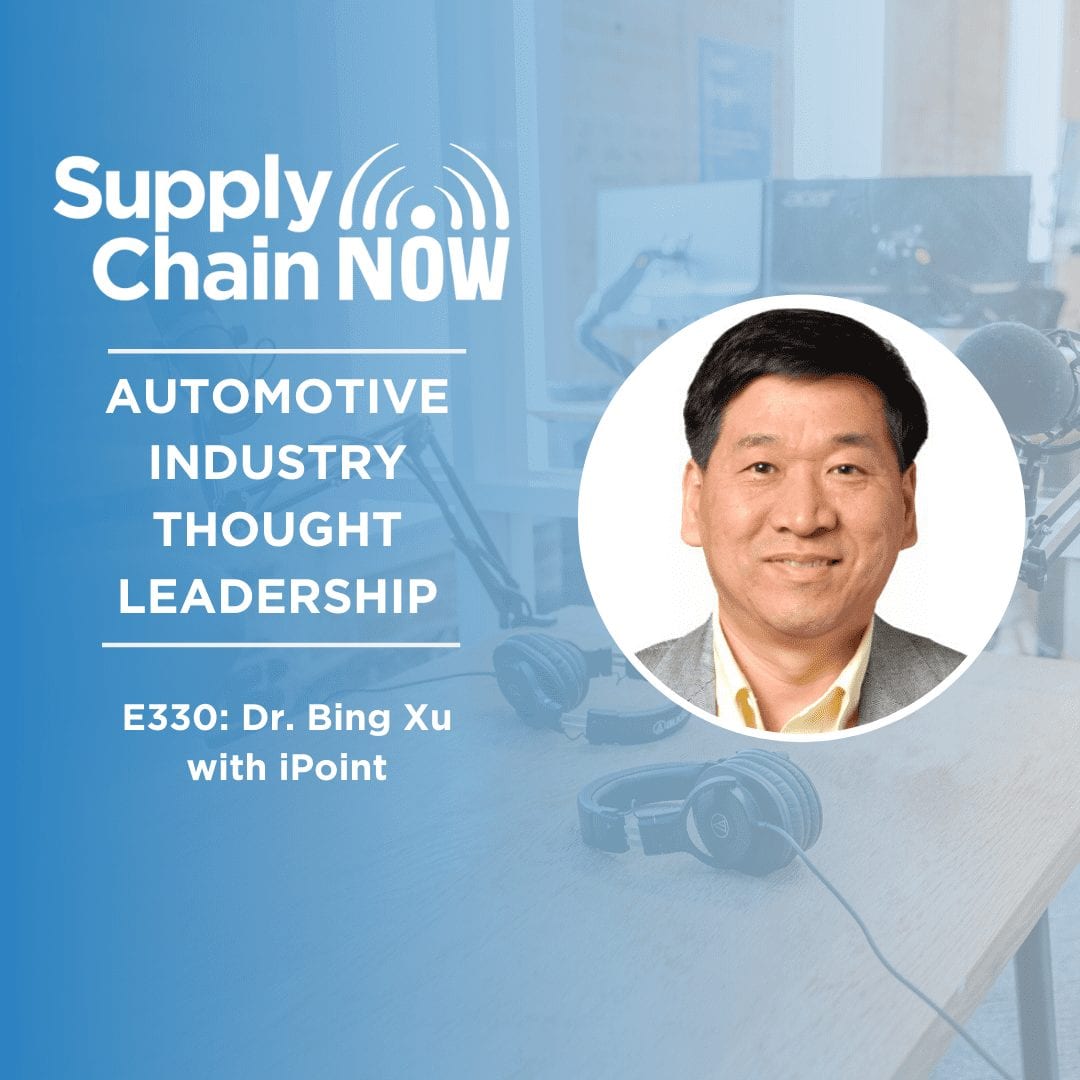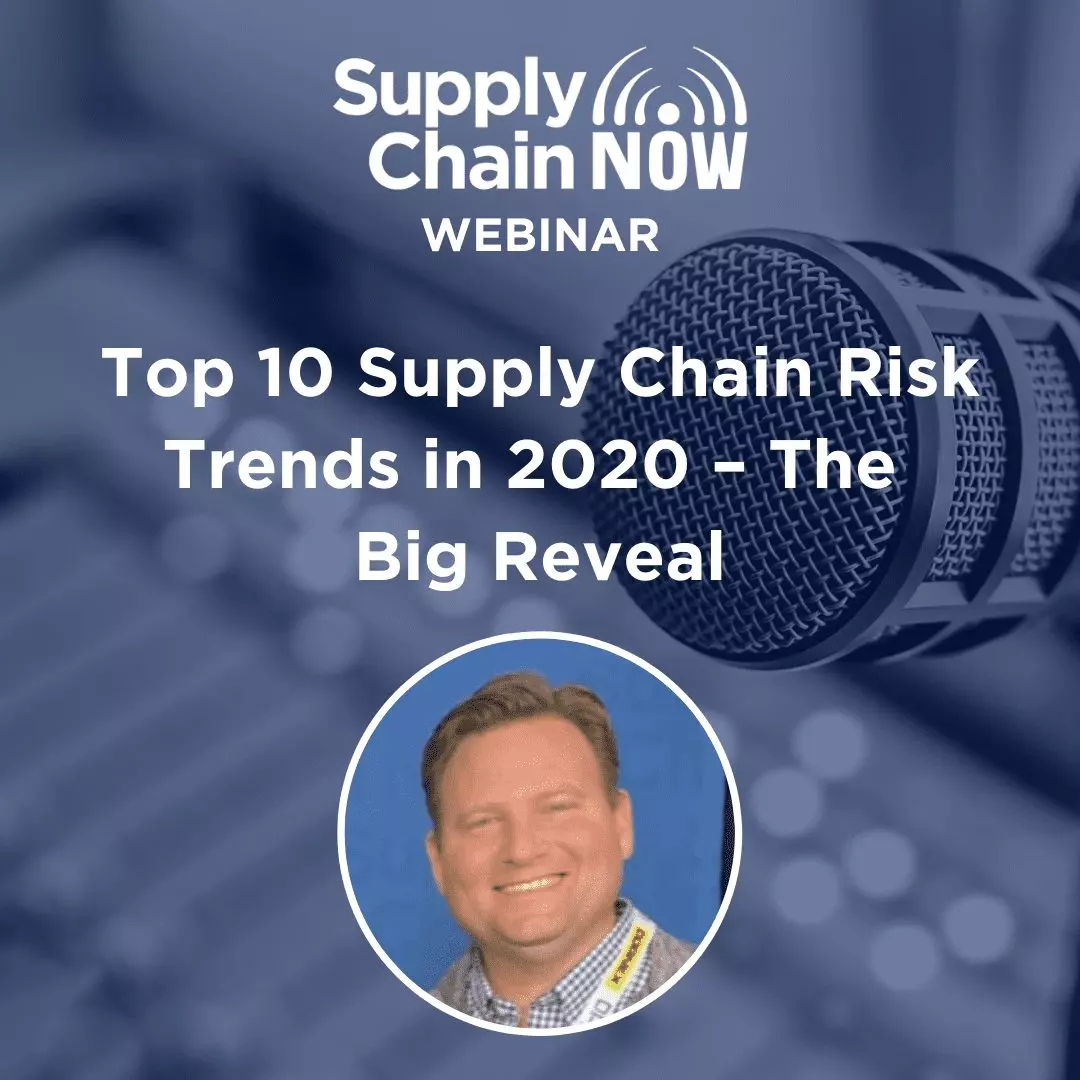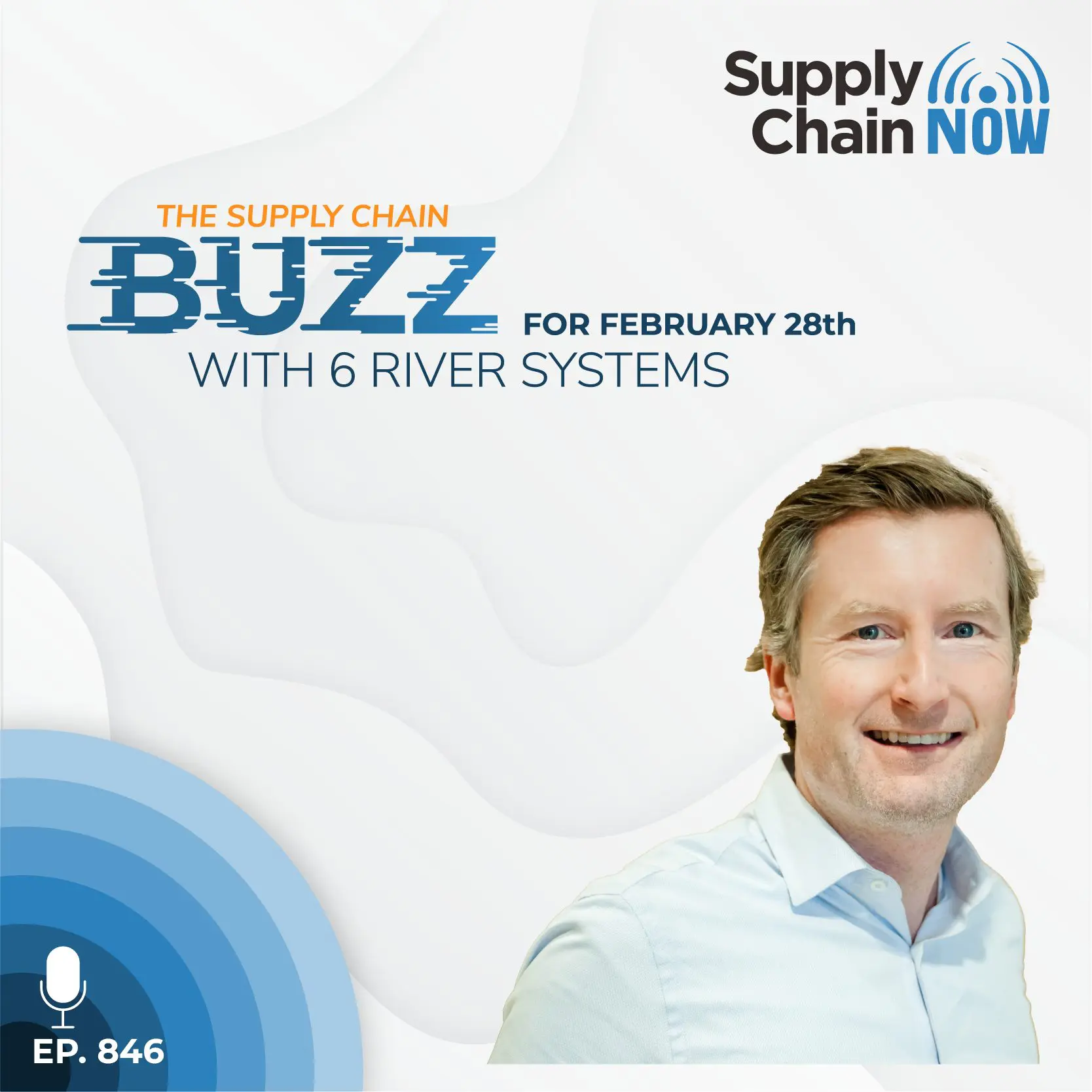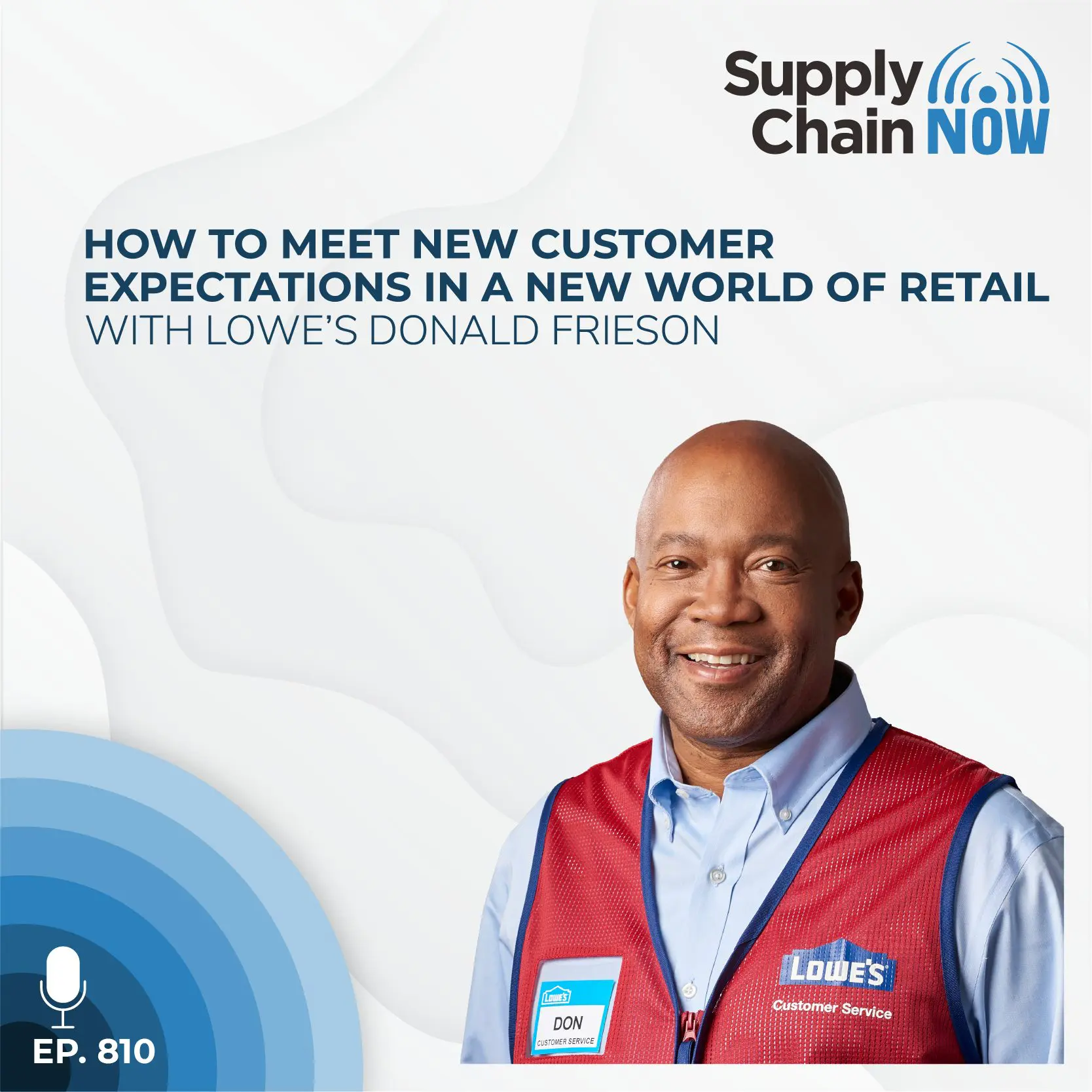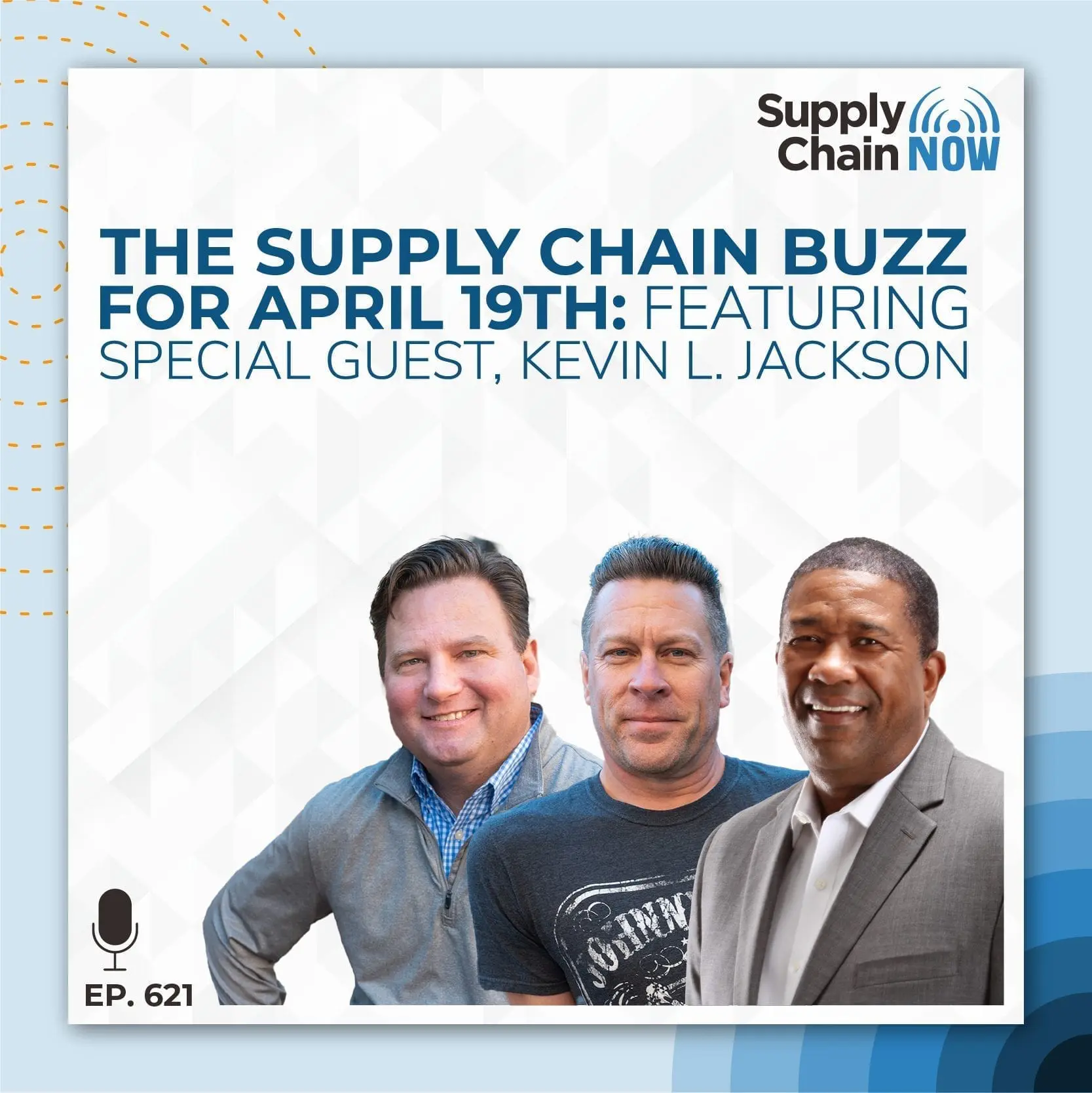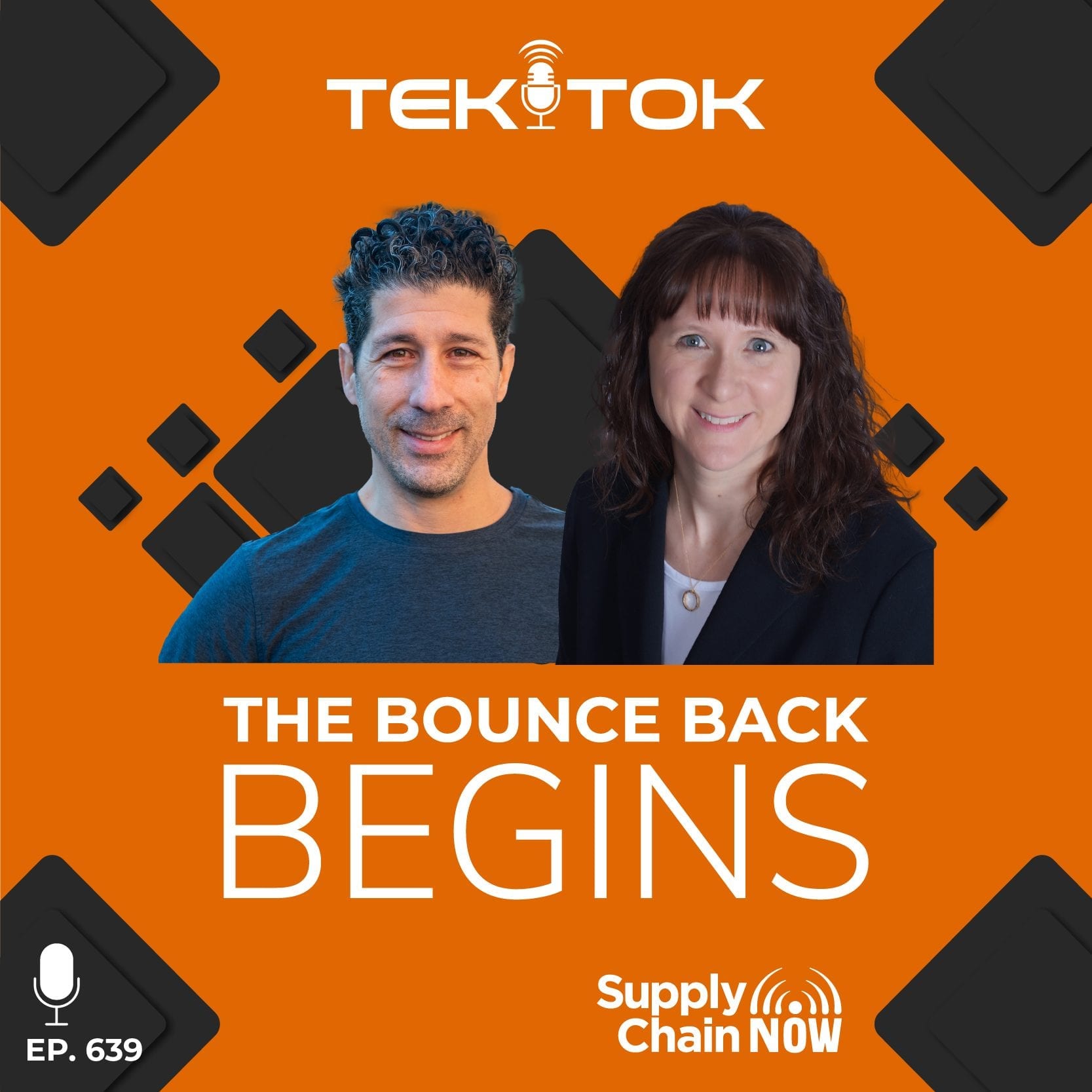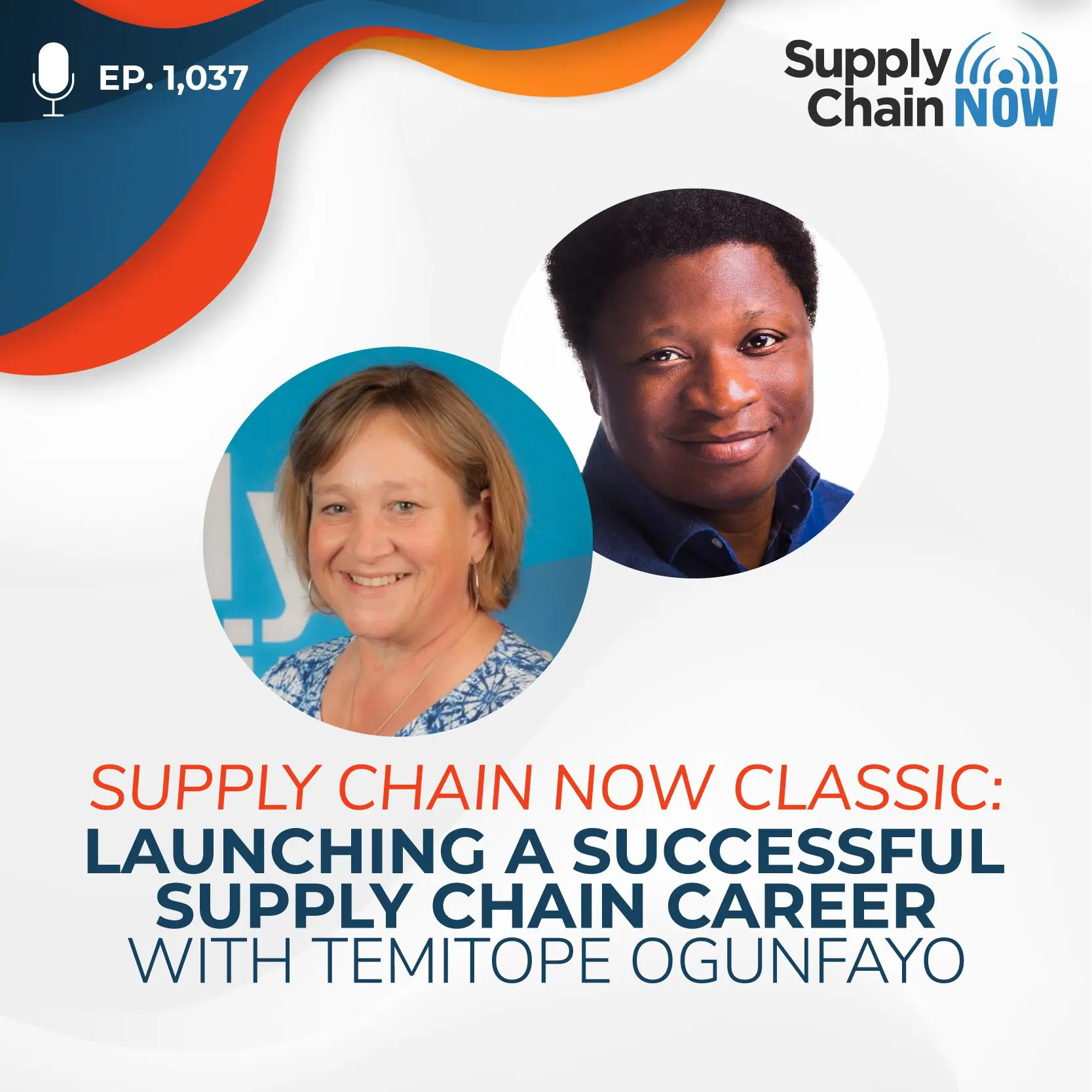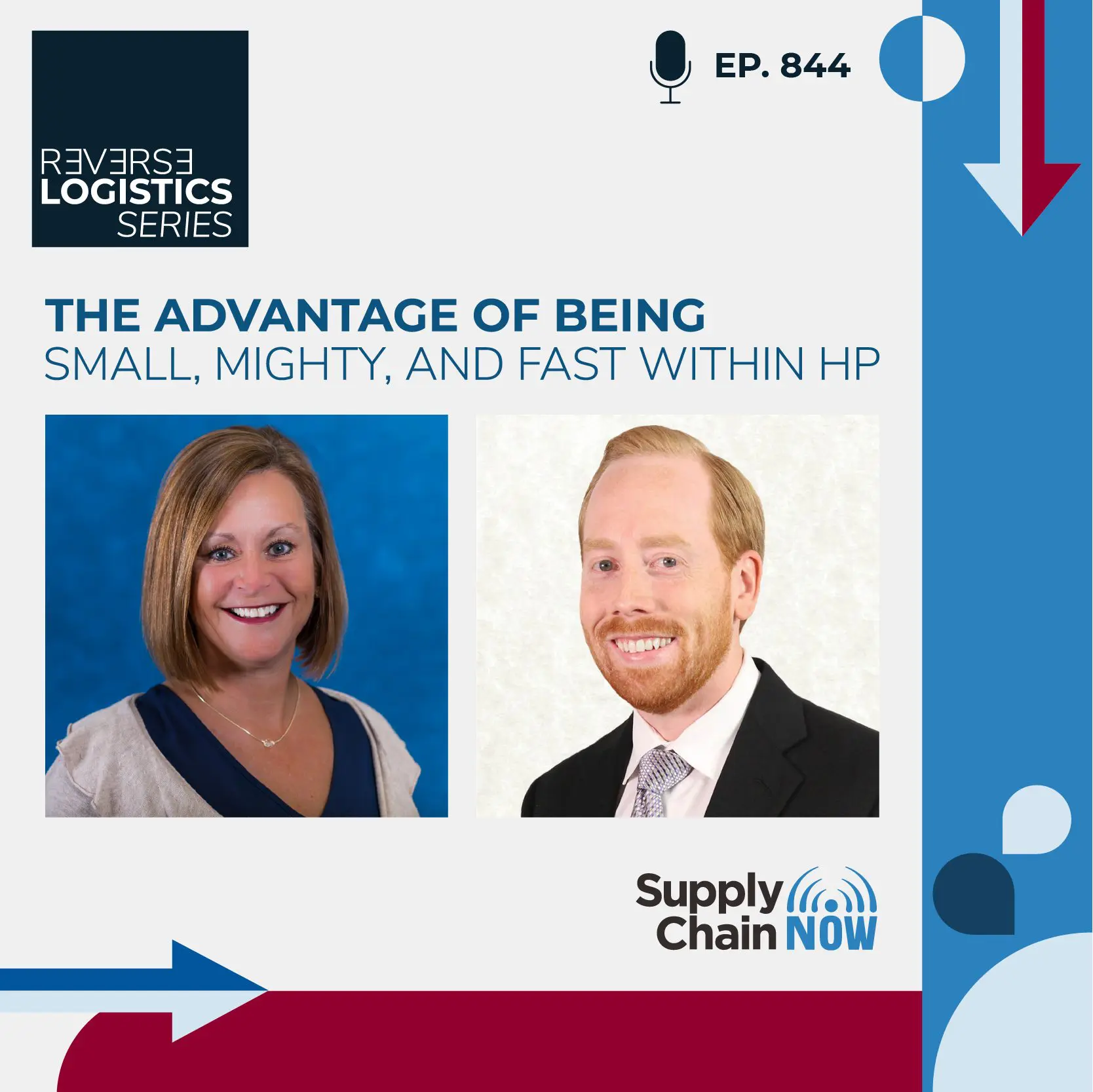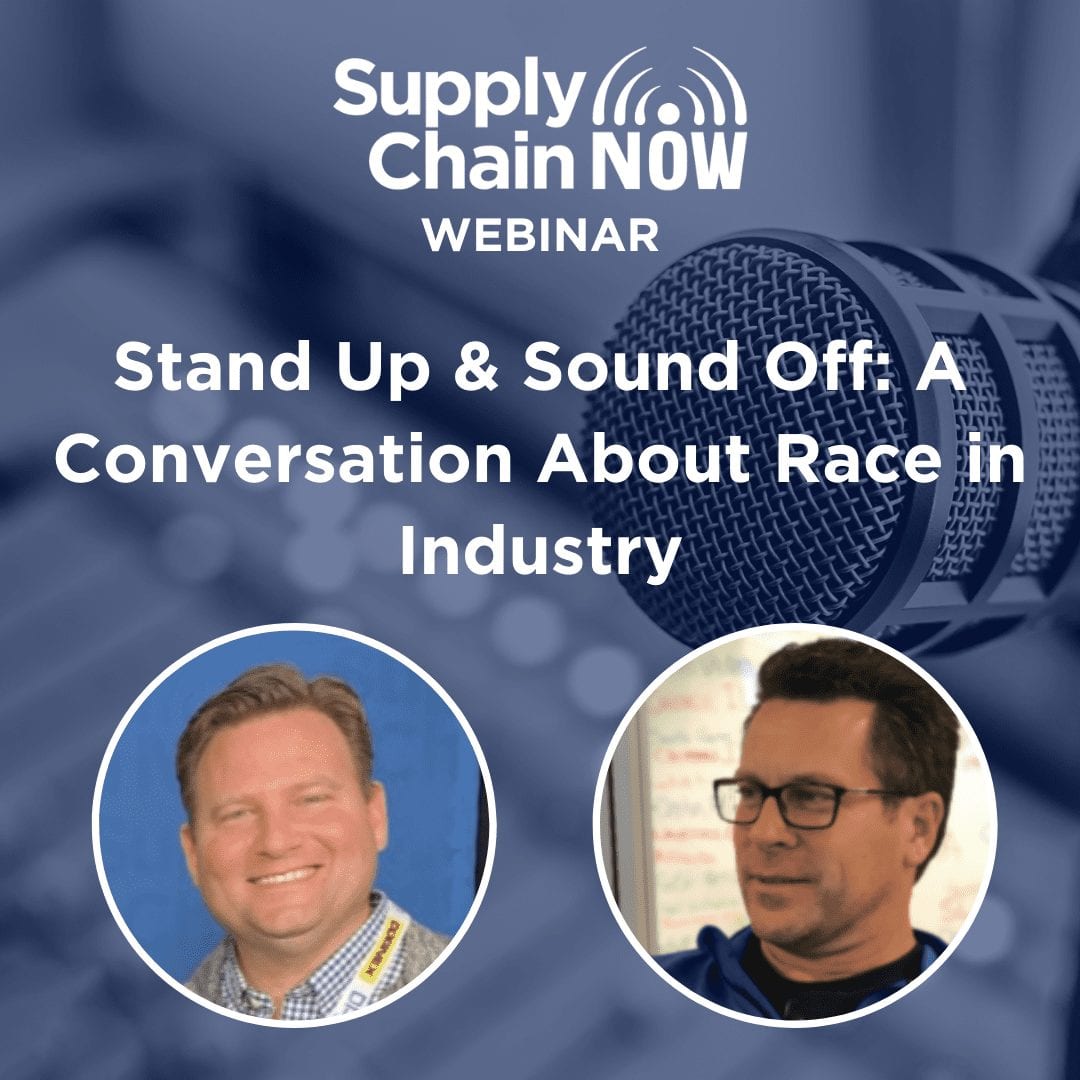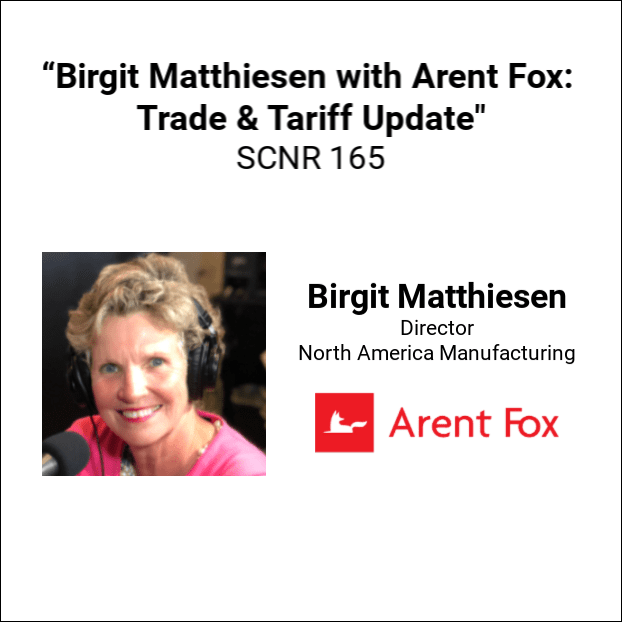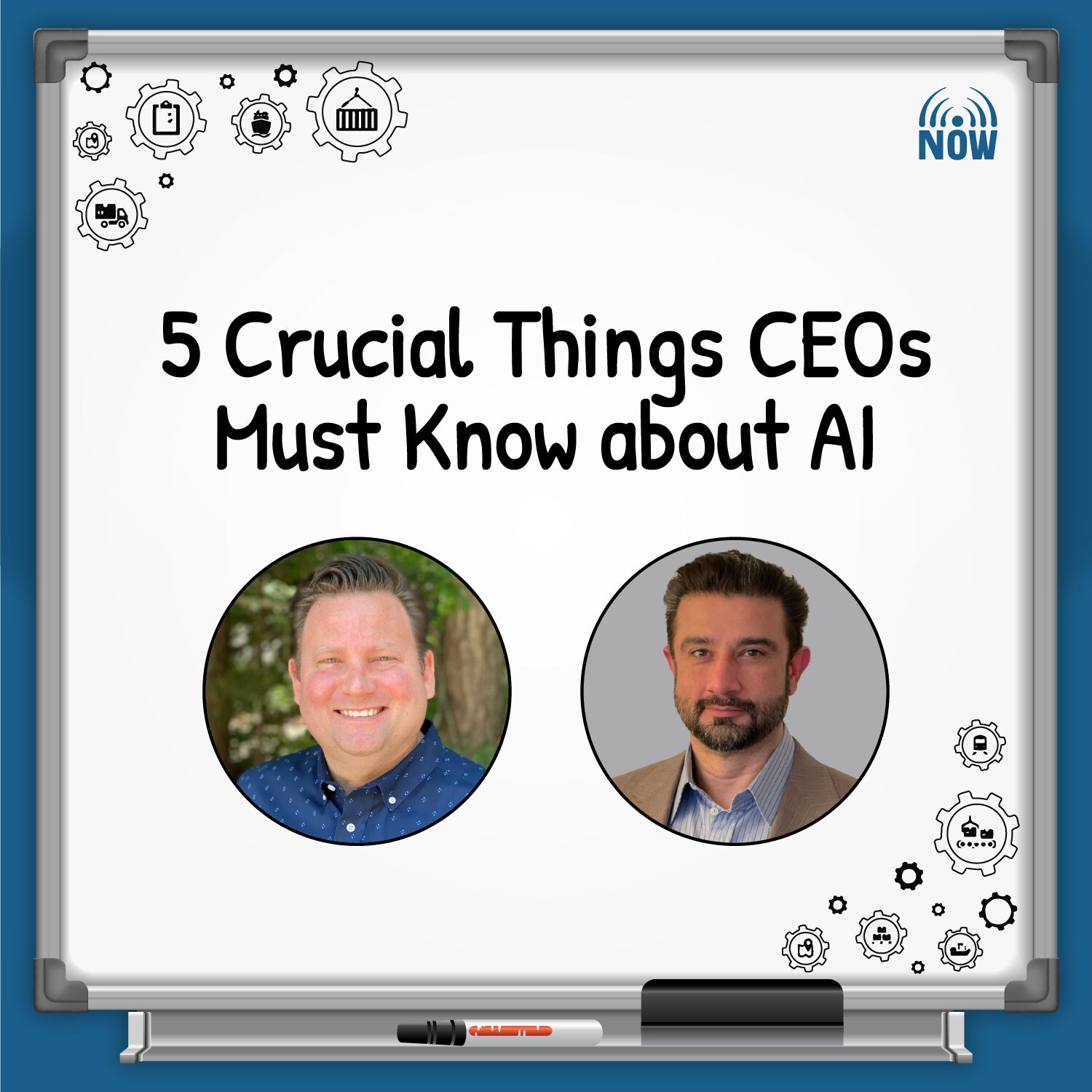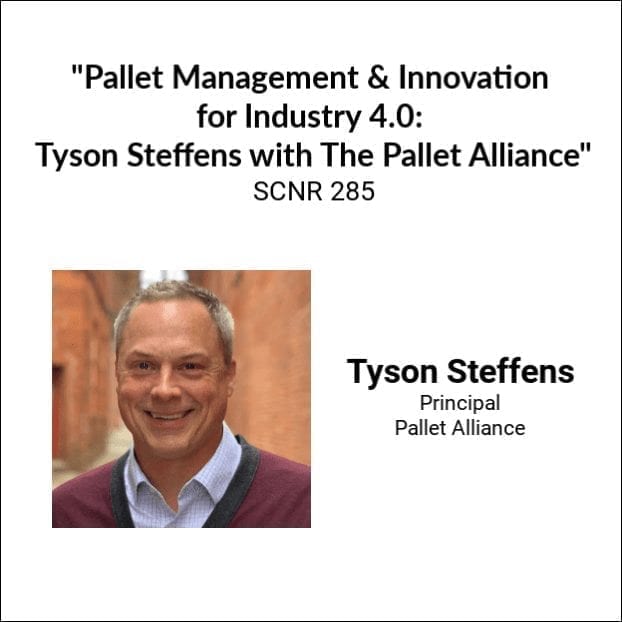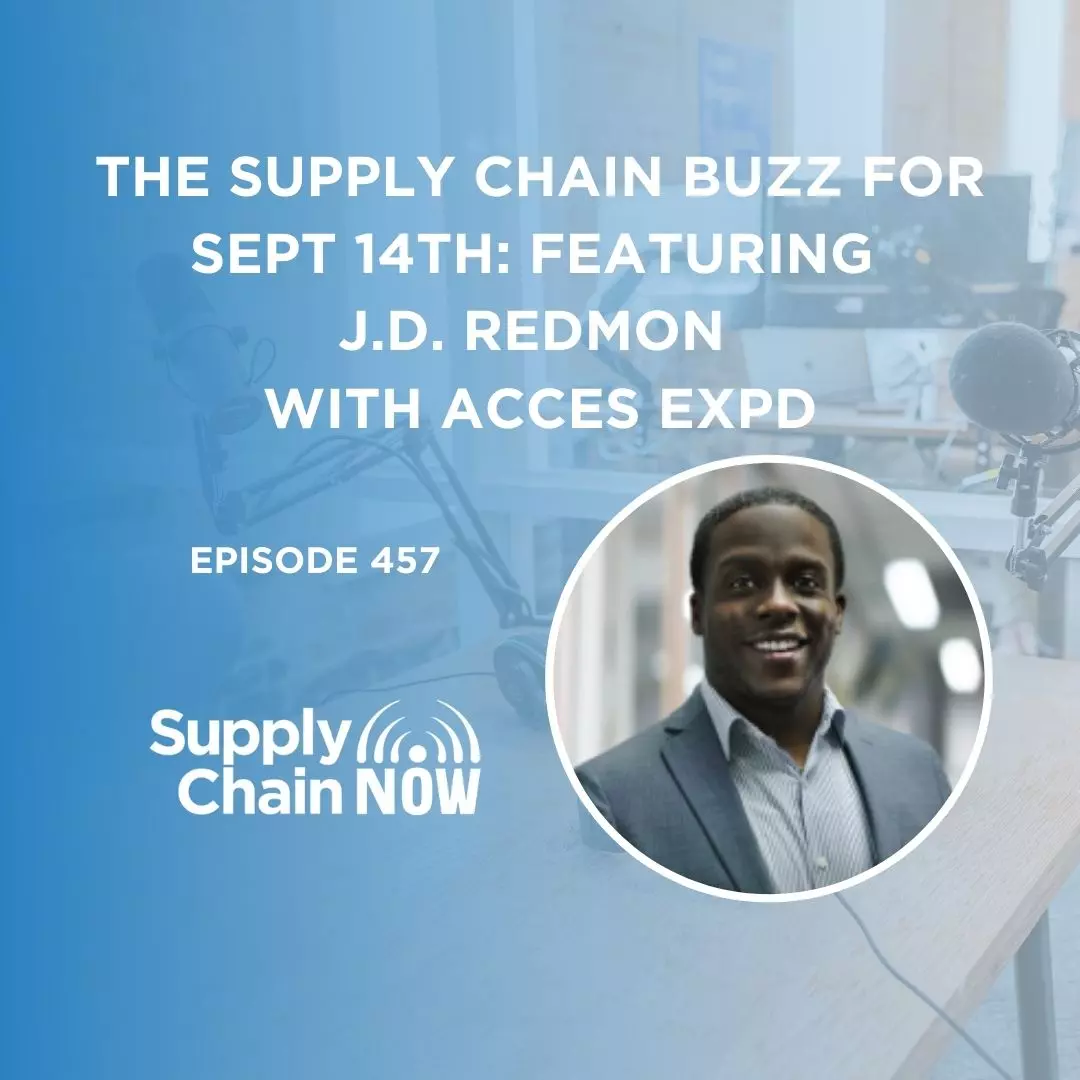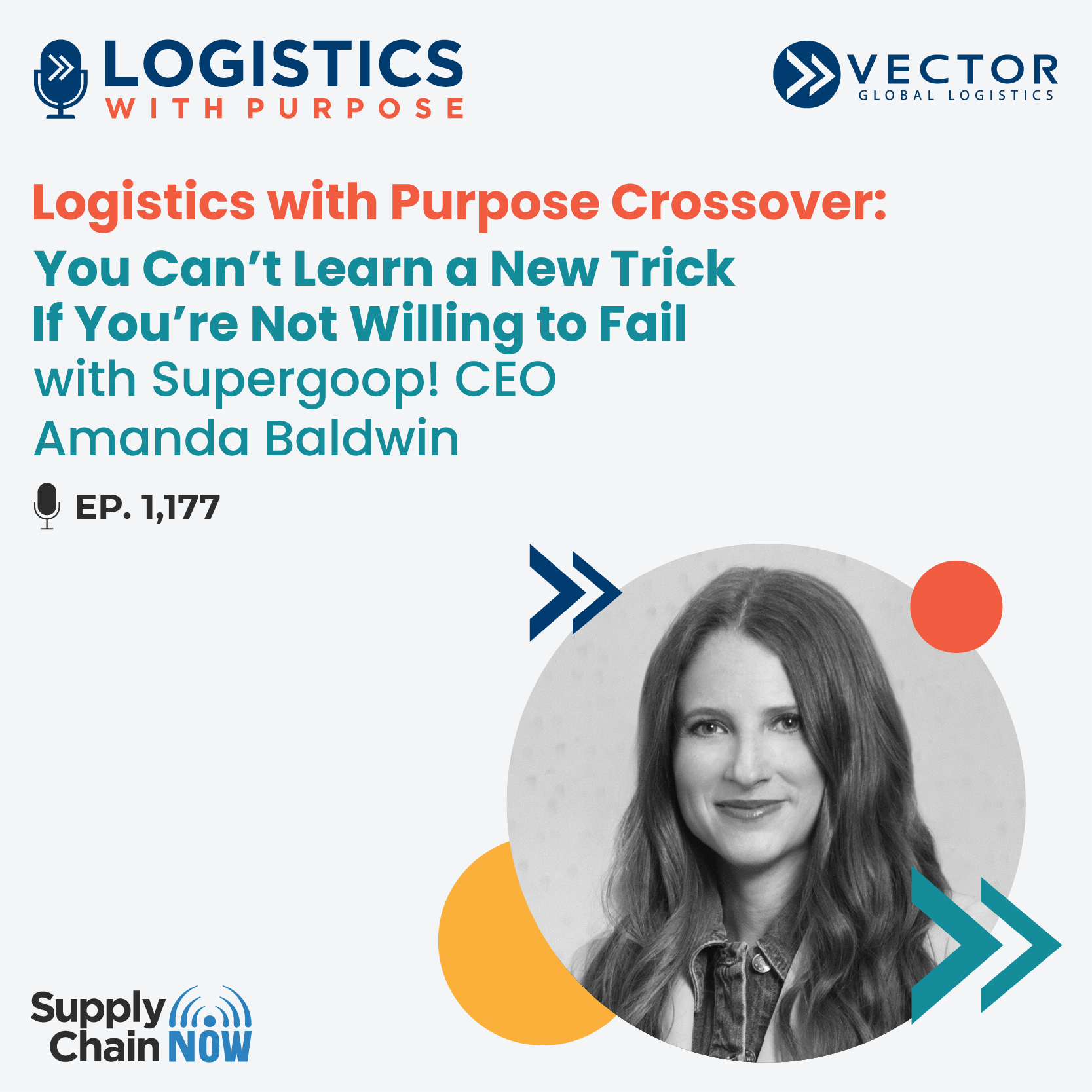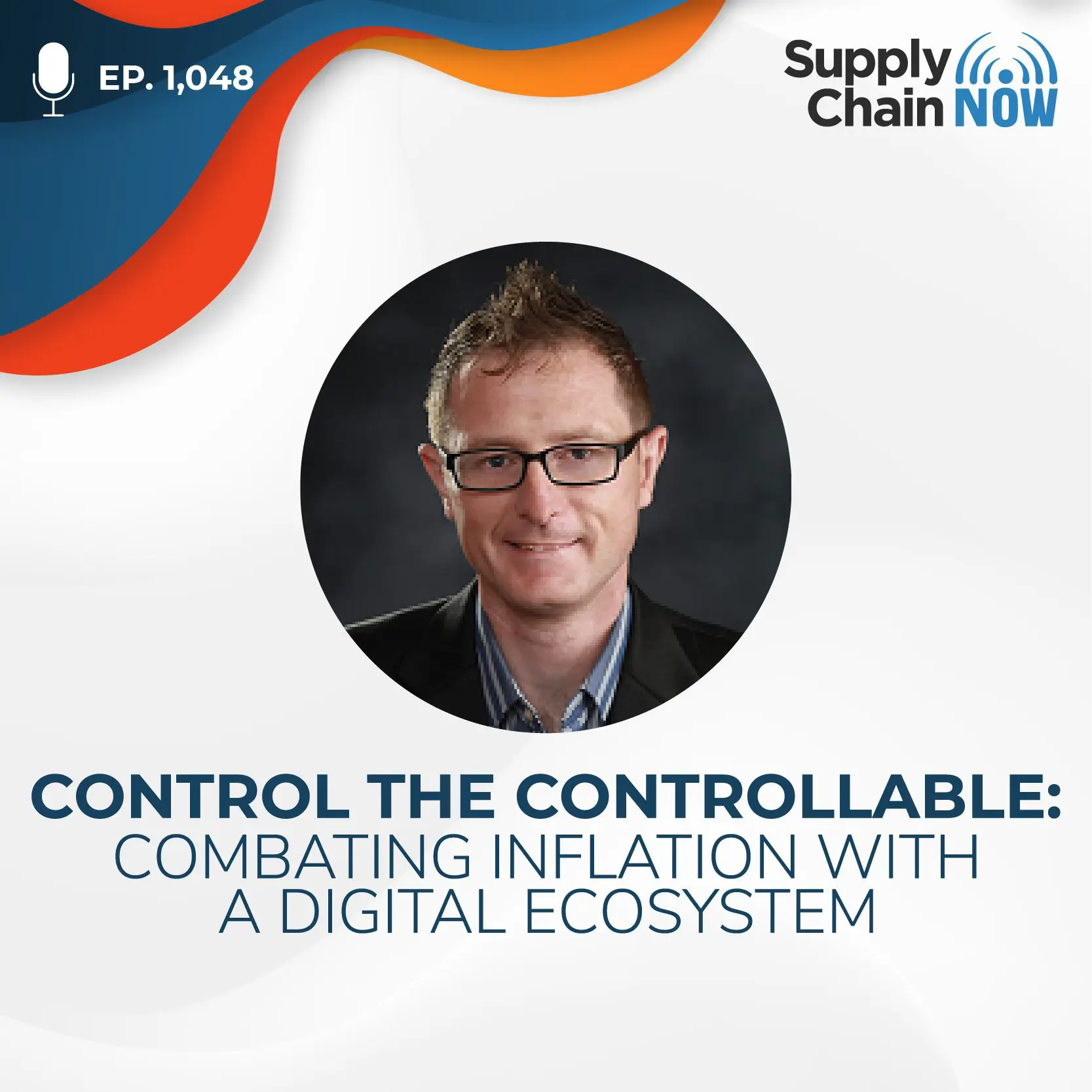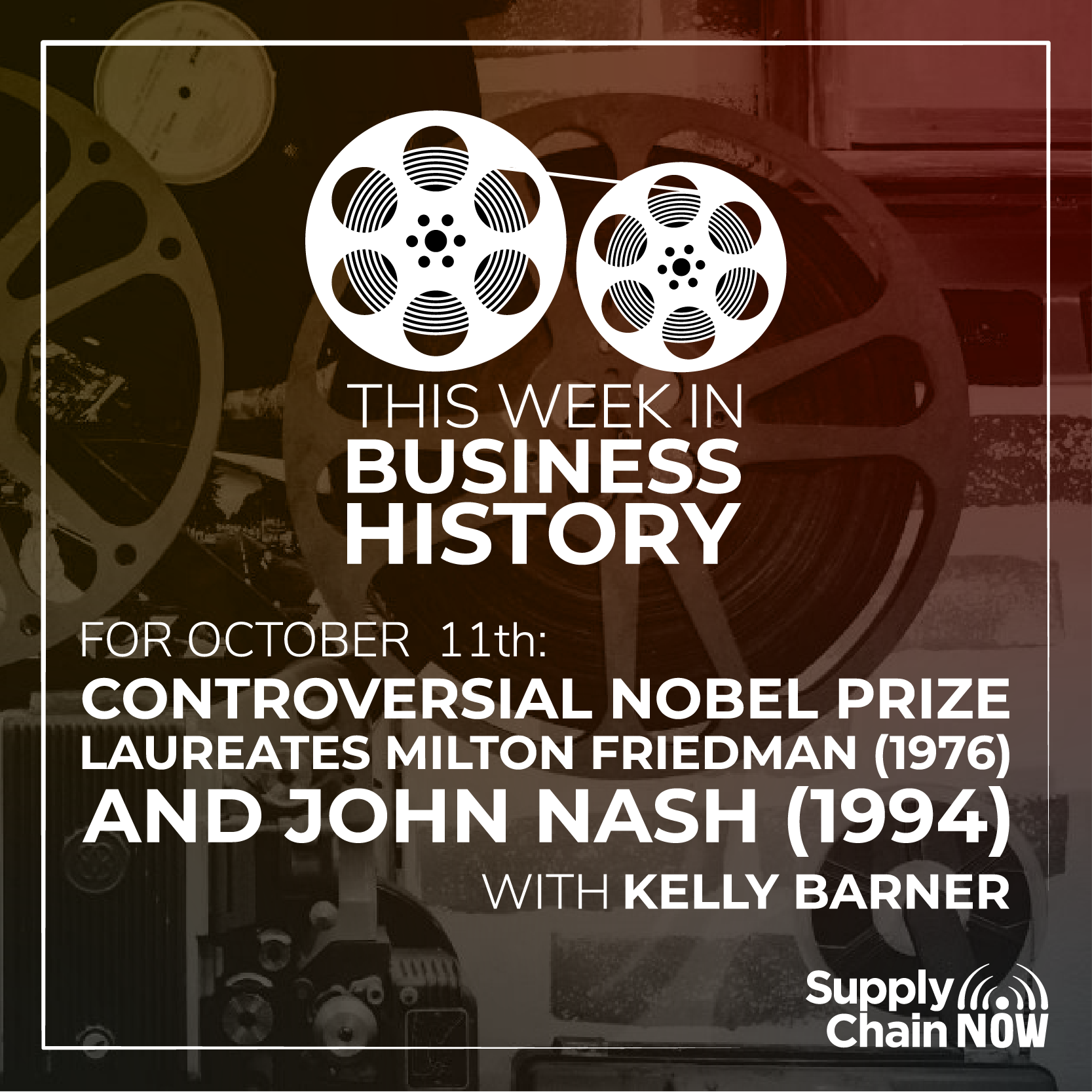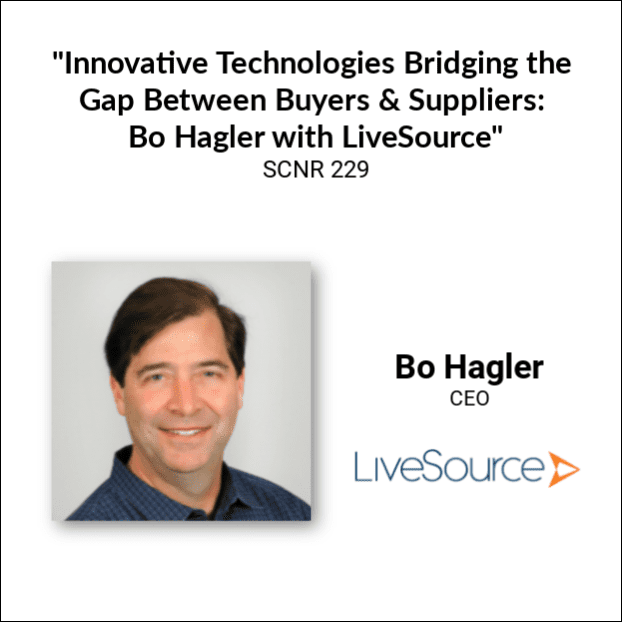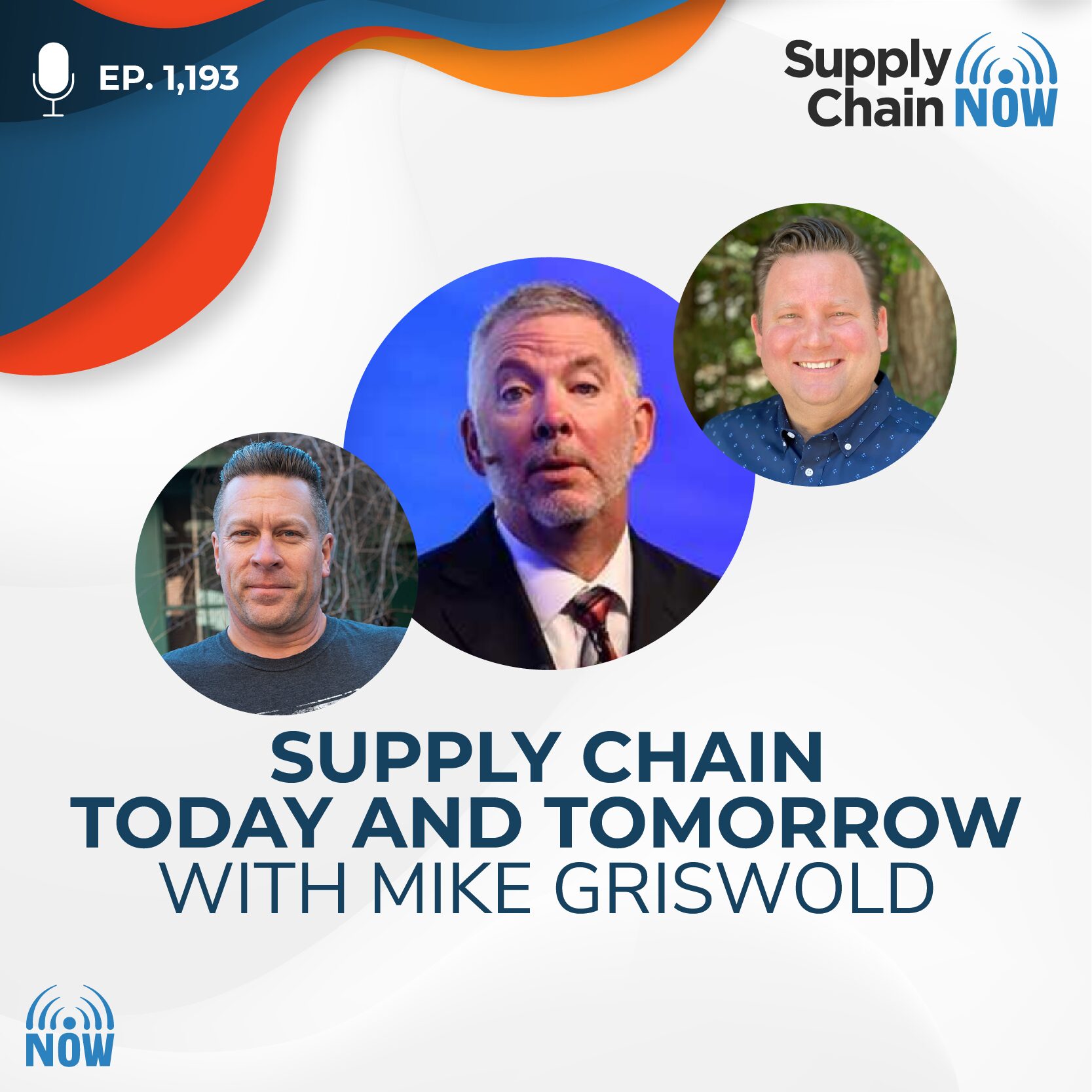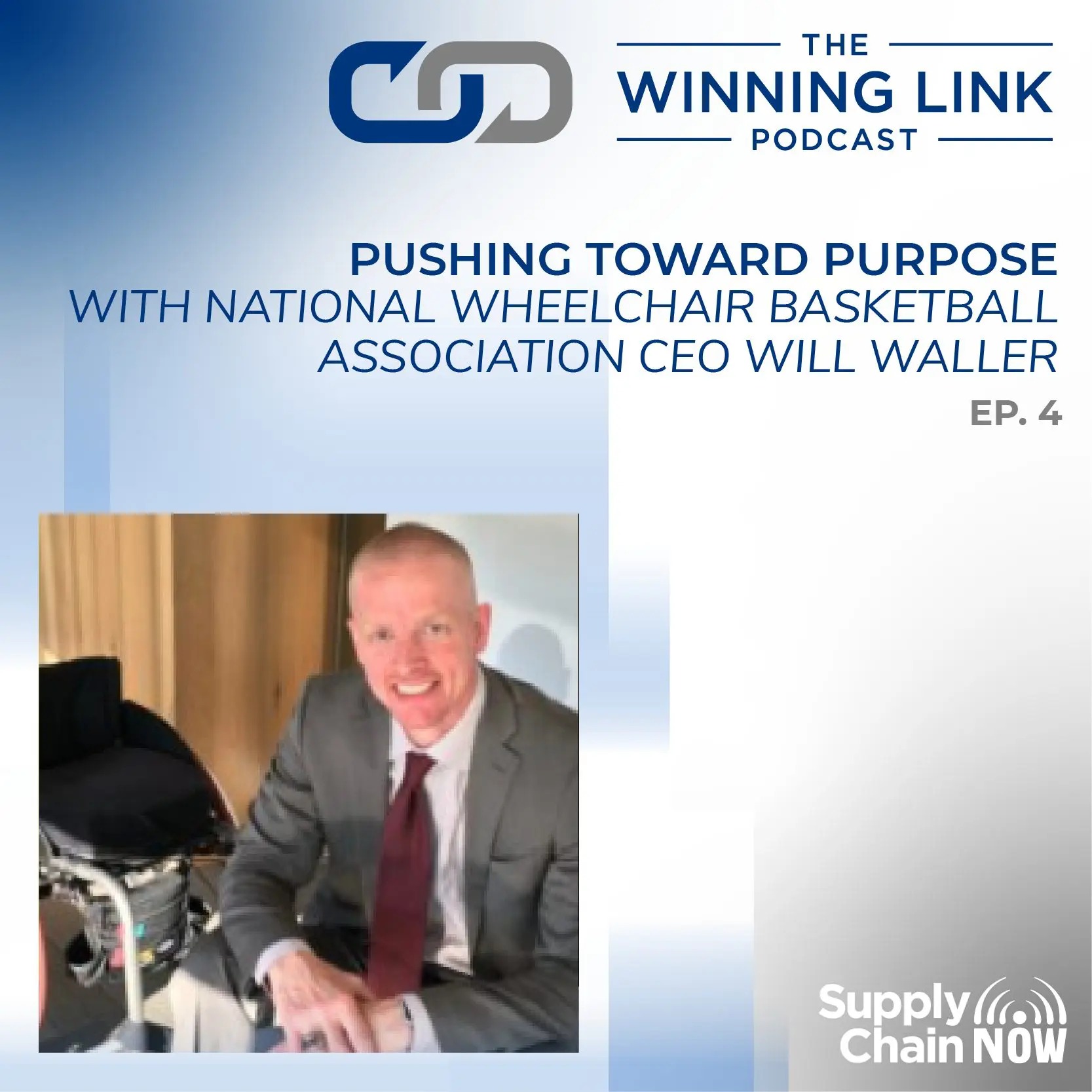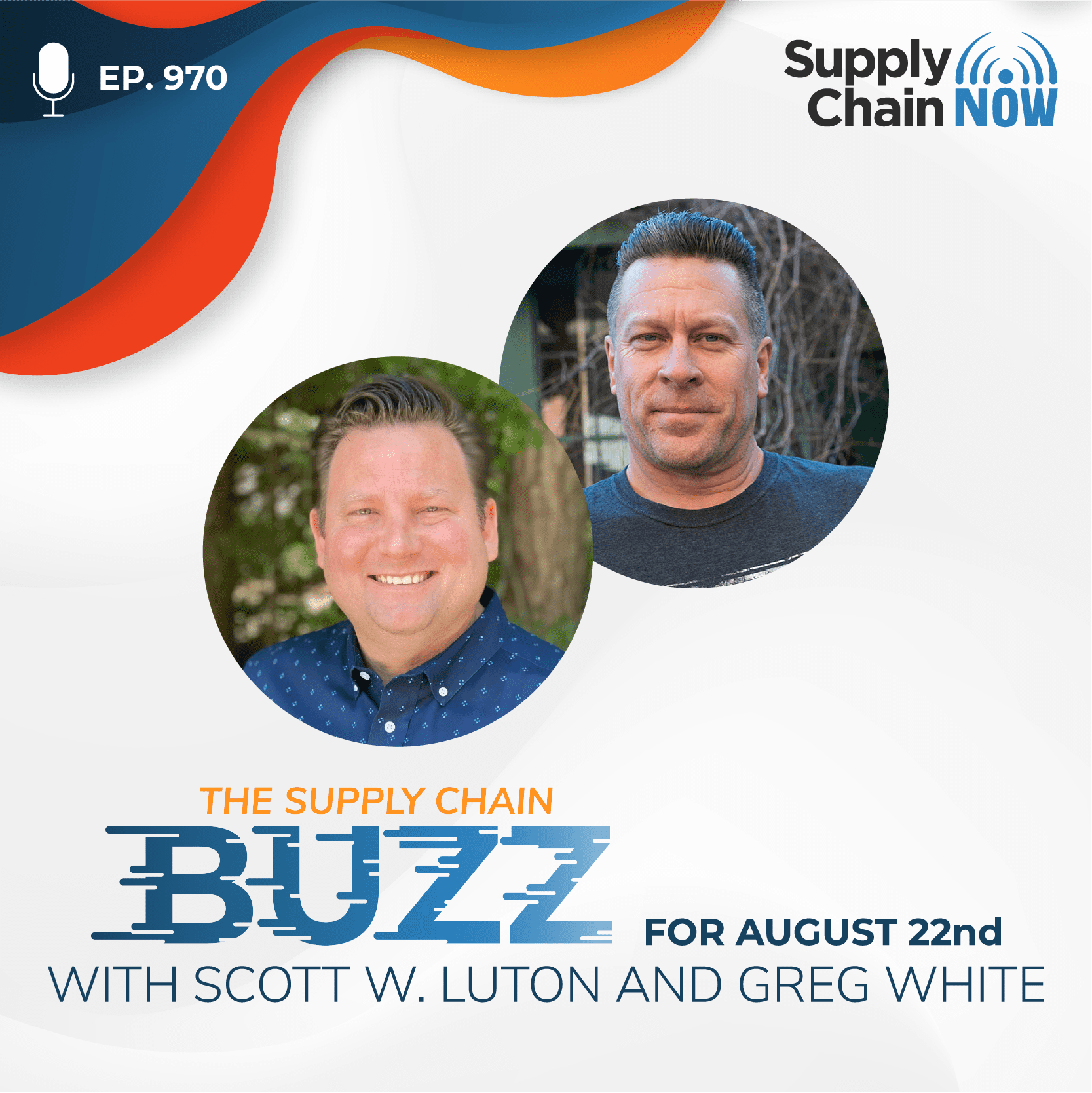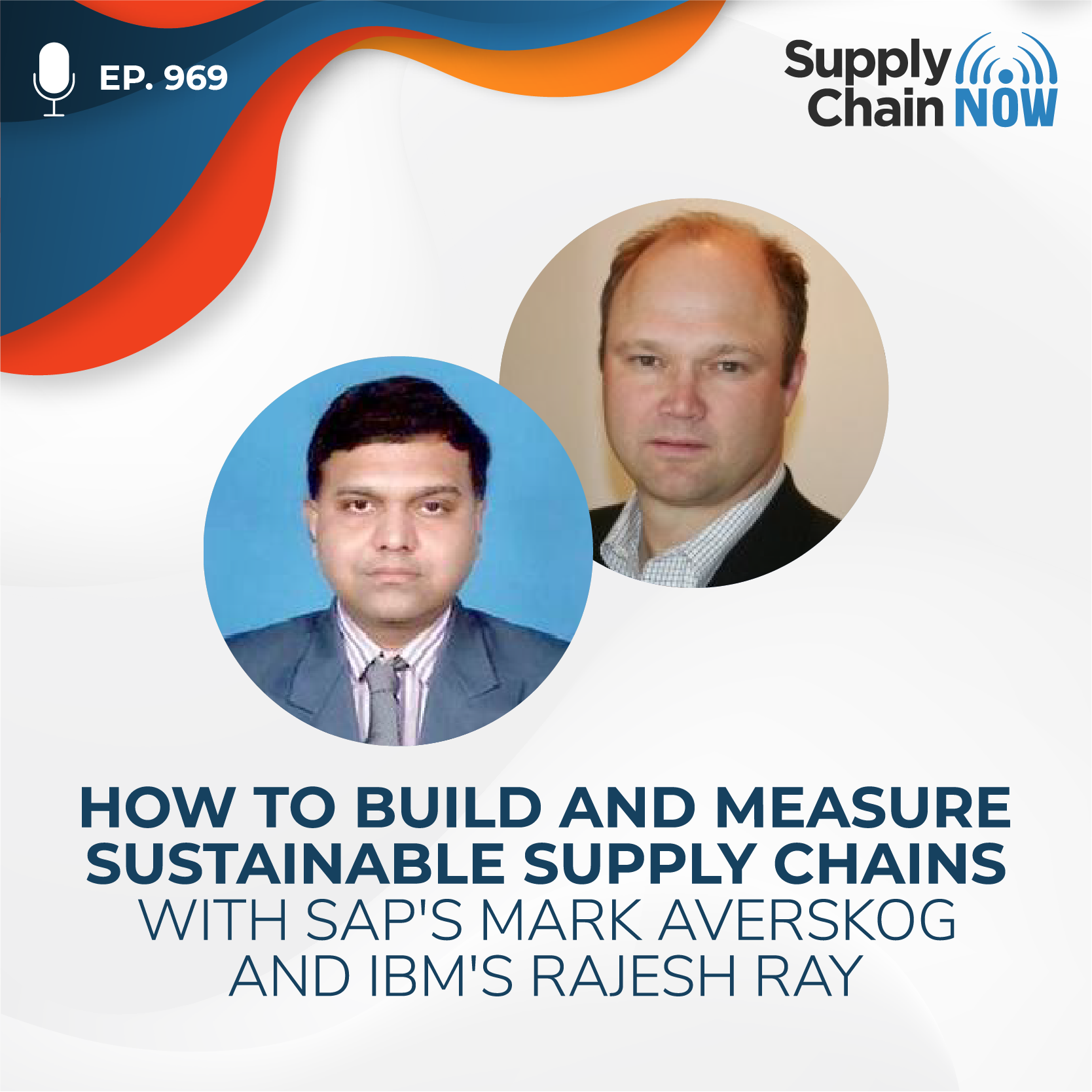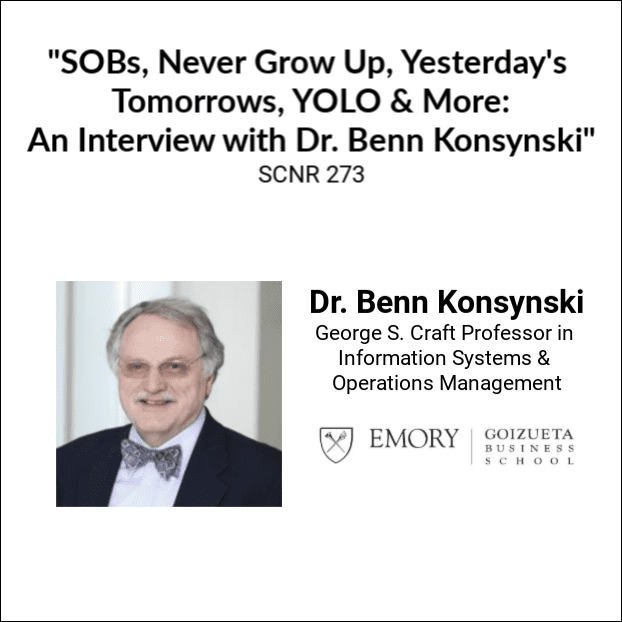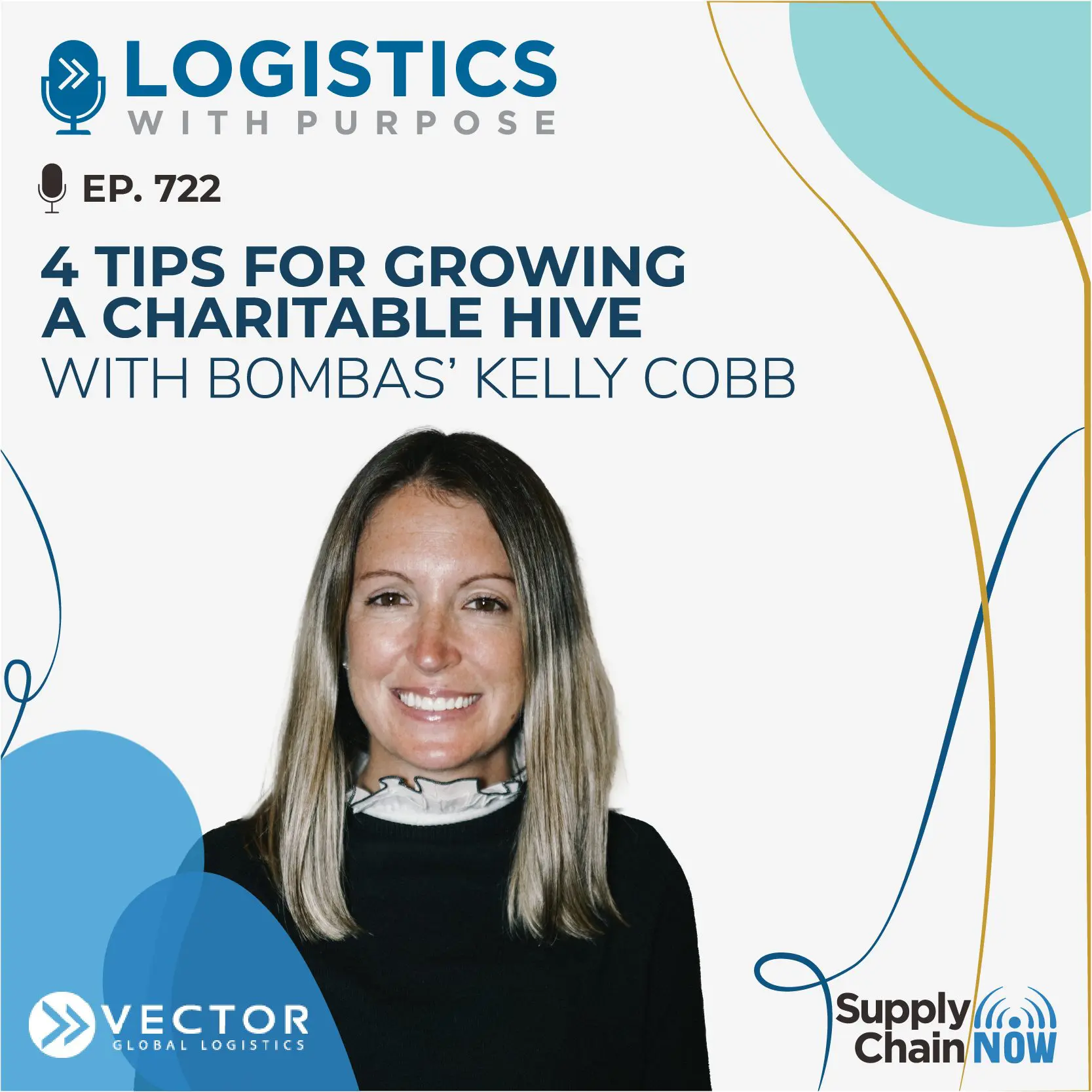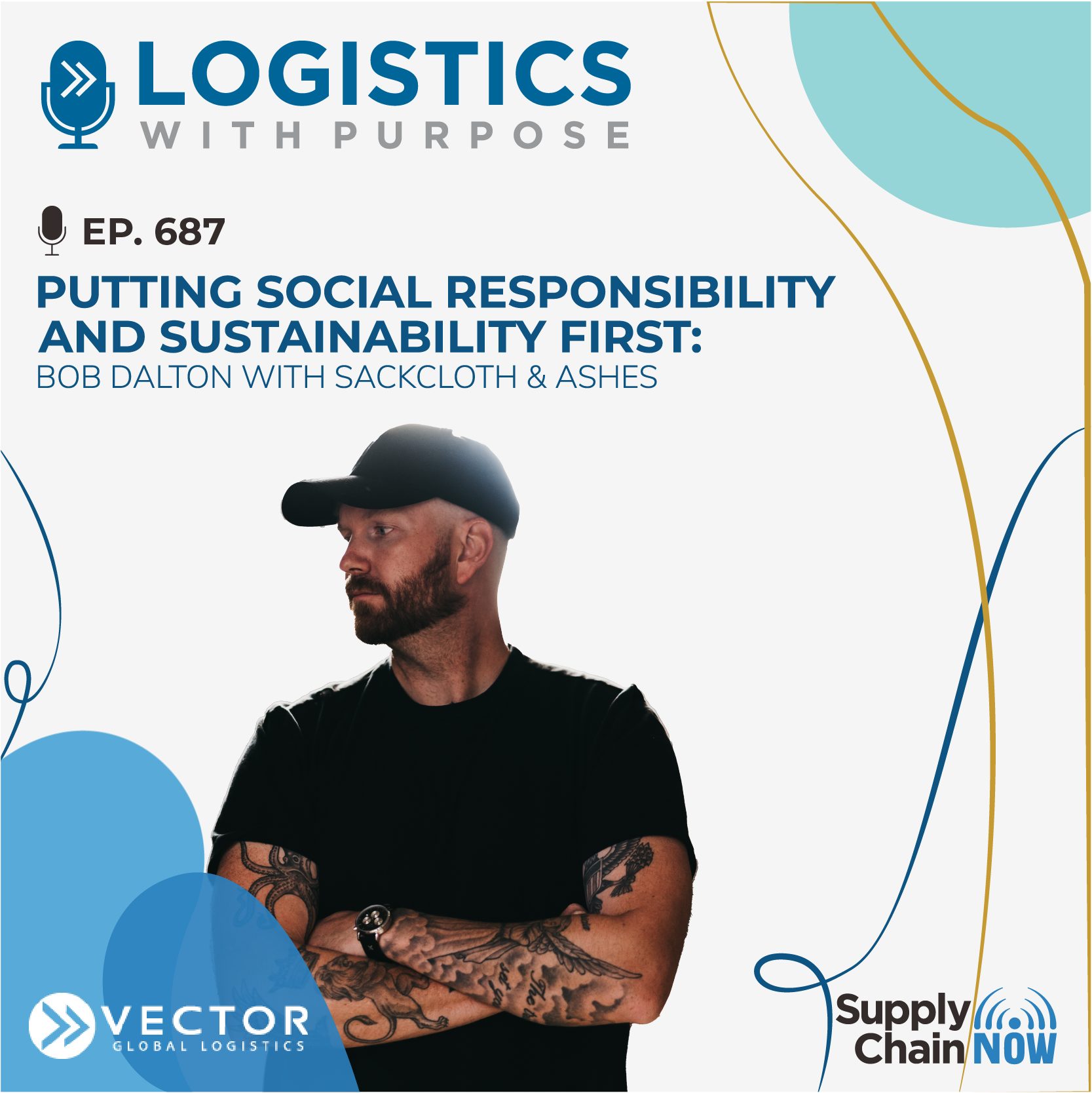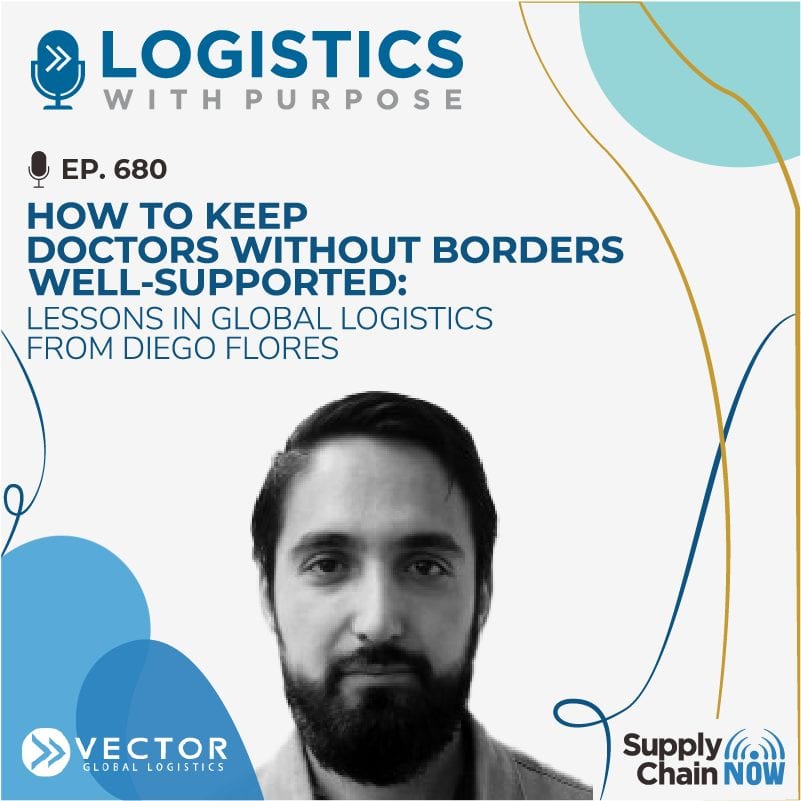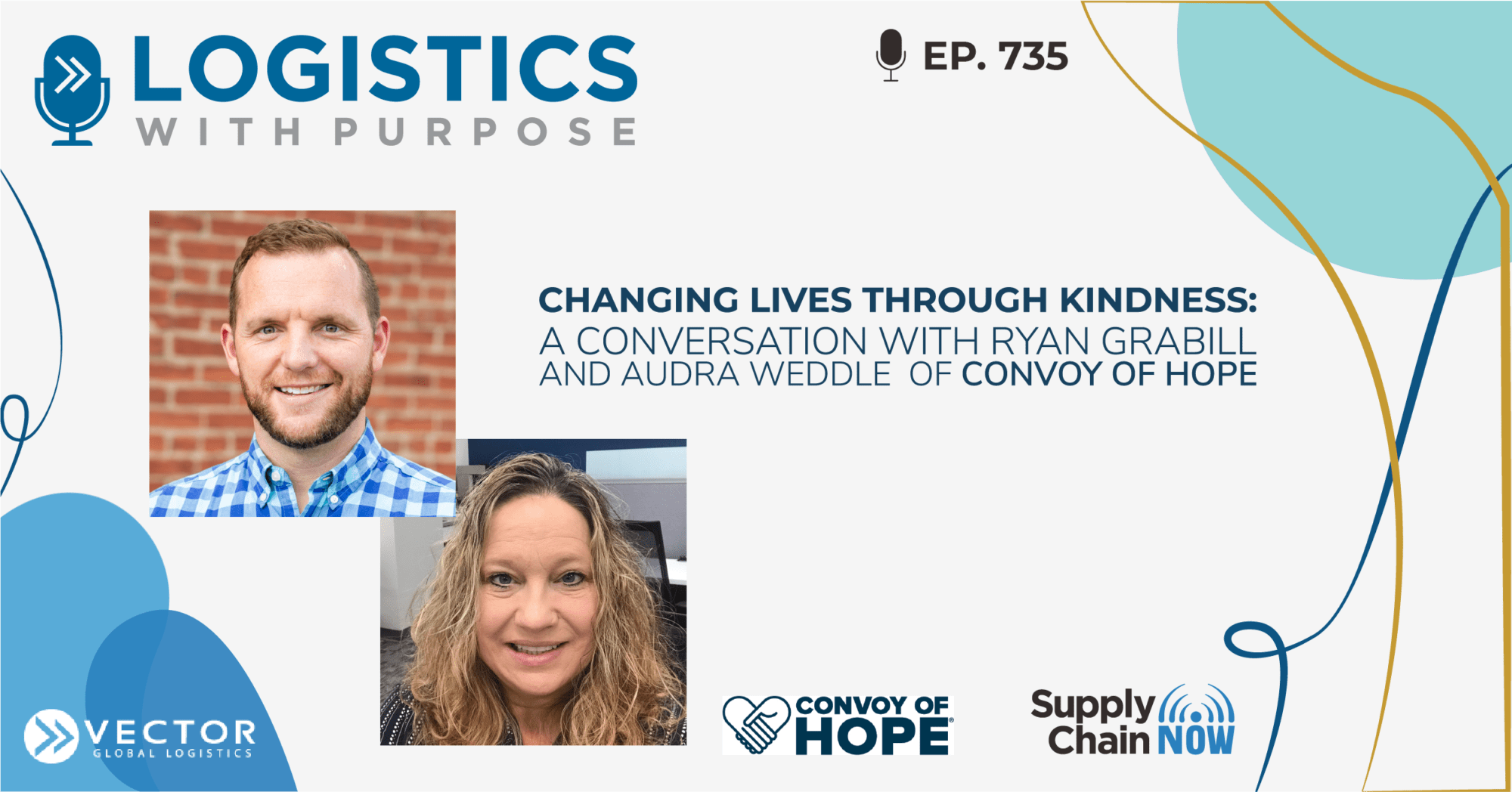
It’s an industry where, if you want the answers, you will constantly be frustrated. You have to stay in a constant state of learning how to handle things as they come.
-Ryan Grabill
Episode Summary
How does a non-profit organization working in over 95 countries have the foresight to plan for a disaster before it ever happens? In this episode, we sit down with Audra Weddle and Ryan Grabill of Convoy of Hope to talk about the logistics of disaster outreach. Join us as we discuss the effects of COVID-19 on the future of disaster relief, how collaboration between nonprofits amplifies impact, and how a single cargo ship stuck in the Suez Canal can cause a domino effect that ripples across the globe.
Episode Transcript
Intro/Outro (00:03):
Welcome to supply chain. Now the voice of global supply chain supply chain now focuses on the best in the business for our worldwide audience, the people, the technologies, the best practices, and today’s critical issues. The challenges and opportunities stay tuned to hear from those making global business happen right here on supply chain now,
Enrique Alvarez (00:32):
Good morning, and welcome back to another interesting episode of logistics with purpose. I’m Enrique Alvarez, and I’m with my cohost Kristi, how are you doing today?
Kristi Porter (00:41):
I’m good. I’m, I’m excited to talk to our guests today. We’re going to have a little bit different than we’ve done in the past where we cover more about a topic necessarily than an overall person in mission. So we’re going to try this out and see how the audience likes it. But I think this is going to be a really interesting topic for people to learn more about the behind the scenes. I think
Enrique Alvarez (01:01):
So too. It’s going to be fun. I think it’s going to be interesting and thank you very much for the heads-up because I am the one that usually drills into the personal aspects of everyone that we interview. So I’ll make sure that I do the
Kristi Porter (01:13):
Script this time we’ll will follow your lead.
Enrique Alvarez (01:17):
No, it’s an, it’s an amazing organization. I think that it’s going to be super interesting. We’re not probably, we’re not going to have enough time to cover everything that they do, and especially for the last 20 years and with the things that are happening, but anyways, let’s without further ado, do you want to introduce our guests?
Kristi Porter (01:34):
Yes. Today on the podcast, we have Ryan Grabill, who is the director of international disaster services at convoy of hope. And we have Audra Weddle, the global shipping director of convoy with hope. So we’re going to learn more about them or about the organization. And then we’re going to talk a lot about international disaster relief today on the podcast as well. So I’m excited to hear their perspectives and their experiences because they’ve been doing this for a long time. And it’s a really interesting niche in our industry that probably not a lot of people have experience with. So we’re going to get the scoop from them. I’m excited
Enrique Alvarez (02:09):
About it. Hey, Ryan, Audra. Welcome to the show. Thank you very much for giving us some of your time today, honor.
Kristi Porter (02:16):
Yes. Thank you. Yes. So we’re just going to dive right in and hear more about you guys. Before we dive into the, behind the scenes of international disaster relief, we’re going to talk to you a bit and get to get to know you a little bit more personally, in as people. So Audra, why don’t you start us off? I know you’re coming to us live today from your brand new warehouse and excited about that. So tell us a little bit more to start off with about, about you personally and your professional background. Okay. Um, I’m married for over 31 years and I have two boys that are grown and so we’re empty nesters. So we’re enjoying life right now. It’s been interesting with this move that we’re doing. It’s the first time I’ve been involved in a distribution center relocation. So, and my background has been mainly shipping outbound, and I have done some importing way.
Audra Weddle (03:08):
My husband and I lived in Germany for a few years and I reordered merchandise and brought in containers instead of shipping them. I actually imported. And then, um, we spent a couple of years in South Africa working with some missionaries and was able to help with customs clearing and different things of personal household goods. So that was a little different than what we do now, but yeah. And what did you do in Germany? He was in the military, so I worked for the exchange store there and worked for a commercial company as well. So yeah. So you’ve been around products and moving them for a very long time then? Yes. Yeah. For 28 plus years. So yeah, it’s been awhile. That’s incredible. And what did you like best about Germany and South Africa? Germany. Just the whole culture. Being able to travel freely from one country to the other was great.
Audra Weddle (04:04):
Just loved the view, you know, the countryside and different things there. And South Africa was a bit of a challenge on logistically and, um, but it was great. People were wonderful. We only lived there for two years, but made it to like 13 different countries in that two years. Yeah. Yeah. So it was quite different. Um, we lived near Johannesburg, so security and stuff was an issue there, but we were able felt safe. So we were good. Yeah. And then in my free time now I, Ryan knows this, but I officiate basketball and volleyball, so I love sports. So anything to do with sports I’m on there. So yeah, that’s a little bit about me. I love it. Yeah. And we were just talking about, uh, the Olympics wrapping up and I was glued to the screen the whole time. So I’m sure you were in on it as well. Yes, for sure. Winning the volleyball. I forgot. I don’t, [inaudible] the women’s side for the first time in history, indoor volleyball.
Ryan Grabill (05:07):
They swept at three games straight.
Kristi Porter (05:09):
Yeah, they did. It was fantastic. And women’s
Enrique Alvarez (05:12):
Olympic games in general. Yeah,
Kristi Porter (05:14):
For sure. For sure.
Enrique Alvarez (05:17):
How do you get in combo of hope?
Audra Weddle (05:19):
When my husband and I were in South Africa, we were just trying to figure out what we’re going to do when we returned, because we didn’t know if we’d go back to Africa and spend more time. One of the guys I knew from Conboy Pope just asked me if I’d be interested. And I knew about combo just from being from the Springfield area at the time that was the best move for us. So I came on in January of 2002. So I’ve been here quite a few years and, um, you know, I thought it’d be maybe a five-year commitment, but that five years has gone into almost 20. Yeah. I love what I do though. So it makes it an
Enrique Alvarez (05:55):
Amazing, amazing, so I can totally see why you actually stayed a little bit longer than your five-year plan. Yes, for sure. Ryan, what about you? Tell us a little bit more about yourself, where do you grew up, but um, how do you end up where you are
Ryan Grabill (06:10):
Now? Yeah. Well, thanks again for the opportunity to beyond today. I thought when Audra was talking that we should probably come clean with you guys and say, she said in her free time, she officiates in both of our free time we work and then what’s left over, have a little bit of extra free time then she officiates. But anyway, now, um, you never know what to expect in the disaster world, for sure. Specific to your question. I, uh, I grew up in central Pennsylvania and, um, I lived there until I went to school in Minneapolis for a few years and went back home for a little bit. And, uh, I had gone to a convoy of hope event in 1997. The only reason that’s significant necessarily is that I was pretty young at the time. And, um, convoy had just started in 94. So I didn’t realize it was really early on in the organization days, but I loved the event, loved being a part of it.
Ryan Grabill (07:04):
And convoy of hope was just something I had in the back of my mind for years after that point, I think I was, I’m trying to do the math. Math is hard guys. I was, I was, I was 13 when I was at the event. So it was just something that stuck with me through my teen years and twenties. Um, and kinda, I would check the website to see if there were openings and what may come available and ended up actually coming to the organization as a self-funded volunteer, which if you have experienced in the nonprofit world, as long as you’re just a half step above crazy, you know, most organizations will take you for free if you’re willing to come. So served on the team for a couple of years and a position became available eventually and took it. And I responded to domestic and international disasters for about eight years. And then the last three years, uh, so a total of 11 have just done international response with an occasional helping the domestic team, get some of our vehicles to the field or something like that. Wow. I have a commercial driver’s license. So you just never know the requests that will come across. That’s amazing to kind of jump in and help. So that’s yeah, that’s how I ended up becoming
Kristi Porter (08:18):
That’s amazing. And Andrew we’ve talked of course mentioned the name convoy of hope, a number of times. And, and Ryan just said, you know, they’ve been around for almost 30 years. So for anybody out there that’s not familiar with convoy of hope. Will you tell us more about the history and mission? Sure. Our founder hel Donaldson was in living in California and, um, found a convoy of hope. It was church care America, back in 94, he moved to Springfield in 96, I believe. And they changed the name to convoy of hope. We got our first tractor trailer, they used to do distribution out of, back of a pickup. So first tractor trailer, they were staying in like a 10,000 square foot warehouse. And it just, the vision just grew from there. So come 2000, we moved into the current warehouse that we’re now moving out of 300,000 square foot warehouse.
Audra Weddle (09:12):
So it went from 10,000 to 300,000 and we had at the time a handful of tractor trailers. And since then, we are up to, I want to say with including 28 foot box trucks and tractors, we have almost 30 in our fleet now. And then we have four over 40 trailers, 53 foot trailers. So it’s just grown tremendously over the years. And our mission has pretty much stayed the same about just, we want to be transparent with what we have and use where we’re most needed, but you know, um, our mission statement says we’re driving passion to feed the world. And a lot of people like that’s a big statement, but I’m seeing it over the years. It really has been a tremendous growth here. So yeah, in a nutshell, Ryan May have a little bit more to add to that in it started, how was it founded
Ryan Grabill (10:09):
The founder of the organization? His parents were actually, I don’t know if they were on a trip somewhere or just ran an errand, but his parents were in a car accident and his dad was killed instantly. And his mother was severely handicap basically, and was in the hospital for weeks and weeks and weeks. And there were four kids in the family and a family in their church. The husband and wife had a conversation and decided, Hey, let’s bring these kids in this family into our home. And they lived in a single-wide trailer and already had three or four kids of their own ended up being like 10 people there. And the response of that family and the local church, the community, the places that they had connection with really kind of set the stage for those kids to then go and found convoy of hope.
Ryan Grabill (10:57):
I think how also attributes part of the founding of it to his meeting, uh, mother Theresa, and, you know, did the whole honor to meet you conversation. And she said, young man, what are you doing to feed the poor? And he was basically like, I’m not really doing anything. And I think most people’s minds would kind of immediately jumped into, I don’t have money or influence and you know, that kind of stuff. And she said, everyone can do something. And you know, that was, that was another launching point, um, of just seeing what happened. And the organization started by delivering groceries in the back of a pickup truck in Northern California to very, very small communities, uh, in Northern California, if you’ve ever been up there before. Uh, you know, there’s a lot of, a lot of communities that, that, uh, don’t make it onto the news like LA and San Francisco and some of the larger cities. And so, um, that’s how began and turned into, like Audra said a fleet of 30 plus semis and all kinds of, uh, different initiatives and programs that the organization does.
Enrique Alvarez (12:02):
It’s unbelievable. And I’m just reading from your website, but 1.3 billion plus food and supply Sierra at 163 million people and more help. It’s just amazing how much you’re really making a difference in the world and how quickly you have grown from 94 to today. And congratulations, it must be, you must have a really, really good team. And Ryan speaking, you were about to start talking about your initiatives. Don’t tell him that. Tell us a little bit more about, I think that you have six main initiatives that you support. Tell us a little bit more
Ryan Grabill (12:34):
About that. Yeah. So of course, with any organization, you know, we’ve grown and added programs or initiatives as we call them to, to our list. I had actually called how, uh, before I came to convoy of hope maybe 15 years ago and talked with him about starting my own nonprofit. And he advised, if you can find an organization, that’s doing something you’re passionate about or willing to start, you know, another initiative, you save yourself like a decade of time of getting your name out there and all that kind of stuff. So, you know, in line with that, convoy has seen some needs that exist around the world, um, and had people joining the team that had skill sets, um, that helped us to expand. Audra mentioned that the mission statement is driving passion to feed the world, but you know, that can look very different.
Ryan Grabill (13:20):
And we know that teaching people to fish is a lot better than just providing a fish. Um, and so on the disaster relief side, we meet immediate needs and work to, you know, make sure that there’s help well after that immediate response is done. And we can get into that in a little bit. But in addition to that convoy feeds, uh, almost 400,000 kids around the world. We are training farmers. We have an agriculture program that looks pretty different depending on the setting, the country, the location, the needs, but we’ve seen, you know, five, six, 700% crop yield increases. And a lot of the communities where we’re working ultimately convoy’s goal is to work our way out of a, of a community when a community doesn’t really need any of the things that we offer. You know, we consider that success. Um, in addition to that, we have a initiative called women’s empowerment and in addition to some education pieces and, um, stuff like that, there’s a, uh, basically a business startup branch to that, uh, initiative of training women on the finance side and marketing side and that kind of stuff related to a small business.
Ryan Grabill (14:29):
Most of these women are mothers of kids and our feeding program and a large percentage of the percentage of them do not have another income earner in the household. So it’s very, very, um, important that we’re able to offer this, but just asking you questions, like what is something that people in your community have to travel 10 or 15 or 20 miles to get that product or get that service, you know, are any of these things, something that you would be able to offer in the community for maybe even a slightly higher price than what it is 20 miles away, but at least someone doesn’t have to travel. So just asking those questions and already pulling from skillsets that these women have, and then providing some seed capital, we don’t do a micro loans, micro financing. We just provide some startup capital to get the business going. And, um, the results have been pretty incredible. Um, ultimately our goal, like I said, is to, um, help generations and generations to come, uh, and not just impact one life. That’s kind of a summary of some of the main ones. Well,
Enrique Alvarez (15:29):
No, on the, on the women’s initiative, I mean, I was looking at some of them as well, and there’s very interesting story. So I’ll everyone that’s listening or looking or watching this episode, I would really encourage you to go to their website. They have amazing stories from all over the world. And my question Ryan was, how do you kind of narrow down like all those different areas around the world to provide some of the support that you’re giving them? Because I read Salvador and Kenya and Ethiopia and Honduras, it’s really, it’s really all over. It seems like,
Ryan Grabill (15:59):
You know, a lot of it is relationship and networking and just seeing where the needs are, the opportunities. Sometimes we are able to turn a disaster response into a long-term program. That would be the goal where it’s possible. And like Nepal would probably be one of the most recent examples of earthquake in 2015 in, in Nepal. And we’ve had a village that we just left within the last six months or eight months where a disaster had happened. You know, we brought in our program team provided agriculture training and some of these programs and we’re just not needed there anymore. And so that’s, that’s a great example of kind of the whole holistic approach, but we’ll be in, uh, more than 30 countries by the end of this year. And, um, yeah, I mean, it’s, it’s, uh, it’s really incredible to see it grow. Of course we have team members that, you know, that’s their focus to look at opportunities that exist out there while we also have team members trying to figure out how we’re going to pay for it as we grow, it kind of takes everyone.
Ryan Grabill (17:06):
I jokingly say sometimes the people like Audra and I were in our jobs cause we don’t like asking for money, you know, or asking for help. So we’re in the implementation side, but yeah, relying on, you know, the Lord relying on relationships and connections and, and just, just taking it one year at a time and just seeing the organization grow and expand. I think Audra was probably told early on when she started that the organization was experiencing growing pains, quote, unquote, growing pains. I was told that when I started and I just heard it last week, you know, it’s just one of those things where sometimes
Enrique Alvarez (17:42):
No growing it right, which is great, which means that you guys are continuous, continuously helping others. And, uh, again, uh, the six main initiatives for people that are listening to us, like the women’s empowerment, the agriculture community events, rural initiatives, children’s feeding. And of course we’re going to deep dive into the disaster services, but it seems like a really good business model if, if I may say so, because you not only provide the Sasser relief, but then you stay within the community until they are, everything is back. And the example you gave in Nepal and some others is amazing how you’re falling. The SASters not only to provide quick kind of a relief, but then broader, more impactful, longer term kind of support to the communities and the women and the children. So congratulations, this it’s so inspirational, inspiring to get to talk to people like you guys. So thanks again.
Ryan Grabill (18:36):
Well, it takes 400 and some people to pull it all off. So Audra and I are just to have to have that massive team, but we’ll, we’ll, we’ll pass on your, your kind words, Christie.
Enrique Alvarez (18:48):
We want to deep dive into disaster relief. I know that that was a big topic for today.
Kristi Porter (18:52):
Yes, yes. I’m excited to hear more about this. Um, whenever I was first introduced to Brian via email, I was like, oh, I think this would be a really fascinating topic for our audience just to hear about international disaster relief as, uh, a very niche topic, because I think, you know, a lot of us sort of go about our lives or our jobs. And we don’t really think about that until something happens. And unfortunately it seems like something in, you know, is always happening. And so you guys are there to take care of it. So, Ryan, I know from your standpoint, I’d just love to hear there’s a lot going on. You have to be, um, while the rest of us are just carrying out our lives, you’re preparing for the next disaster. And so you’re there when it strikes. So how do you, how do you and your team stay proactive and prepared in order to respond when a, when a disaster strikes and what kind of systems and processes keep you on track to be able to jump in there as soon as something happens?
Ryan Grabill (19:48):
Yeah, that’s a great question. You know, our, our international team is our, our international responses look very different than our domestic responses because we can’t drive anything anywhere. We don’t, we don’t have the luxury of loading up our 30 semis and just driving products somewhere. So we’re always, always trying to figure out what the best way is to, um, provide relief in those moments. Oftentimes sometimes I give the United States a hard time. I’ll be honest with you. We’re not great at international news, but the news oftentimes covers things that happen in the U S but oftentimes there are disasters where hundreds of thousands of people have been displaced or, um, some of our humanitarian projects that we’re working on, where families have been in really rough situations for years and years. So, um, sometimes people will ask me, you know, what are you guys doing nowadays?
Ryan Grabill (20:42):
You know, I haven’t heard about any disasters in the news. And, you know, I let them know that we have 10 or 15 or 20 active projects at that time. And they’re like, where, you know, so some of it is educating our own support base and our own donors and people that we connect with as to the, the, um, the plight of refugees, you know, the situation that families find themselves in after disasters. But for us, we stay in a state of ready. Some of that has to do with having product staged in our warehouse that we often use, um, even solar lanterns, water filters and that kind of stuff. In addition to the food and water, hygiene, tarps, all that, uh, all of those types of products, but just staying available at all times. It’s a very unique position, a very, uh, unique job to work in, to know that like in 48 hours I could be in another country, but we build relationships as well.
Ryan Grabill (21:38):
Uh, we want to meet as many people as possible outside of disaster time. So when someone says, Hey, I have a friend that, you know, works in this country. I think that they would be really good if something ever happened there, we just set up a zoom call. It’s not a matter of just putting them on a list. Um, so that when something happens, we call them, it’s kind of too late at that point. But thankfully, and unfortunately, I guess for those countries, we have responded to disasters and in 95 countries. So we have some relationships built already, um, you know, have connections all over the world that we rely on. And so that’s a huge part of being ready. Um, just knowing who to connect with
Kristi Porter (22:14):
And the products in your warehouse, are those, were those donated and just stored, or is that part of what the fundraising team is to be able to get you access to some of that stuff? So it is always available. Yes.
Ryan Grabill (22:25):
The both, most of it is donated some of the products like water filters. If we don’t get a donation and we get below a certain quantity, um, we will order some if we need to. So we try to, you know, like any non-profit we try to leverage donations, um, GIK donations, product donations, as much as possible to save funds for paying for program expenses that cannot be covered with food, uh, you know, or, or, or donations. So, um, yeah,
Enrique Alvarez (22:54):
Ryan, quick question regarding, oh, sorry. Christie. You had another one. Go ahead. No, just, uh, I was curious about like certain disasters seem to kind of be happening more regularly and usually kind of some seasonality to them, like maybe hurricanes and things like that. Is that kind of, part of your normal schedule? I mean, you know that this month and this month, you know, that some islands are going to be hit by a big hurricane, is it, do you see that kind of happening more often? And are you starting to forecast that kind of more accurately?
Ryan Grabill (23:21):
Well, that’s a great question. The first thing that you and the listener should know is that the Philippines is the disaster capital of the world. So outside of blizzard, they get blizzards, they get almost anything. So we have an office there, but we’re constantly having conversations about what it looks like to be prepared there, but, but yeah, the Pacific ocean has its own, you know, storm season, the Southern hemisphere, Australia, New Zealand, Vanuatu Fiji has their own timeframe similar to our Atlantic hurricane season, which runs June 1st to December 1st. You know, right now we’re in the peak of, or we’re headed into the peak of storm season for the Atlantic hurricane season. We try to prepare as much as possible, as much as technology has advanced and our phones can scan our fingers or our faces to let us into it. Uh, you just don’t know where a tornado is going to land. Exactly. And you just don’t know where exactly a hurricane is going to go. So, uh, last year, hurricane Laura and lake Charles Louisiana, they actually forecasted that storm within a few miles of where it made landfall. That is pretty atypical, especially when you’re talking the, the, the size of the Caribbean ocean and just how many places a storm could go. So we’re constantly watching, constantly trying to stay prepared as much as we can, but, you know, unsure exactly what’s going to happen. Oftentimes depending on the type of disaster,
Kristi Porter (24:48):
How big is your team?
Ryan Grabill (24:50):
Uh, our international disaster team is, is 10. Yeah. And, and we work with staff around the world as well when something happens in their country or region. So it’s not that it all relies on just us 10, but our team would represent the initial goers. Um, you know, if we traveled to a disaster when it happened and the people that are responsible for making sure we’re ready, Ryan,
Enrique Alvarez (25:12):
Would you mind sharing, like maybe a particular story that you remember that might have some special meaning to you or some, yeah. Some story that you can probably just explain to our, to our listeners and people that are watching this a little bit better or something that kind of caught your attention.
Ryan Grabill (25:30):
Oh, man, I have a, a large vault in my head of stories of, of things that we’ve experienced. You know, one of the most, if I could share just two quick stories, a special one, and just very unique to show you our, our, our, um, scope of coverage, the special one would be, and this has happened many times, but after super typhoon, high-end in 2013 in the Philippines, many, many islands were hit by that storm. Tacloban city would be the place where most people would remember that. Remember that event, it was a lot of fatalities, just a lot of loss, but off the island of, of, uh, Punai uh, in ILA ILA, we distributed some relief supplies on an island that as we were pulling up to the island with some relief supplies, people came down to the shore and, and were weeping. They mostly fishermen and very reliant on boats as there were no stores or anything like that on this island, you know, just a small, small community, but their boats had been destroyed by the storm.
Ryan Grabill (26:33):
And so occasionally someone had come by and a person from the community could get on somebody else’s boat and go into town basically. But this was the first time that they were receiving help. And it was a few days after the storm. So those experiences are, that’s just one of many, you know, that, that we get to be a part of. I, I have had the opportunity of being in a place before where no one has ever seen someone with my skin color, have no idea what the United States was, had never even heard that name before and comically for our team at home, myself and my colleague, they actually thought that we were gods. So in their, in their local folk culture, there were some gods that were light-skinned that, you know, came and came and did something years and years ago, centuries ago. And they thought that they were being revisited by those gods. So it’s really ultimately it’s a humbling experience just to be in that setting and, and not to be thought of as a God, but to get to be in a place that’s just so unique and so devastated by a disaster in that case, it was flooding. But those are just some of the situations that we find ourselves in that you kind of ask yourself, how do we get here? But of course, we’re, we’re honored to be there and provide relief. So
Enrique Alvarez (27:49):
That’s, uh, that’s amazing. And thank you very much for sharing those stories. It’s, it’s incredible that there are still places in the world where people don’t are not connected enough, right. That they might not even know where the U S is or, or it’s incredible. I, most of you have very unique, uh, feeling for sure. Audra let’s. Do you have a lot of experience, uh, distributing and shipping, and you already mentioned a little bit while you were introducing yourself, but I think you’ve shipped to over 90 countries as a, is that correct? Well, uh, with combo have hope
Audra Weddle (28:20):
We have worked in over 90 countries, shipping wise, we may have not shipped to all those. We may have purchased in country, or we could have done a transshipment that was already in the works for another country and we a disaster happens. So we would tranship it on over to that country. So there’s a couple of different areas that we find it wise not to ship because of timing. It may take too long. The disaster response may already be over with, by the time the vessel actually arrives in that port, or they need immediate assistance. So a neighboring country that maybe didn’t get effected by the disaster that happened has product for us to purchase in. And we can get over that border a lot quicker than a vessel can get around the world. So just kind of depends upon what the disaster is. If it’s going to be long-term or if it’s a short term, there’s some that just happen.
Audra Weddle (29:12):
That’s going to only be a very short time, but there are some that will be longer responses. So it makes sense to go ahead and plan ahead and arrange containers to go over. We do some air freight air freight is a little bit more costly. I say that little bit as in quotes as, and 10 times, the amount of payment actually costs. So it’s quite a bit play, but we do have some donors that will donate freight so we can get some air freight in, um, quickly that way. One of my own stories that I have was a new one for me, we actually chartered a vessel for one of our disaster responses. And that was the first time that I had to do paperwork for the full vessel and just, you know, 10 containers. So that was a new challenge that I would accept again.
Audra Weddle (30:05):
So where do you, where do you ship this vessel to that one went to BVI. So the British Virgin islands, and then we sent containers from there to surrounding islands afterwards to cause, um, you know, a lot of the supplies they need, it was building supplies or they needed equipment to help rebuild. So we sent some things like that, generators and different things. Then we sent some food water, we did portable water in the belly of the ship and, you know, just different things so that as we were doing that, another hurricane approached. So we had, uh, the captain of that vessel had to backtrack and go around the hurricane. And so it was just, um, crazy times on that one, but it was good. We learned a lot of lessons, but it went smooth for our first time ever doing that. That’s great. Yeah.
Enrique Alvarez (30:58):
So what can you tell us about like, just supply chains and logistics right now? Cause we’re talking before we went live that what’d, you guys do is already tough and really challenging. And there’s a lot of pressure because you have to deliver the goods quickly after a disaster. How has coronavirus impacted what you guys do on a daily basis and how have you been kind of managing this more efficiently?
Audra Weddle (31:22):
Uh, no. On the daily basis we have a, um, shipping schedule for our children’s feeding. So we already know how many containers are gonna do in the month of August, September. So we’re planning ahead. But now since last year we were everything kind of got put on hold for about a month and we had enough supplies in country. That’s one thing we do, we ship ahead. So our feeding program can continue on if we do have a hiccup and some kind of delay, a port or a rail congestion, which we’ve all seen this year and or ships
Ryan Grabill (31:57):
Let’s do as canal, hypothetically,
Enrique Alvarez (32:00):
That anything like that would happen, right?
Kristi Porter (32:03):
Oh yeah. Yeah. And you know, everyone asks, do you have containers on that one for instance, on the Suez canal? And it’s like, no, but those containers held up other containers to get through that we were expecting in or different things. So I mean, it’s a trickle effect on everything, but we were able to continue our feeding last year, which was a miracle in itself. We actually grew our numbers last year. It was amazing because we didn’t know if we would be able to do our 10% growth and we were able to, so, um, we’re seeing growth everywhere, but now with the transit times have gone from anywhere from 21 to 30 days as normal. Now it’s anywhere from maybe 21 days all the way up to 78 days. So we’re seeing a huge delay due to port congestion, due to rail congestion doing, you know, a lot of ports are working on very minimal staffing. So it’s longer to get vessels unloaded and containers cleared, but we’ve been able to continue on and all of our feeding programs shipping has not stopped. So we’ve been able to can do that. Whereas now we’re seeing rate increases probably among the highest rates I’ve seen in 20 years. Um, and hopefully they go back down. But right now the demand is so high that we’re seeing those rate congestion between congestion rates increasing just a different world we’re living in.
Enrique Alvarez (33:30):
I’d say it’s incredible. I’ve never, I mean, we’ve been in logistics for a while and I’ve never seen such high rates either. I mean, it seems outrageous that steamship lines just continue to increase the rates, uh, while providing the same service as well. So it’s, or even worse service with all the congestions and the transit times and all that it’s, um, it is, it is challenging. And of course you guys are doing an amazing job. It’s incredible that you were able to grow 10% despite everything else that’s going on. That speaks very, very highly of you and the rest of the logistics and supply chain team in general, that you talked a lot about the feeding in what countries are you currently, do you currently have programs that you’re feeding regularly? Uh, where do you usually ship that to?
Audra Weddle (34:13):
As far as shipping goes, um, we can, I’ll just kind of go from each region central America. We have El Salvador, Guatemala, Nicaragua, Honduras, and we have Haiti and then we are starting a new initiative. We’re doing some in Dominican Republic and we have the Philippines and Asia. There’s like other countries. We work in that we’re not shipping into Ryan. Maybe I’ll speak into those a little more too, because again, those could have started out as a disaster response, but now we’re gone into a feeding program. Ryan, you may know a few more in that area. Then we are working in Lebanon, slum, and then we work, we have our Europe office, they handled all of Europe for us. We’re just now looking at sending product there. Um, they procure in countries there, so they get a lot of their food donated there in country or they purchase. But we are looking at, um, starting to ship there some to probably in 20 22, 23. And then we go to South Africa, Kenya, Burkina Faso. To-go I know I’m missing, summarizes all over the world basically.
Audra Weddle (35:26):
And we’ve got growth planned, um, a lot in Africa, probably in the next, I would say two to five years, and then we have more growth planned in central America, more south America. So we’re seeing a lot of growth, a lot of need out there. And people are recognizing convoy of hope is more as a, um, a tool now to be able to use, to be able to, you know, request, um, feeding in there, um, areas. So it’s a lot of planning that our leadership has to look into. And how big is your team Audra to, oh my gosh.
Audra Weddle (36:06):
The international shipping. Yeah. It was just me until this year. Um, we were able to hire on another person, so yeah. That’s why Ryan says in our free time between three and 4:00 AM. Yeah, yeah, yeah. Pretty much. That’s incredible. Well, let’s bring it back. Um, domestic for just a second to Brian, I noticed you guys are part of the national voluntary organizations active in disaster, quite an acronym. So tell us about this, uh, organization. And I thought it was really interesting because, um, the collaboration and the partnerships you guys talked about and just, I’m curious as someone who’s given to international and domestic disaster response, how that benefits both the victims receiving help and the, those of us that are giving to disasters and want to see, um, want to see everybody working together and, and people getting help.
Ryan Grabill (37:01):
Yeah, for sure. Um, national Volvo ad or, uh, is, is the acronym we use, uh, the members lovingly call it. That is a, is a group of, I don’t know how many organizations are a part of it. It’s been around for a while. Um, started out small of course, um, some organizations that have been added to the list, even just in the past couple of years, uh, have seen pretty significant growth, uh, groups like team Rubicon. You may be familiar with, they do a cleanup work on homes, but I would say that the, the benefit of being a national though add member and the benefit of working with other organizations, it really all comes back to relationship again, when you know what another organization does. Um, you know, for instance, Samaritan’s purse, um, has chainsaw team and they’ll bring in crews that have, uh, harnesses and the whole bit, our organization does chainsaw work, but we don’t send volunteers and staff members up 30 feet into a tree that needs to be brought down with harnesses and the whole bed.
Ryan Grabill (38:03):
That’s something that’s kind of outside of our scope. Uh, we’ll, we’ll cut smaller trees and limbs on the ground. So we can refer a homeowner, uh, to another organization that we know has the capacity to do something like that. So national VOD is a network that helps to increase those opportunities, to know that, Hey, this organization is over on this end of town offering this and this organization would probably be better suited for the needs that a certain family has. Now, even though those are all organizations based in the United States, there is some interfacing that happens on international disasters with those groups as well. Most most of those organizations have separate departments that do the international work versus domestic, but either way, the relationship benefits are there to just know who’s there. Sometimes, you know, you guys probably like getting into the nitty gritty a bit on your podcast, specifics for your listeners, but sometimes an organization will say, we don’t, we have all this stuff and we have no capacity to move it.
Ryan Grabill (39:04):
Is there a way you guys can help? And we’re like, well, yes, those 500 generators you have, that’s the item that everybody needs. We would love to help ship those. Is there any way that we could have, you know, 50 of them or something like that, if we’re able to help you, sometimes organizations say, we’re, we’re done, we’re wrapping up and we have a few hundred thousand dollars or some funding remaining, um, that we’d like to give to an organization that’s doing great work. So what are you guys doing? So all of those conversations come out of relationship and national bow ad is just one of the ways that we’re, we’re able to build those relationships before a disaster, in addition to during
Kristi Porter (39:38):
Yeah. So helps make sure that everybody on the ground is operating both collaboratively and independently. Cause I know like after I forget which disaster it was, where you just saw again, back to news stories like so many shipments and things just going bad or being spoiled or clothes molding or something that people were, you know, really out of good intentions wanting to get to people in need, but it was just going to waste because there was, you know, it was very disorganized and people weren’t collaborating and things like that. So I’m guessing this is sort of operates in that capacity as well.
Ryan Grabill (40:13):
Uh, we can, we can get into the weeds as much as you’d like, you hit so many important points there. Ultimately, you know, we use the phrase, right, heart, wrong method, and people oftentimes give out of compassion and they give for the right reasons, but they can end up hurting, hurting. The local economy is, is of course the worst or destroying the local economy. As, as some articles would tell you, is what happened in Haiti, where it was bad. And the earthquake actually in many ways made it worse. But the, the, the less serious version of that is like you were saying, not coordinating well enough to know what’s coming in and who has, what and why are we both doing the same thing? You know, the, the challenge is that every organization has their own mission and goals. So they’re trying to achieve those in addition to, you know, interfacing with other organizations sometimes, or oftentimes to the benefit of what they’re trying to achieve, because that is their goal. Different groups are collaborative on different levels. I won’t name names, but I think, I think ultimately what I’m getting at is collaboration is what’s best for the people who’ve been impacted by disasters. And so that’s, that’s how we train our team. We have mission, we have goals, we have things we’re trying to accomplish, but if we can help another organization or there’s an organization offering something that we can partner them together and do more together for those families, that’s something that we’re going to pursue.
Enrique Alvarez (41:39):
So, um, do you have another question for Ryan?
Kristi Porter (41:44):
Yeah. I’m curious as we think, kind of, we’re talked about what’s been happening. I’m curious to also talk about thinking forward and wondering just how do you think international disaster response has changed and Audra mentioned some of the ways you guys have had, had to adapt during the pandemic. And how do you think, how do you think will be different on the other side of the pandemic, as far as international disaster relief and you know, what trends do you see or what, uh, how do you think the future will be shaped by this?
Ryan Grabill (42:15):
Oh, that’s such a good question. Um, for starters, I don’t think grocery stores will ever be able to go back to people actually walking in and getting their groceries, you know, here in the U S no, it, it has changed a lot. Um, and of course, in addition to the pandemic, just technology advances every year, um, changes so much in our world. Um, you know, 15 years ago, we all well know 10 years ago, seven years ago, we, we would all sit in a room together and, you know, broadcast a computer on, uh, through a projector and watch news and glean most of the information from the news and trying to do some searching. You know, some of your younger listeners may not remember the days of being told to go outside and play and you end up picking a blade of grass and making a whistle out of it.
Ryan Grabill (43:06):
You know, it was not that long ago that that was entertainment for us. And now we have so much access to data, um, to technology, to information sharing, um, that changes a lot, but I think the pandemic, in some ways, maybe expedited some of those things as well, um, creating opportunities for things to move faster. And like we talked about already in some ways have slowed a few things way down, uh, and created some additional challenges for us. Um, if any of your listeners have a cargo plane that they’re looking to donate, we would be more than open to receiving that generous donation, but ultimately, you know, the container world and the shipping world and trying to figure out what’s best timeframe wise, you can’t send a container to somewhere that’s been impacted by a disaster and have it arrive 75 days later. So balancing all of that stuff is, is a little bit of a circus act for us, but we, we kind of view ourselves as, as lead troubleshooters and that’s always been true for disasters.
Ryan Grabill (44:06):
So this changes things. Um, the last thing I would just add as, as the impact on global economies, um, we, we’ve just seen, we’ve just seen some devastating effects, um, on the families that, that we’re working with. And, uh, it’s, it’s, it’s really difficult. It’s really difficult to see, um, that take place, uh, and only be able to help a certain number of families at a time. Um, but we’re hoping that the doors continue to open for us to, to serve more families, uh, and help more families get back on their feet, uh, especially in places that have just seen, uh, their economies just completely implode.
Kristi Porter (44:41):
Yeah, no, absolutely. You shared a couple of stories with us, but do you have any in Rica read out some of the overall stats from convoy of hope earlier, but if you have any for your department, um, that you’d like to share as well as any advice for up and coming leaders who are trying to do similar things?
Ryan Grabill (45:01):
Um, yeah, for sure. Um, it’s an industry where if you want the answers, you want to find the answers and then operate from there. You will constantly be frustrated and you have to stay in a constant state of learning. Um, you have to be willing to handle things as they come. Um, our first response, we S we mentioned earlier that the organization started in 1994. Our first response was in 98 and, uh, hurricane Mitch in central America. Uh, many people remember Harvey in 2017, which Audra referred to earlier with BVI. That was a crazy Atlantic hurricane season, uh, for us and other non-profits. But hurricane Mitch in 98, dumped an estimated 72 inches of rain. In some parts of central America, Harvey was about 55 and Houston, you add in the mountains and the effect of, of flooding that happens with that. And it was quite devastating.
Ryan Grabill (45:52):
So in the grand scheme of time, in the span of time, it wasn’t that long ago that we responded to our first disaster. Um, and we have responded to more than 500 as an organization now. And, um, even just five, six years ago, I think we responded to six or seven international disasters. And this year we’ll, we’ll probably be in the 30 something range, uh, if not 40 something. So, you know, never, never be ashamed of humble beginnings or never think that starting somewhere small is, is, um, not possible. It definitely is. And the industry, you know, the hardest disasters to respond to are the ones that make, uh, the draw a lot of news domestically, and every organization goes to it, but there aren’t that many homes impacted, but on the flip side, um, the Haiti earthquakes and the Japan earthquake and tsunami and super typhoon high-end and Nepal, earthquake, I mean, the Nepal earthquake destroyed depending on what news source you read, 500,000 structures became unusable or unlivable.
Ryan Grabill (46:54):
And in the U S 500 or a thousand homes destroyed is a pretty significant disaster. Um, so in those kinds of situations, you know, the more the merrier and at the same time, you know, learning the best practices and how to actually benefit families and not just showing up without a plan, um, you know, having a local connection, I should have said earlier, you know, our model is to support local relationships and local partners. We know that after a few years, people won’t remember the name convoy of hope potentially there, where the disaster happened, but they will remember that, um, a local church, a local organization, or someone down the street help them. So, you know, that’s, that’s really our model. We, we feel like it’s the best in terms of supporting local economies, local partners, et cetera, and relationships. But yeah, we were learning all the time, how to not do things ever again. So we don’t have it all figured out and we’ve learned a lot, but yeah, definitely, definitely jump in if that’s something that you have a heart for, and we’d love to help, help with that process if we can. So,
Enrique Alvarez (47:56):
Uh, basically just following the same question that Christie, um, posts to Ryan, uh, just a little bit more focused on to the, uh, logistics and supply chain and the global markets. What, um, what do you think are the, well, two, two part question. The first is what makes you guys so, uh, incredibly efficient when it comes to responding to the saucers are like a couple of things that you would like to highlight there for our audience and the, and then two, what, is there any advice that you can give to other companies that are currently shipping to those complicated and complex regions of the world that, that, that might help them?
Audra Weddle (48:32):
Yeah, I would say, um, what makes us most efficient? Ryan mentioned the Philippines earlier is, you know, where a lot of disasters take place. We already have staff on the ground there. We have a facility there, a warehouse. So we pre-stage some of our supplies there too. So we’re available to respond pretty much immediately, as soon as it’s safe for our staff to move around and do they have supplies they’re ready to go. So to me, that helps us be an efficient, anywhere that we already have a feeding program and we have supplies, there is immediate response is available because we have the supplies on hand. Our team does a great job on communicating with if our staff or our partners that are in that region. So they’re able to find out firsthand what is needed back in the day, we used to say, oh, we’re going to send in a team to, um, go in and evaluate what happened.
Audra Weddle (49:32):
And so you’re losing time with that or ready. Cause time you get a flight, you get in country. What if the airport was damaged? You know, you had to go flying into neighbor country and getting transportation across. So now that we have, uh, made a footprint and so many different countries around the world, we’re able to immediately contact someone in that region and say, Hey, what is the damage? Really? We’re hearing this. And they may come back and say, we’ve got it. It’s not as bad as, you know, they’re portraying for whatever reason or no, we need more. They’re not in, you know, we don’t know the details yet, but we know that there’s people missing or there could be a mudslide that they can’t even get to the effected area. So I think that makes us more efficient of having supplies already on the ground.
Audra Weddle (50:20):
And a lot of these areas for our feeding program that we can tap into those supplies and the replenish them advice on shipping to difficult countries, always do the research ahead of time. Talk to a freight forwarder, talk to a shipping line, talk to another NGO or someone that’s already working in that country. They can tell you ahead of time, if there’s special paperwork you need, or if you have to go to the consulate here in the U S to get a pre-approval, there are certain countries that you just can’t load a container and send it right? So, and some supplies aren’t allowed, you know, some countries don’t want GMO products. Some countries don’t allow grains, or, you know, they don’t want certain items in their country because it will take away from their economy too. So always do your leg work ahead of time.
Audra Weddle (51:12):
There’s someone out there that has tried what you’re going to try. Just a matter of finding out who that someone is. A lot of times, it’s just making a phone call to someone that you met at a conference or a freight forwarder, you know, and say, do you know anyone that ships here and they can make you a connection there? Um, I, you know, I always say you can not do too much planning when you get ready to ship now in a disaster response, maybe a hurry up and plan and ship. But we started this past year, um, really looking at our, where we go into on a normal basis. Some disasters that region is going to get hit every year. And we know that we don’t know the significant, if it’s going to be enough for us to say, we need to send product, or if it’s going to be not just a response, maybe with purchasing and country or no response, but we still are now planning ahead.
Audra Weddle (52:07):
And we’re looking at transit times, what should be in line is the best one to use. If a port is closed, is there another port nearby that we can use? So, and we’ve got our constant information already down. We’ve got our registration number for that constantly. We have, we’re trying to do legwork ahead of time, ahead of the storm per se. So we’re ready to go. But, um, the more work you can do on the front end, the better off you are, the product would get in country. What was the phrase you guys used earlier about the, the good intentions,
Ryan Grabill (52:37):
Right. Heart wrong method or
Kristi Porter (52:39):
Wrong method. Yes. I love that. Well, thank you both so much for your time today. This was so interesting. Um, and hopefully our listeners learned a lot more about international disaster response too. I know I did. So tell everybody before we go, how they can connect with you and support a convoy of hope. And if they have a cargo plane that obviously doesn’t fit on an Amazon wishlist, how can they get, well, we did a pilot with that plane. So how did, can they connect with you guys and stay in touch or support your mission?
Ryan Grabill (53:12):
Yeah. And people can learn more by going to convoy of hope.org, um, shameless plug our team just launched a new website. So people should definitely check it out. It’s, it’s a pretty awesome experience. Um, we’re still learning it on our end too. So to tell you what page to go to right now is hard, but you know, of course, Facebook, Instagram, Twitter, all of those things, convoy of hope has its own page. So people can check there for updates. They can certainly email us, uh, or call, call me. Um, I’ll volunteer myself. I won’t volunteer Adria without her permission, but, um, my email address is just R and my last name. I think it’s in the title of the, of the podcast, but GRA B I L l@combohope.org. Uh, especially if people have questions about, um, disaster relief or looking to start their own thing or really anything I I’m, I’m a, I’m a no strangers only future friends kind of person. So, um, if people want to reach out, they’re certainly welcome to
Kristi Porter (54:12):
Perfect. And I assume you’re looking for those, uh, corporate donations too, to keep those warehouses stocked.
Ryan Grabill (54:19):
Yeah, for sure. I mean, if someone was interested in partnering with convoy of hope, Audrey can maybe speak to specifics of things that we don’t do. Um, you know, we’re a little bit lighter on the medical side and some different, um, types of product, but for the most part, we were open to receiving, um, almost everything and, um, you know, have a huge warehouse in the ability to, to store it and ship it around the world. So if people were interested in that again, they could reach out to either one of us and we could just connect them with the right people. So we would be super grateful for, for that for sure. Fantastic. Well,
Enrique Alvarez (54:54):
There you have it. Thank you so much. And again, if you’re listening to this, a very interesting episode of, uh, supply chain now, logistics with purpose, uh, please don’t, don’t hesitate to not only go visit their website, but reach out to Ryan, reach out to OD drive. You have anything that could help them continue their amazing costs and continue kind of helping others. I think, unfortunately as we, this year and next year, some fold that thing, we’ll continue to see some natural disasters happening. Um, so we’ll have to be even more efficient. We’ll have to be closer together. And if it’s just an introduction with someone that you might know, um, a pilot with a plane or someone in the Philippines or wherever else that they might actually need help just a again, network and expanding their network is very important. And of course, if you can donate, please do donate because the money will be very, very well spent. Um, Ryan Audra, it’s been a pleasure. Thank you so much. Uh, we could continue to talk about you guys and what you do for, for hours, but we appreciate you giving us a little bit of time today, uh, to make, make this, uh, logistics with purpose episode. Very special. Thank you so much for what you do. Thank you guys.
Audra Weddle (56:10):
Yeah. Thank you. Well, thank
Enrique Alvarez (56:12):
You so much and to our audience. Thank you very much. If you liked, uh, the conversation we had today, and if you’re interested about learning a little bit more about logistics with purpose and some of this other very incredible organizations that we’re highlighting on this show, feel free to join us as well for the next one, feel free to connect supply chain now logistics with purpose. I’m Andrea Calbert. Does Christie have a really good rest of the week? Thank you guys. And thank you guys. Thank you. See you guys.
Intro/Outro (56:43):
Thanks for being a part of our supply chain. Now community check out all of our programming@supplychainnow.com and make sure you subscribe to supply chain. Now anywhere you listen to podcasts and follow us on Facebook, LinkedIn, Twitter, and Instagram. See you next time on supply chain now.
Featured Guests
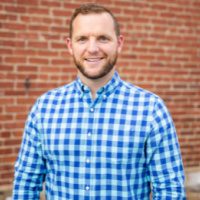
Ryan Graybill has responded to disasters both in the U.S. and around the world, serving at Convoy of Hope since 2010. He has responded to more than 200 disasters both in the United States and around the world. He has been to all 50 states and loves asking people he meets where they are from. He believes that our stories are unique, God-directed, and make up who we are today. Connect with Ryan on LinkedIn.
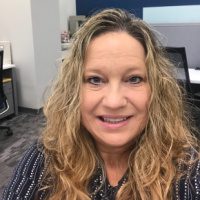
Audra Weddle has been working in Logistics since 1991. She worked in Germany from 1991-94 working mainly on imports and managing inventory for a military post in Hanau, Germany. After her return from Germany, she did accounting for for five years before her family moved to South Africa for two years. While in South Africa, Audra was responsible for helping missionaries with their accounting and with imports of personal household goods. In January 2002 Audra started her career with Convoy of Hope and works in the Supply Chain and has exported shipping containers to over 65 countries. Connect with Audra on LinkedIn.
Hosts
Additional Links & Resources
WEBINAR- State of the Supply Chain Report – Priorities for Building Resiliency in Your Supply Network
